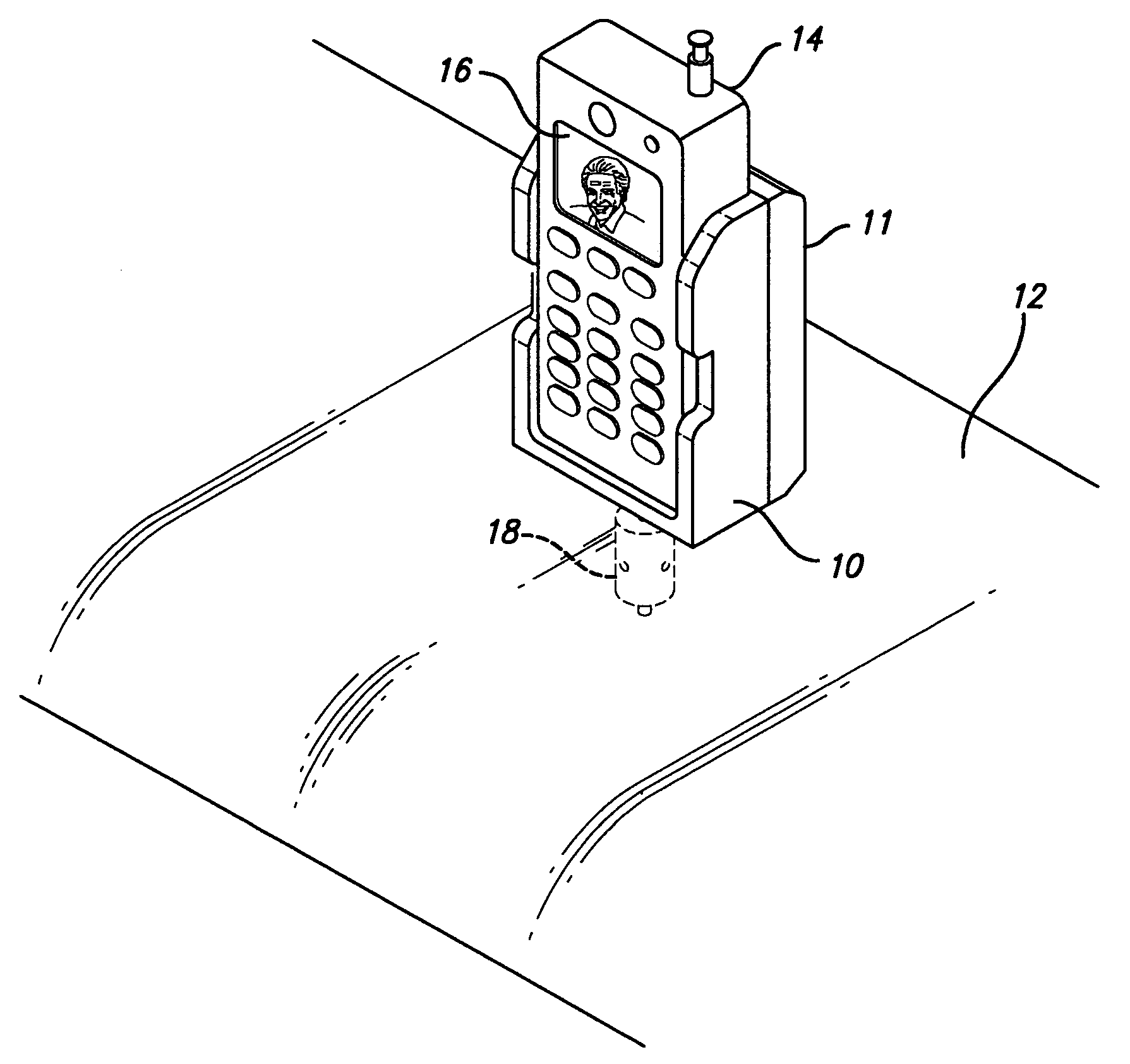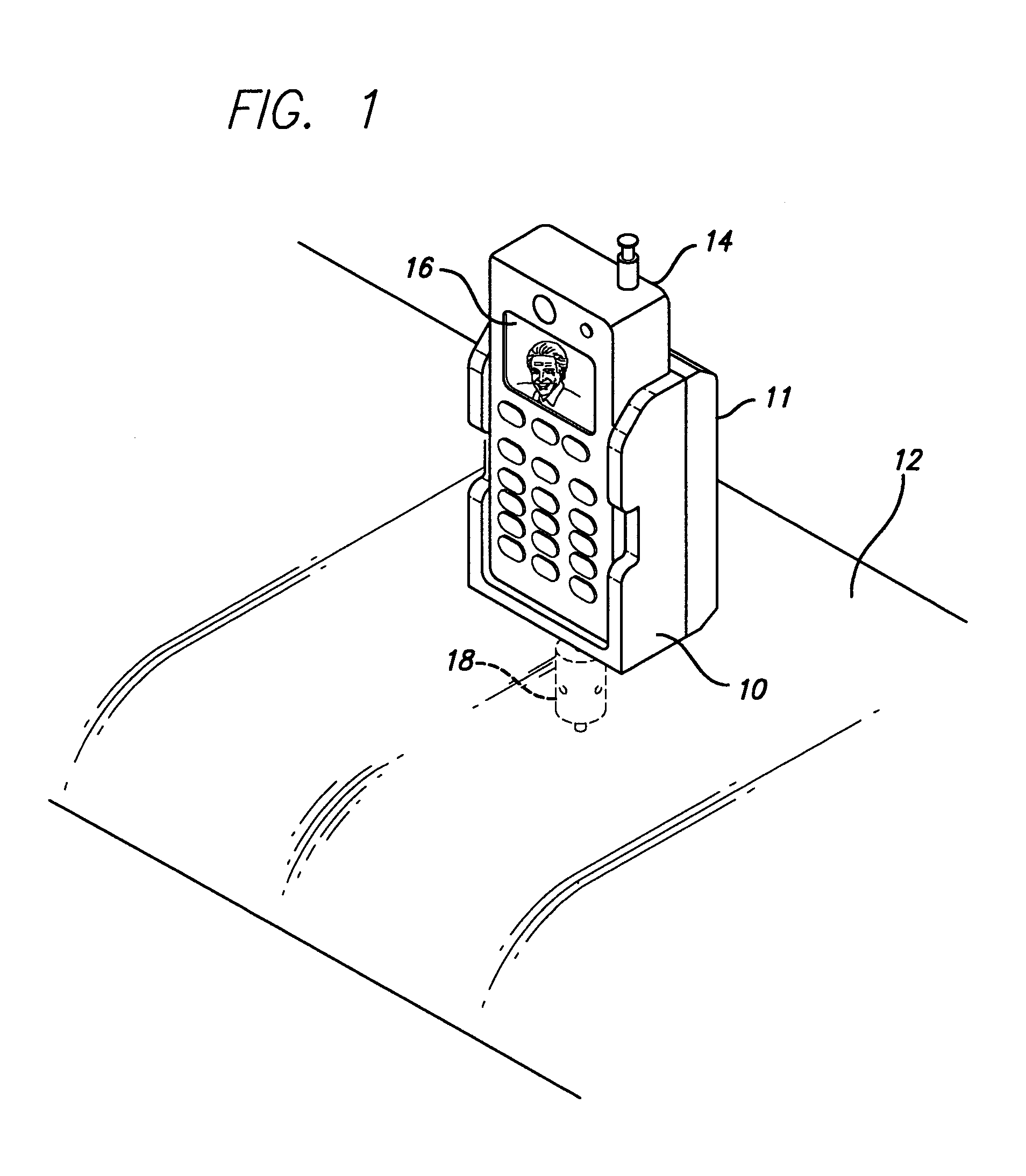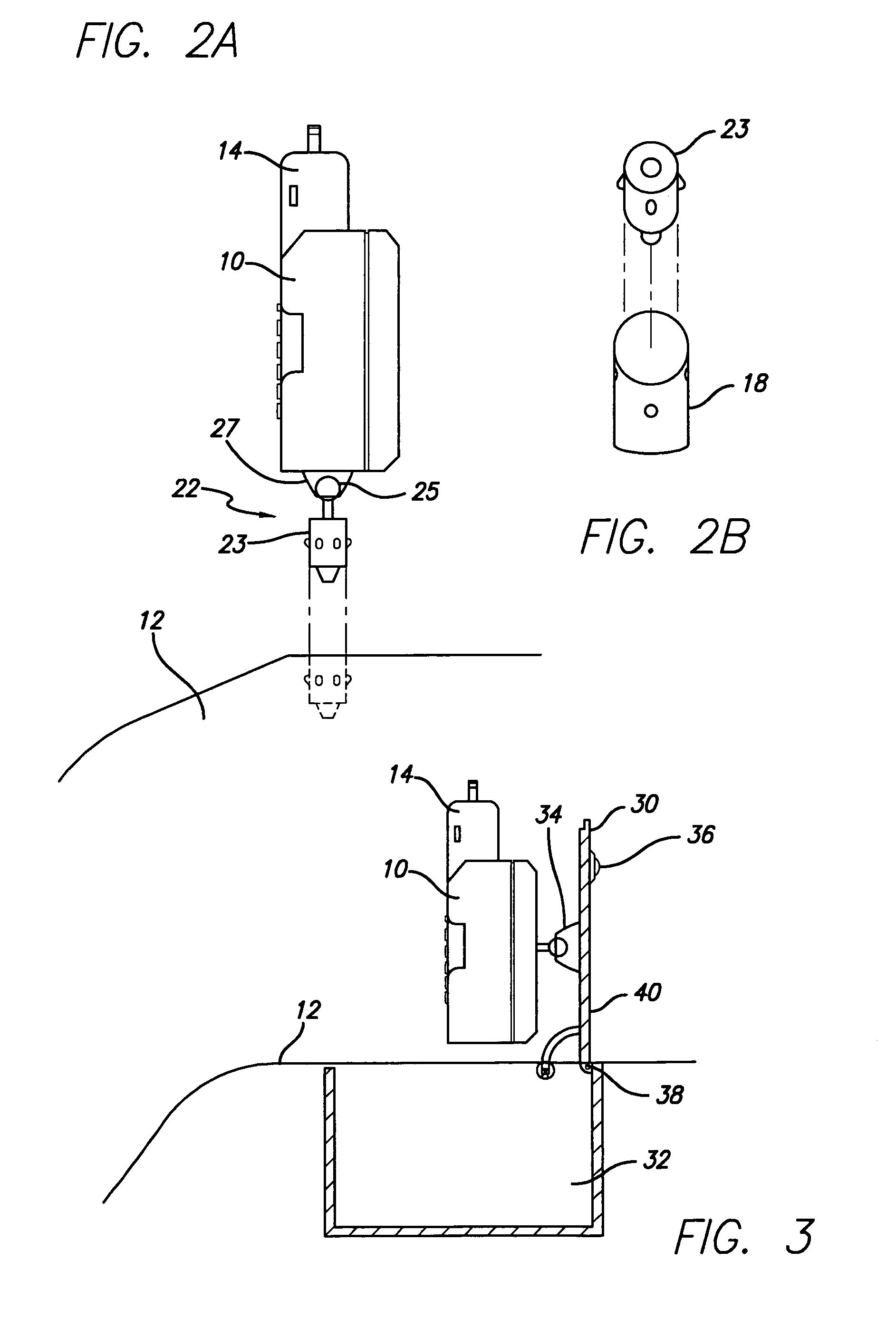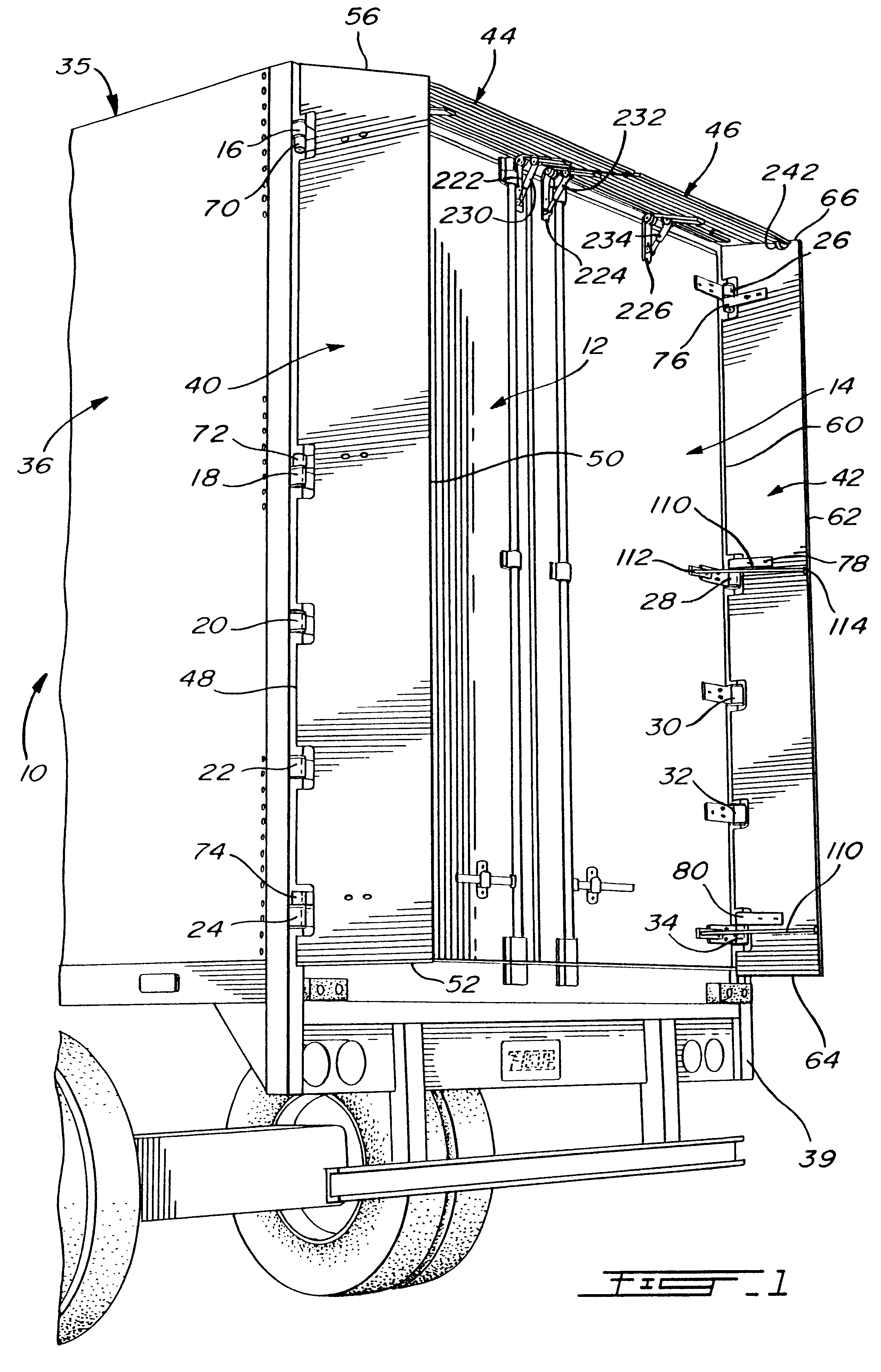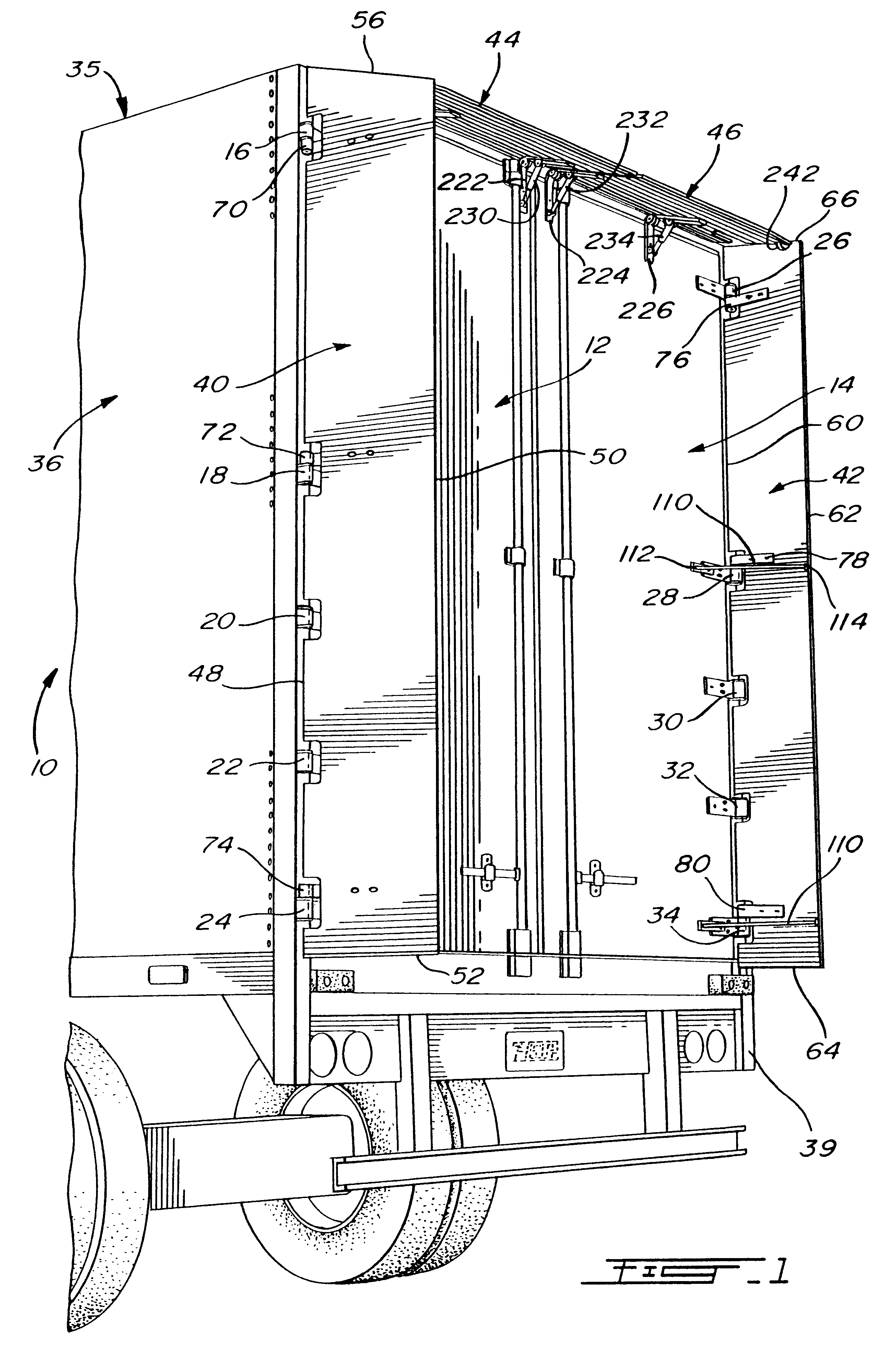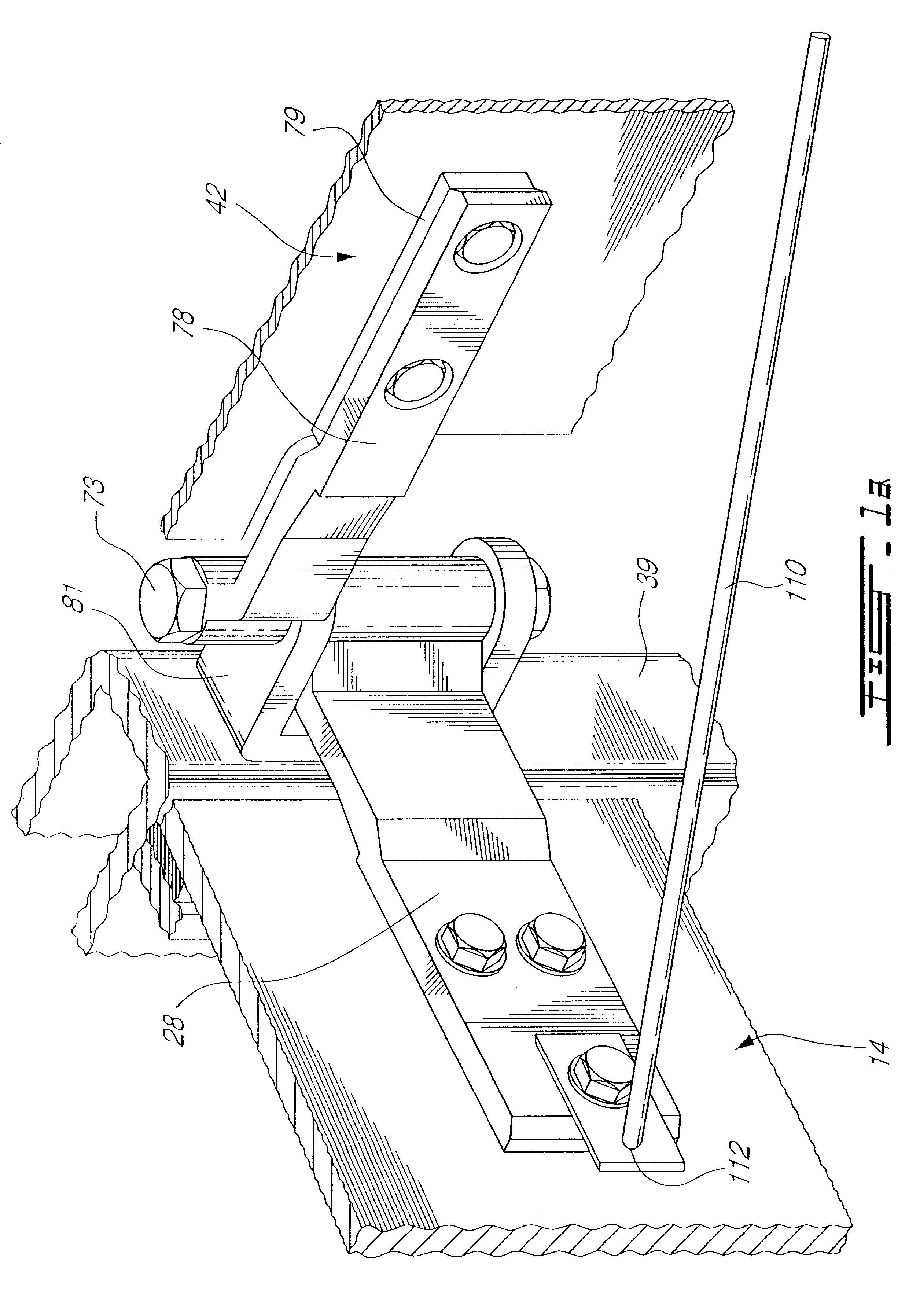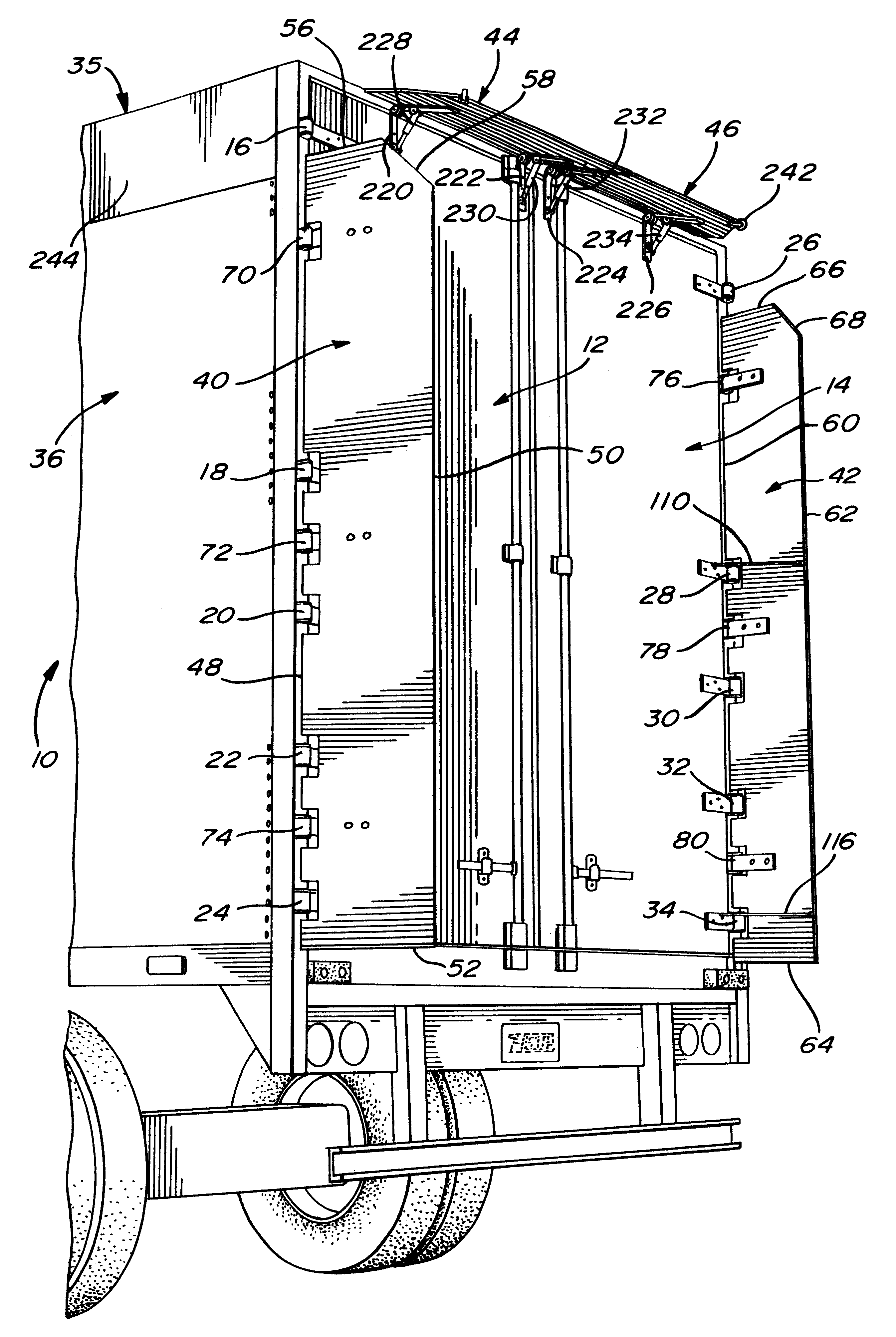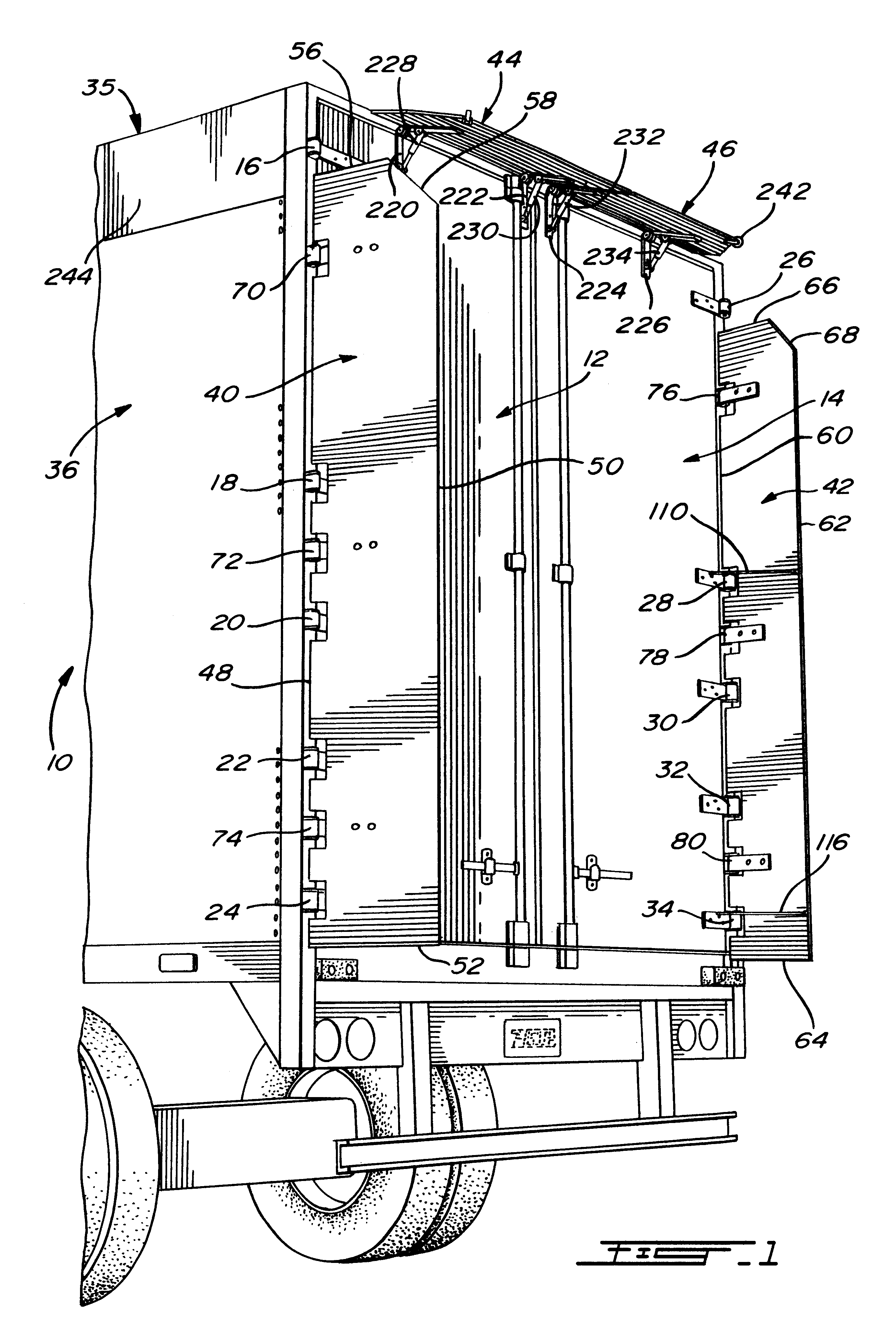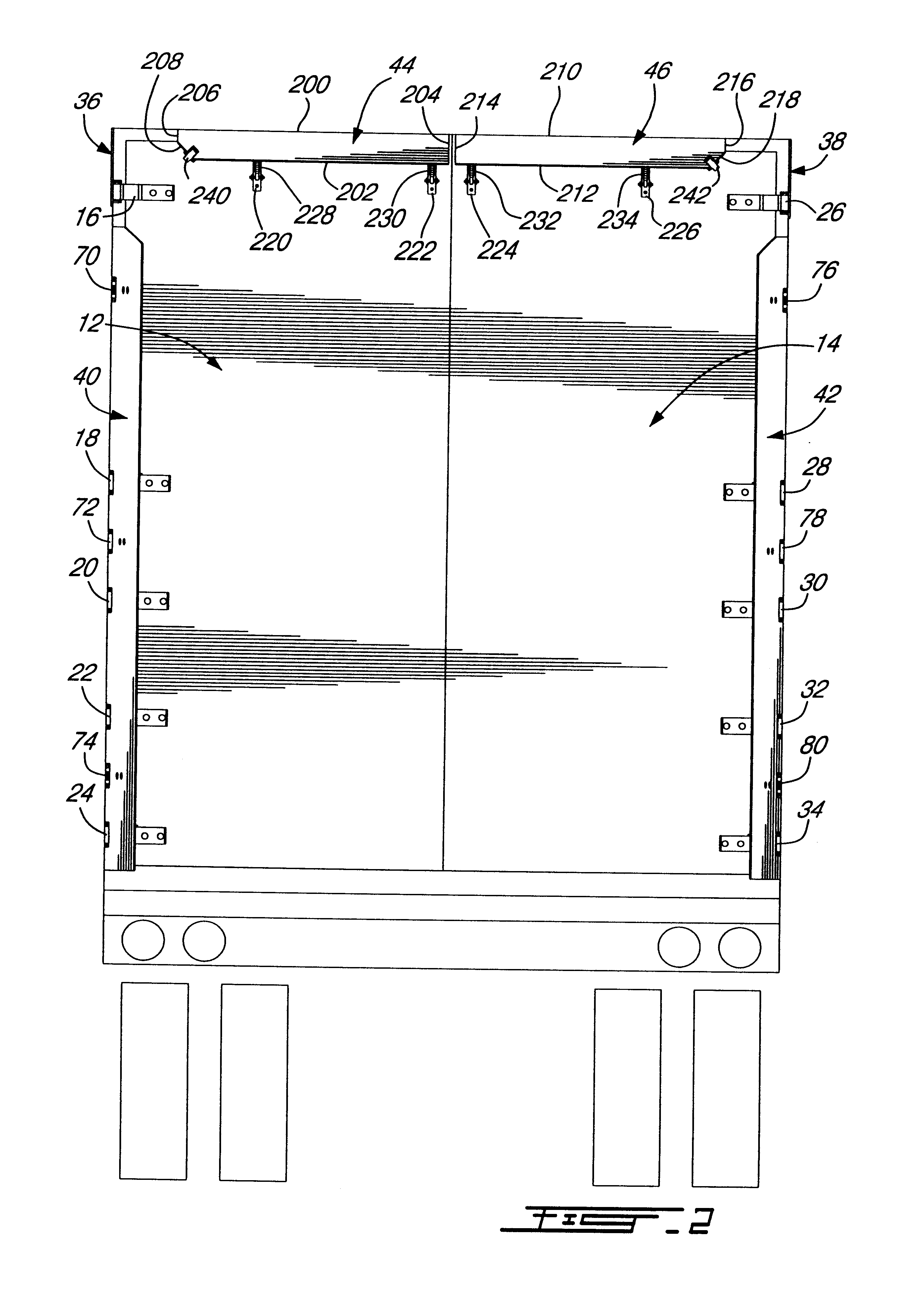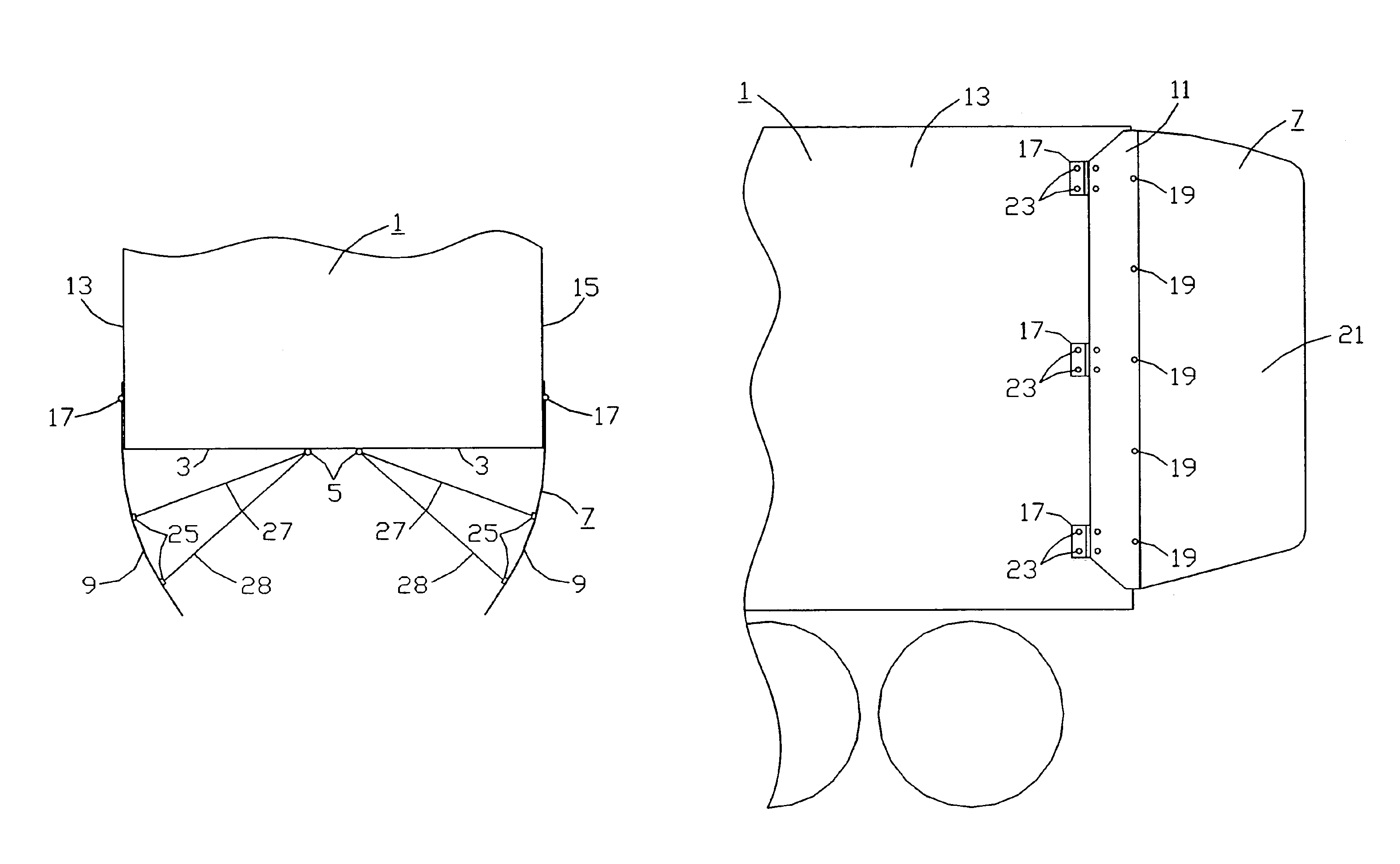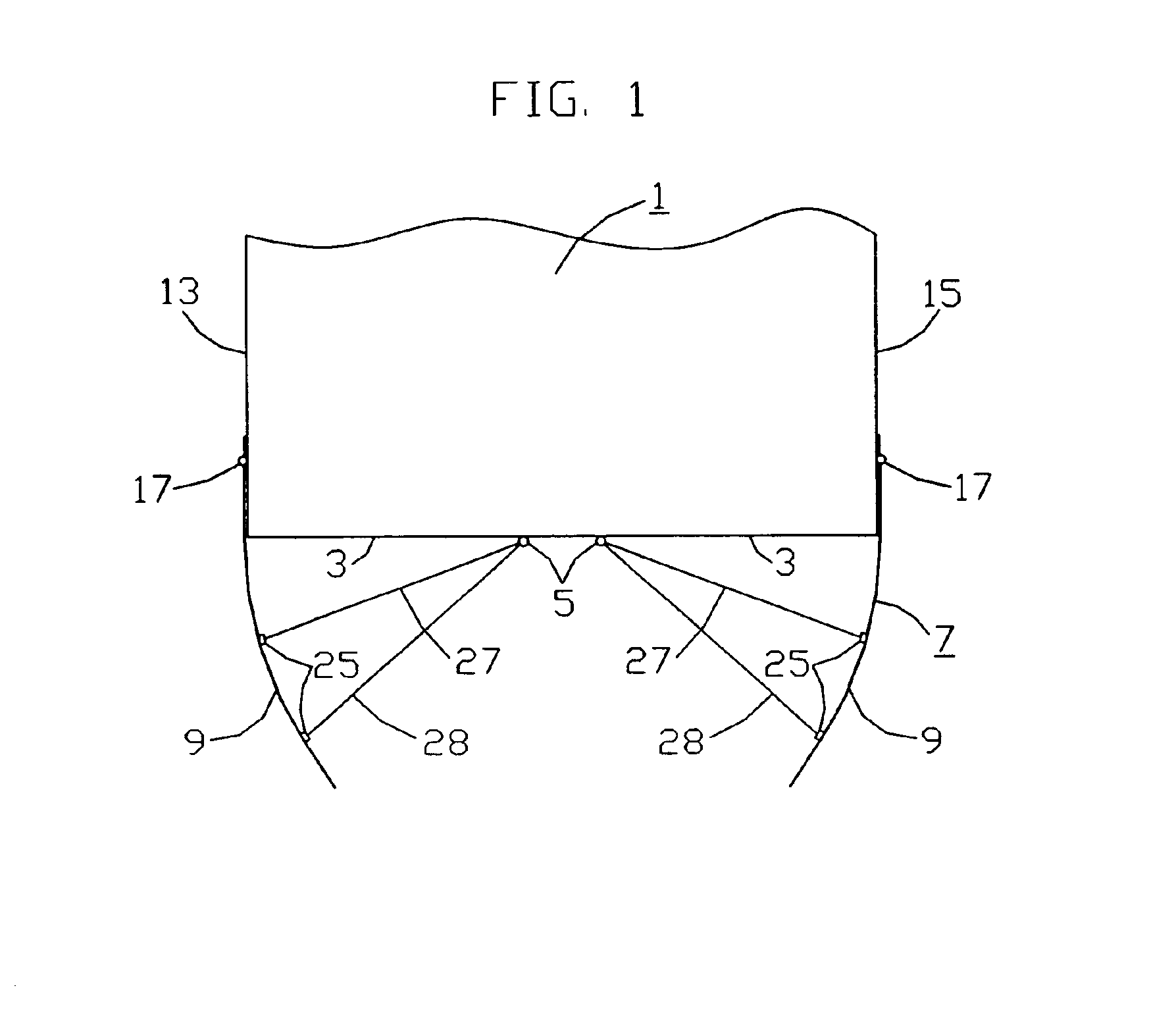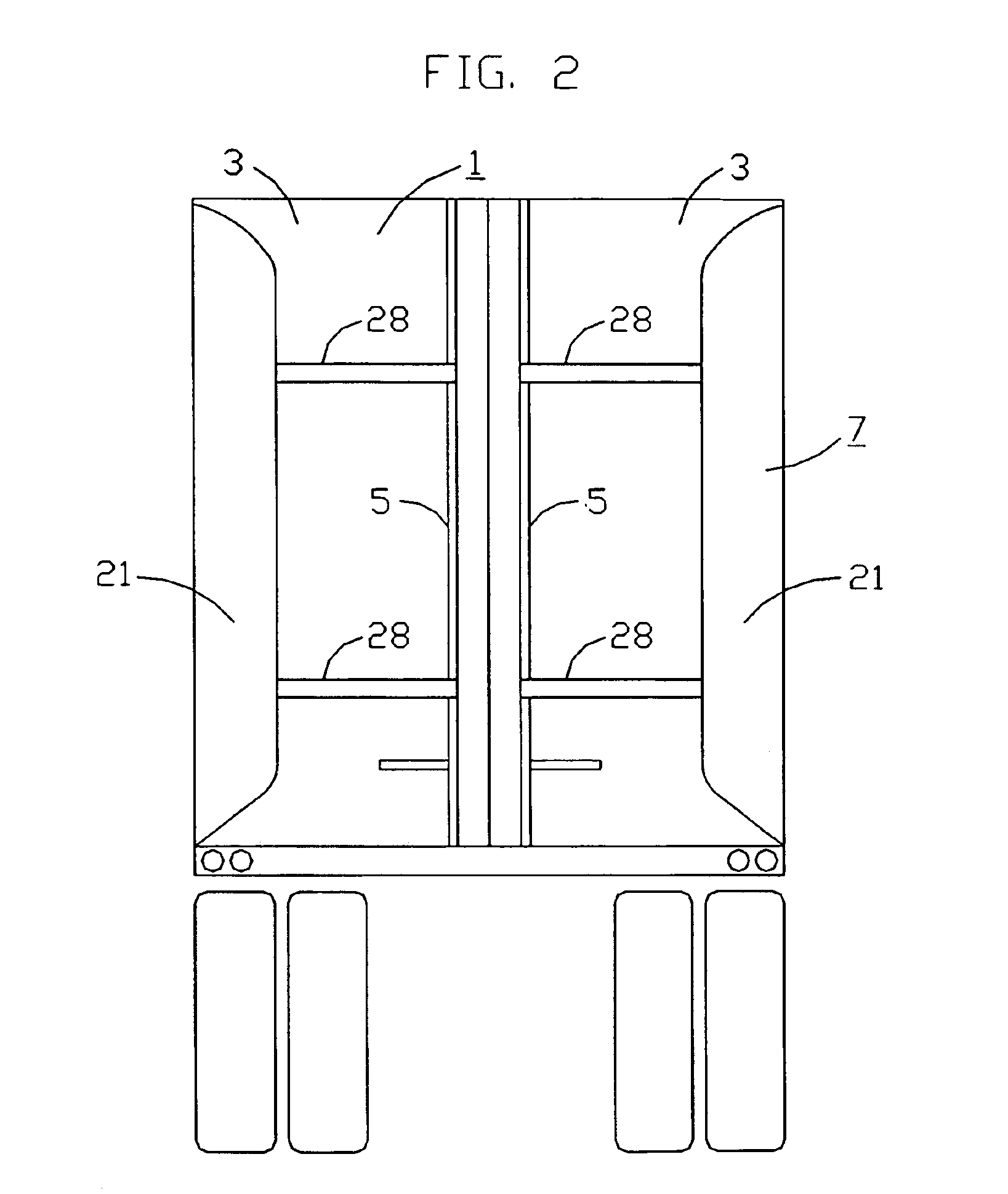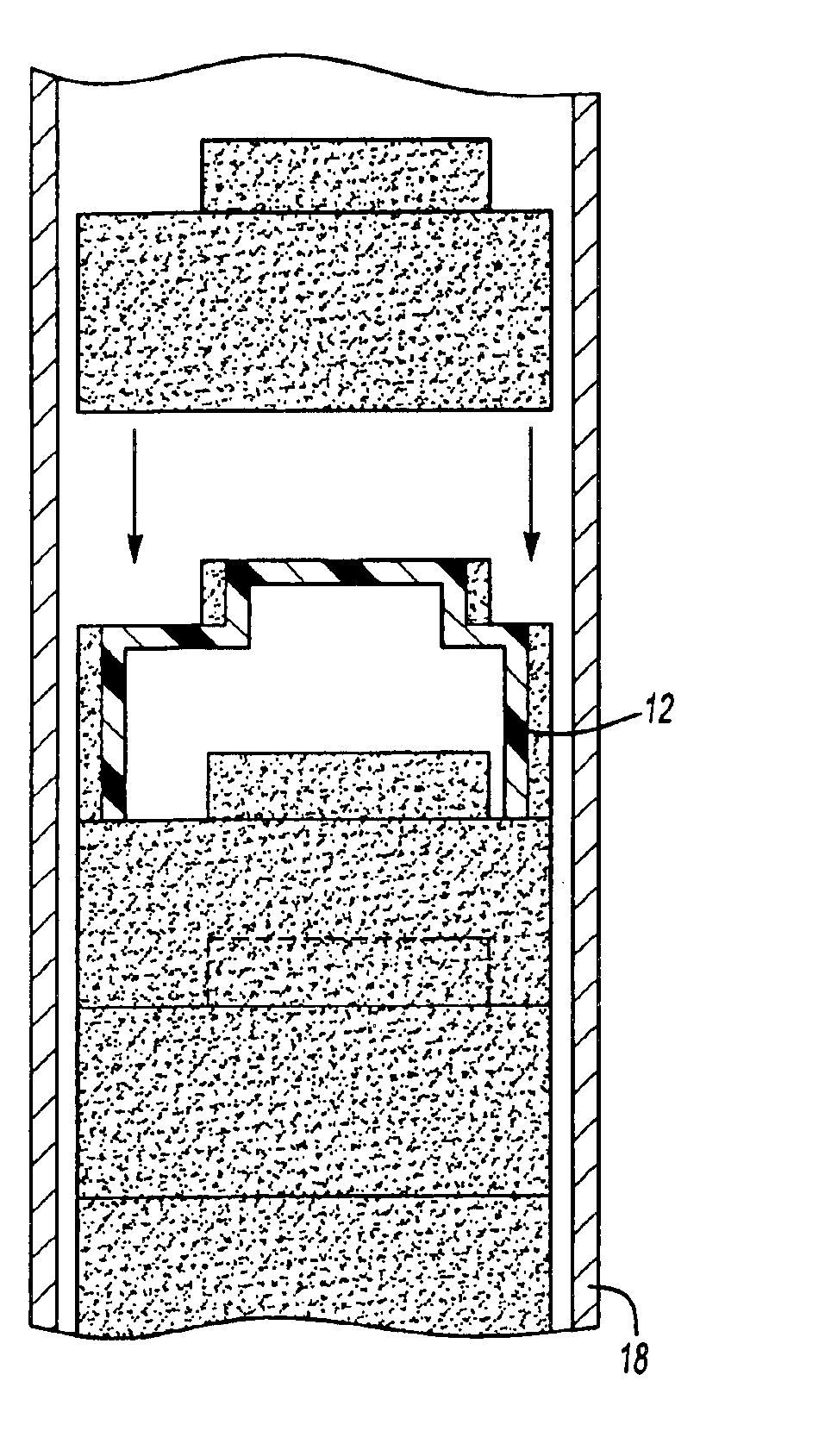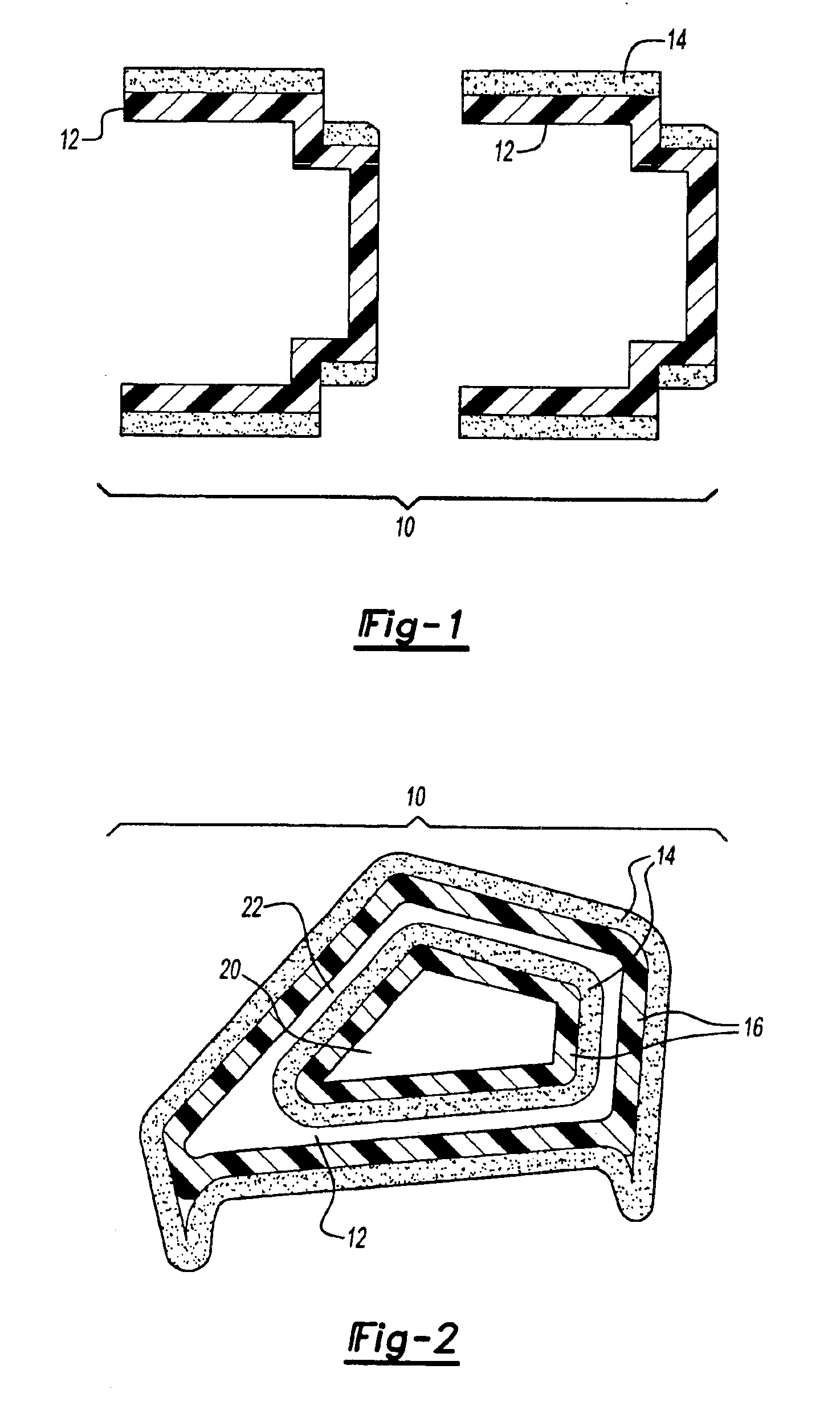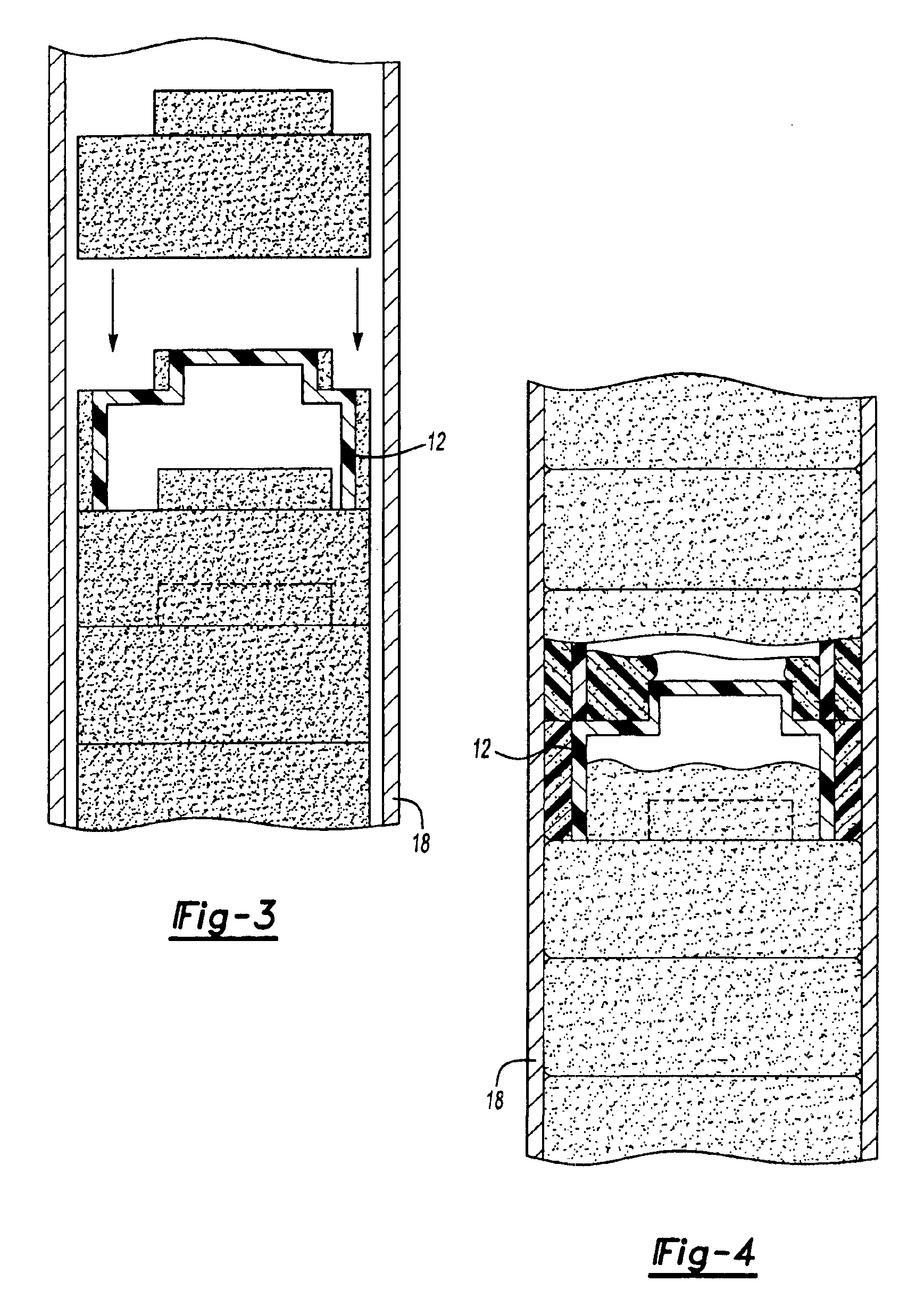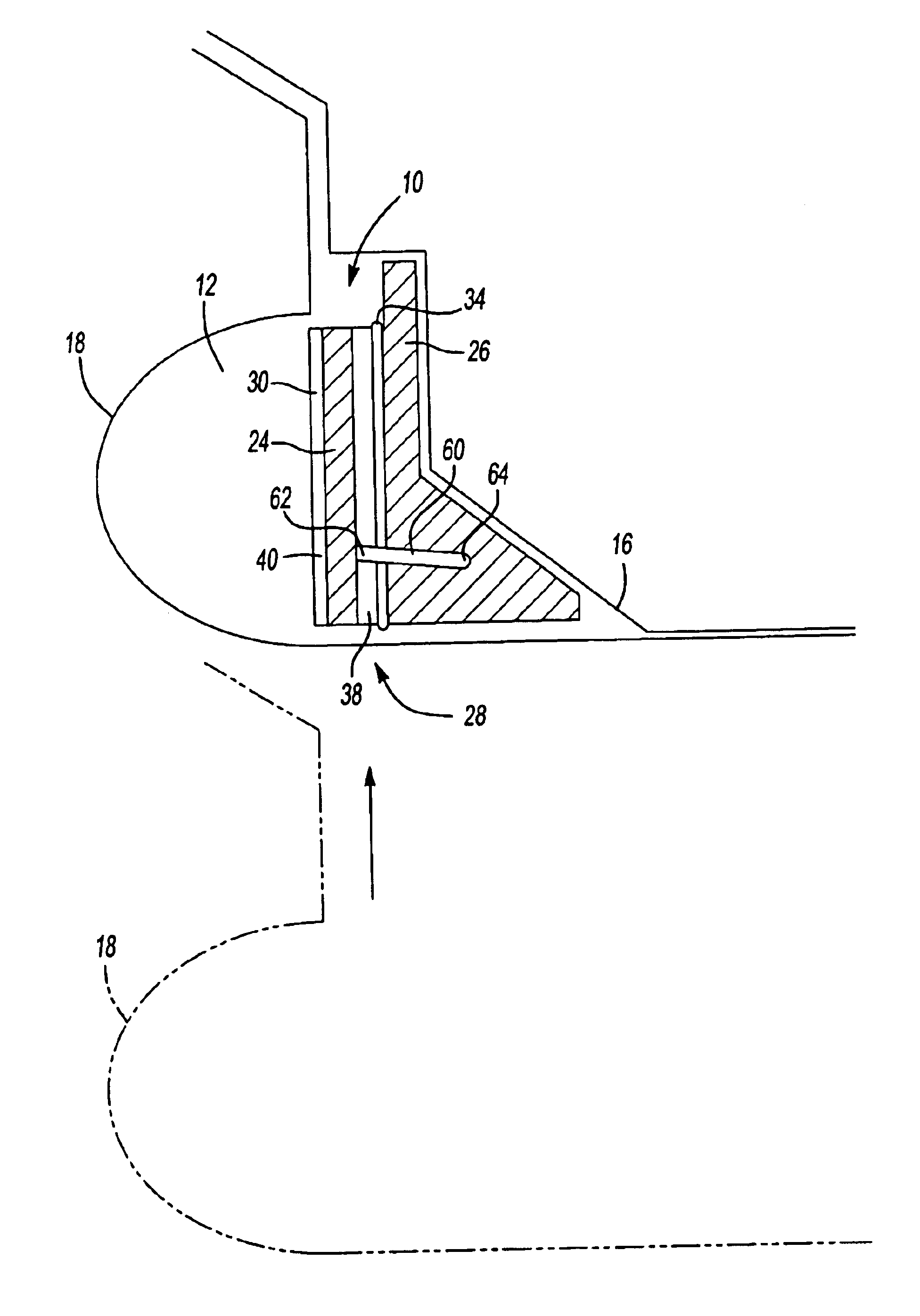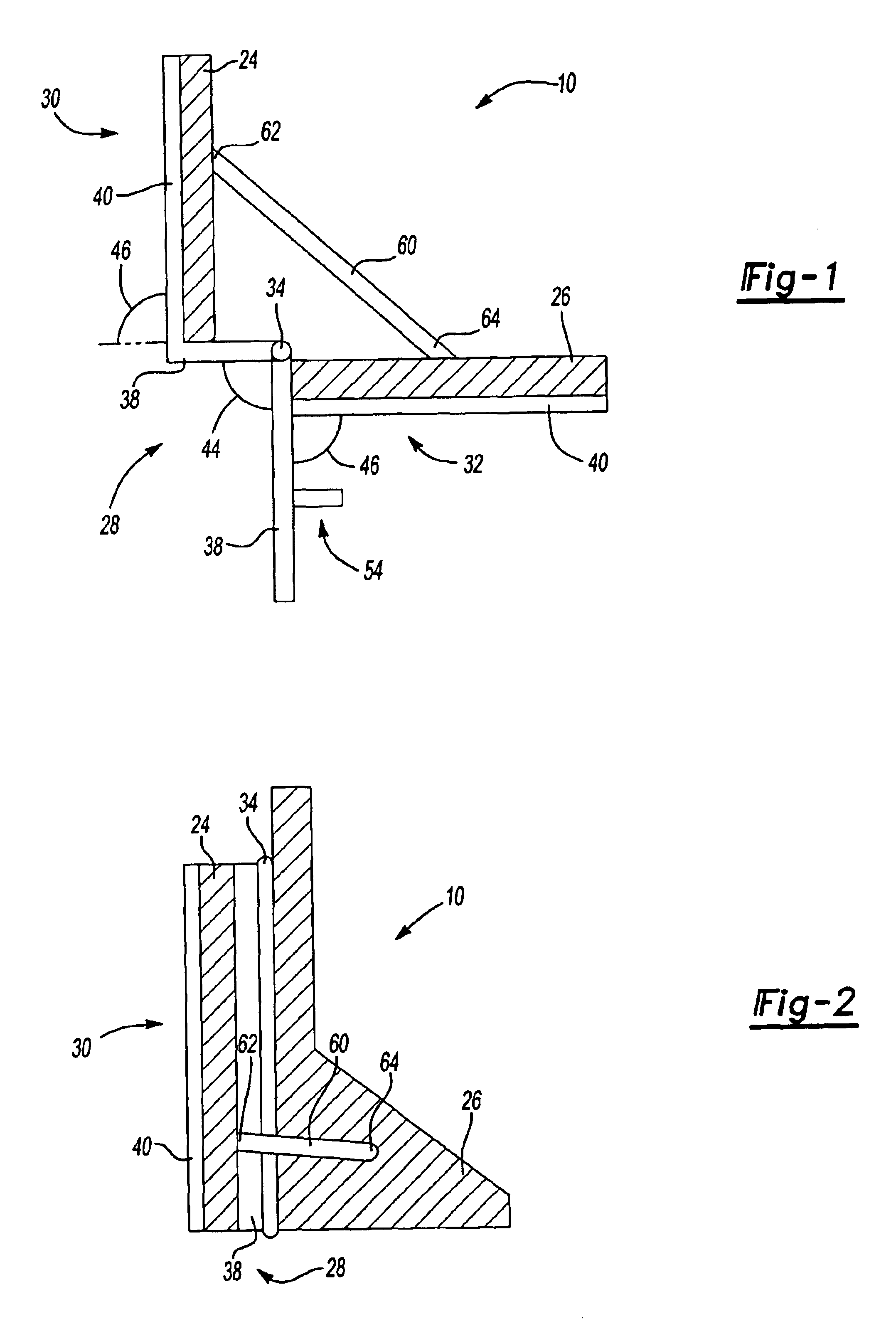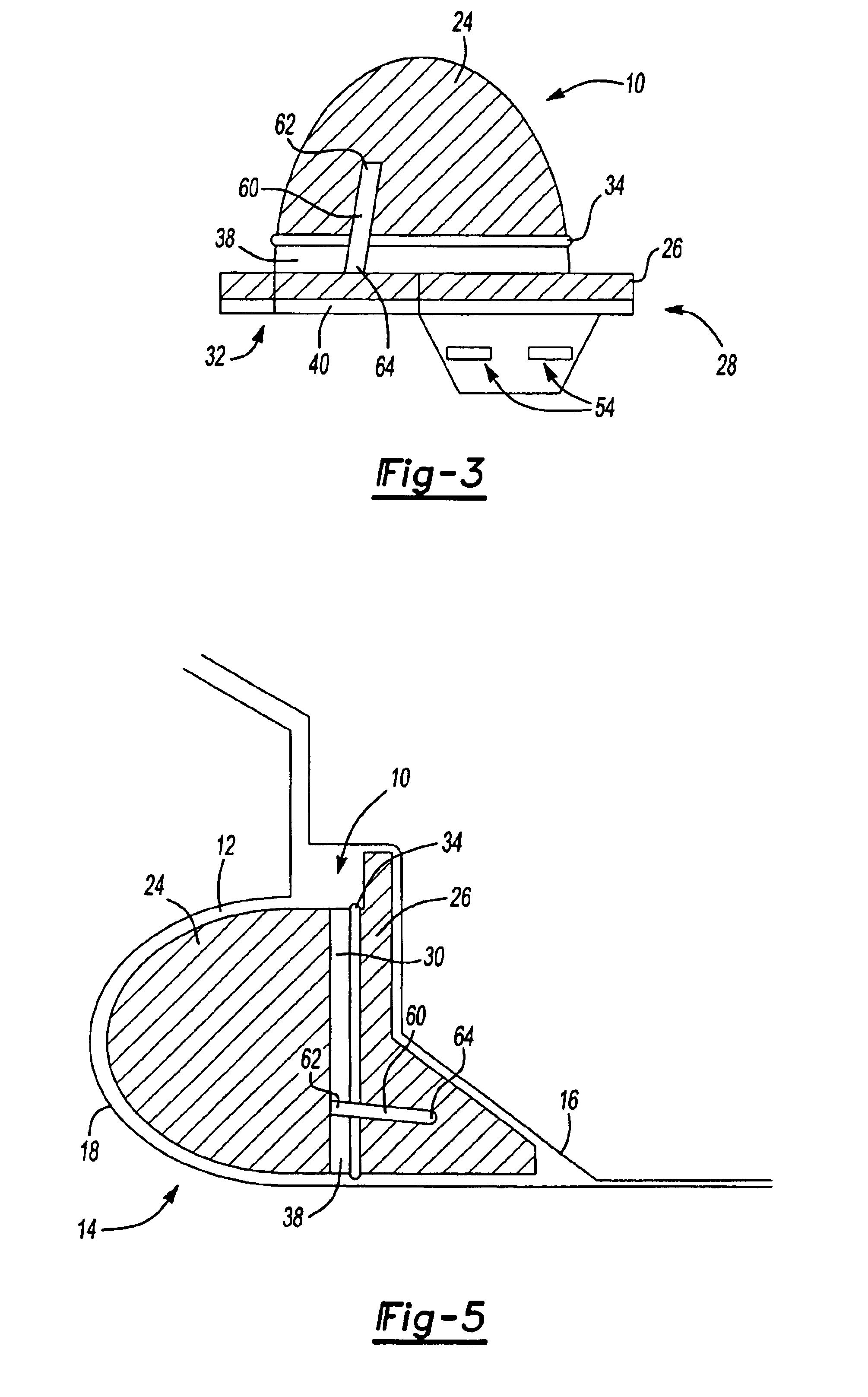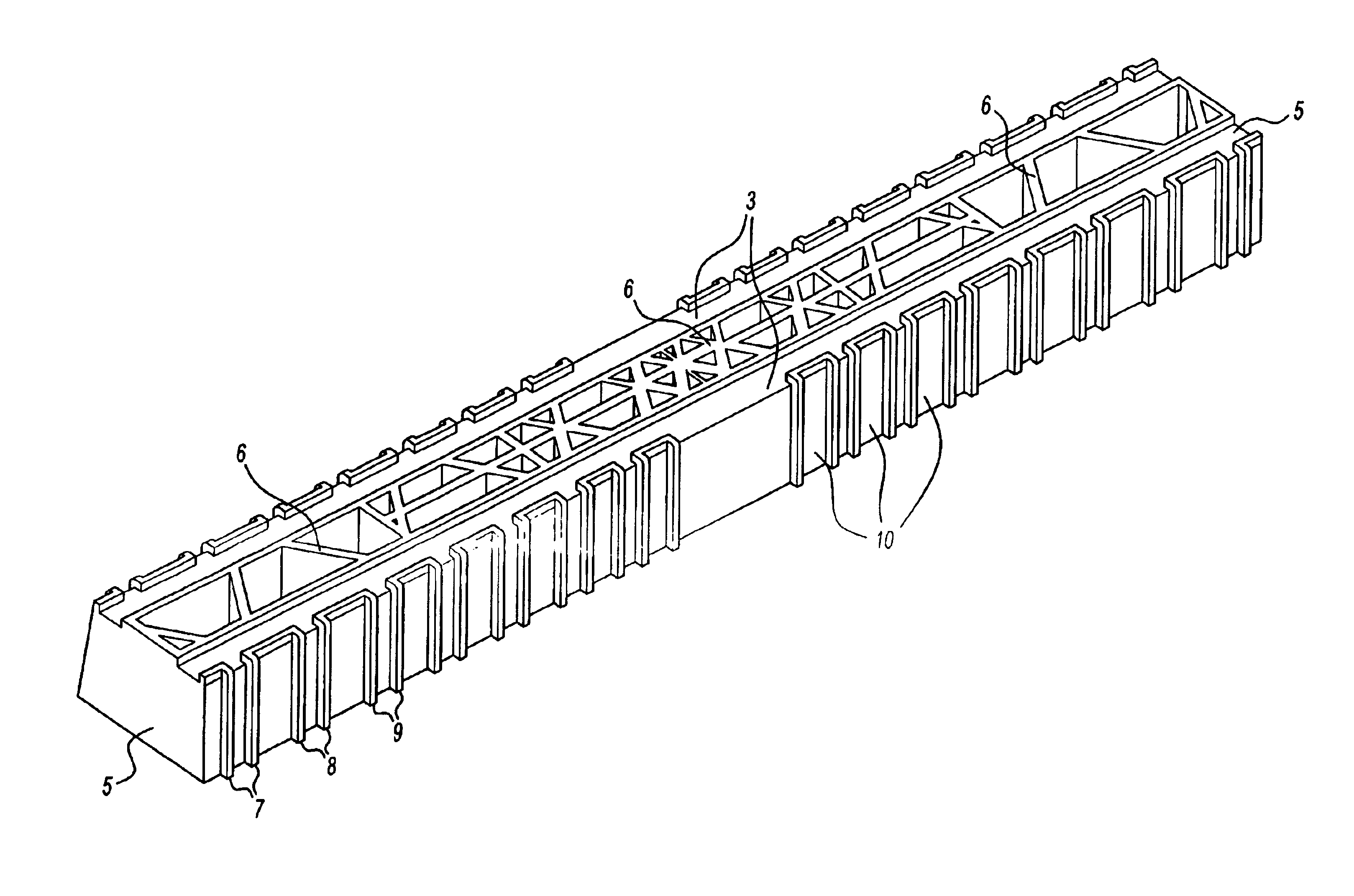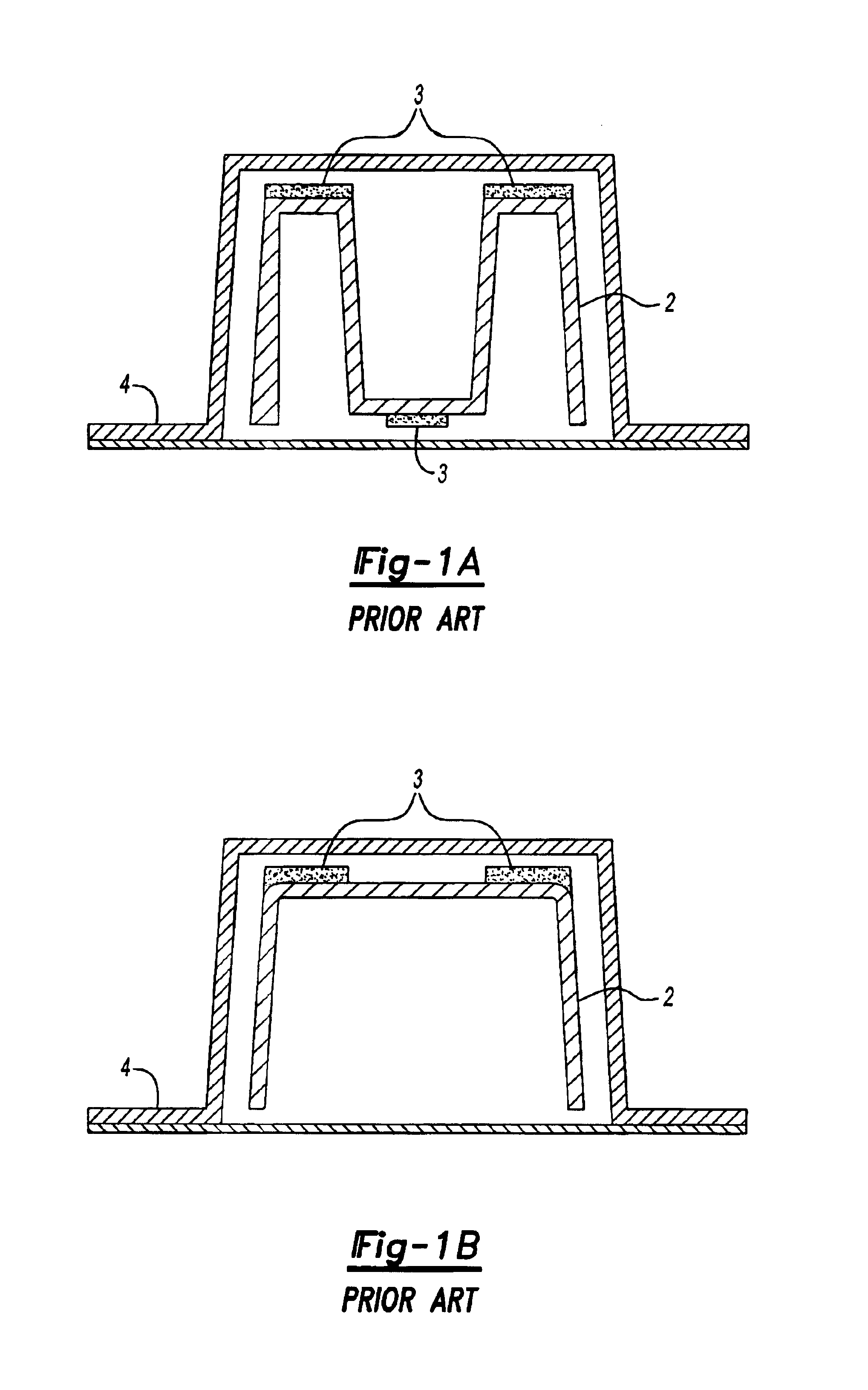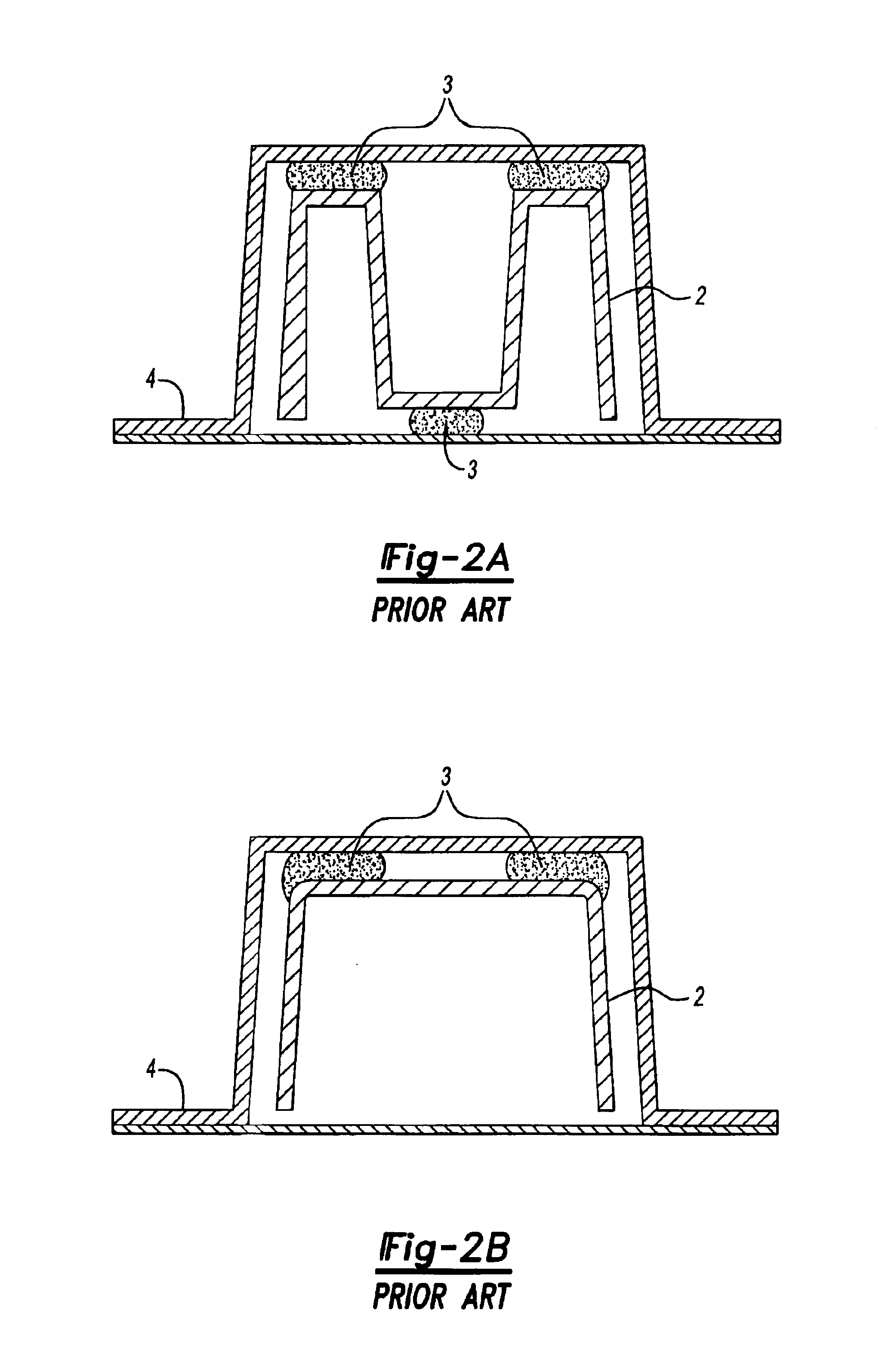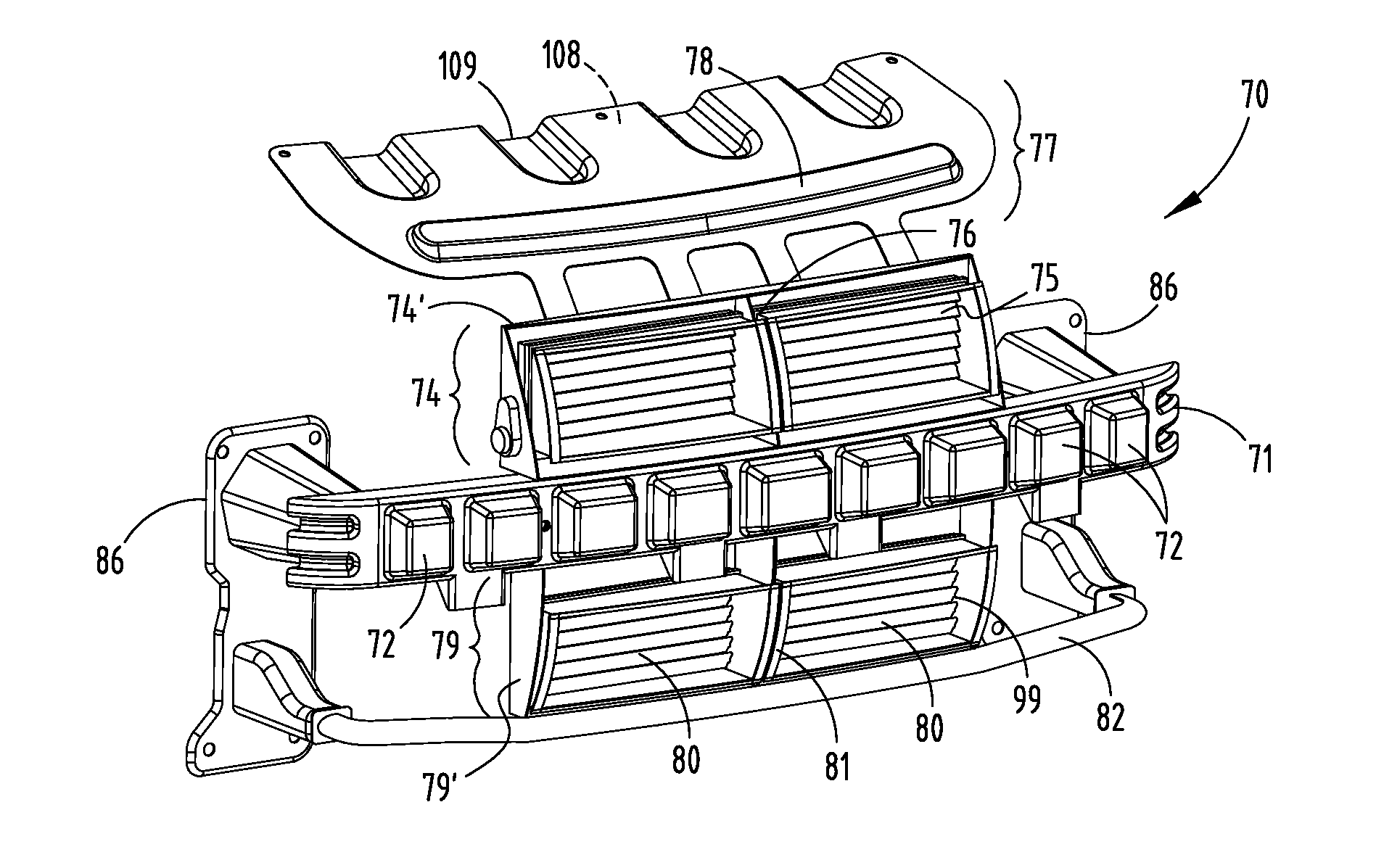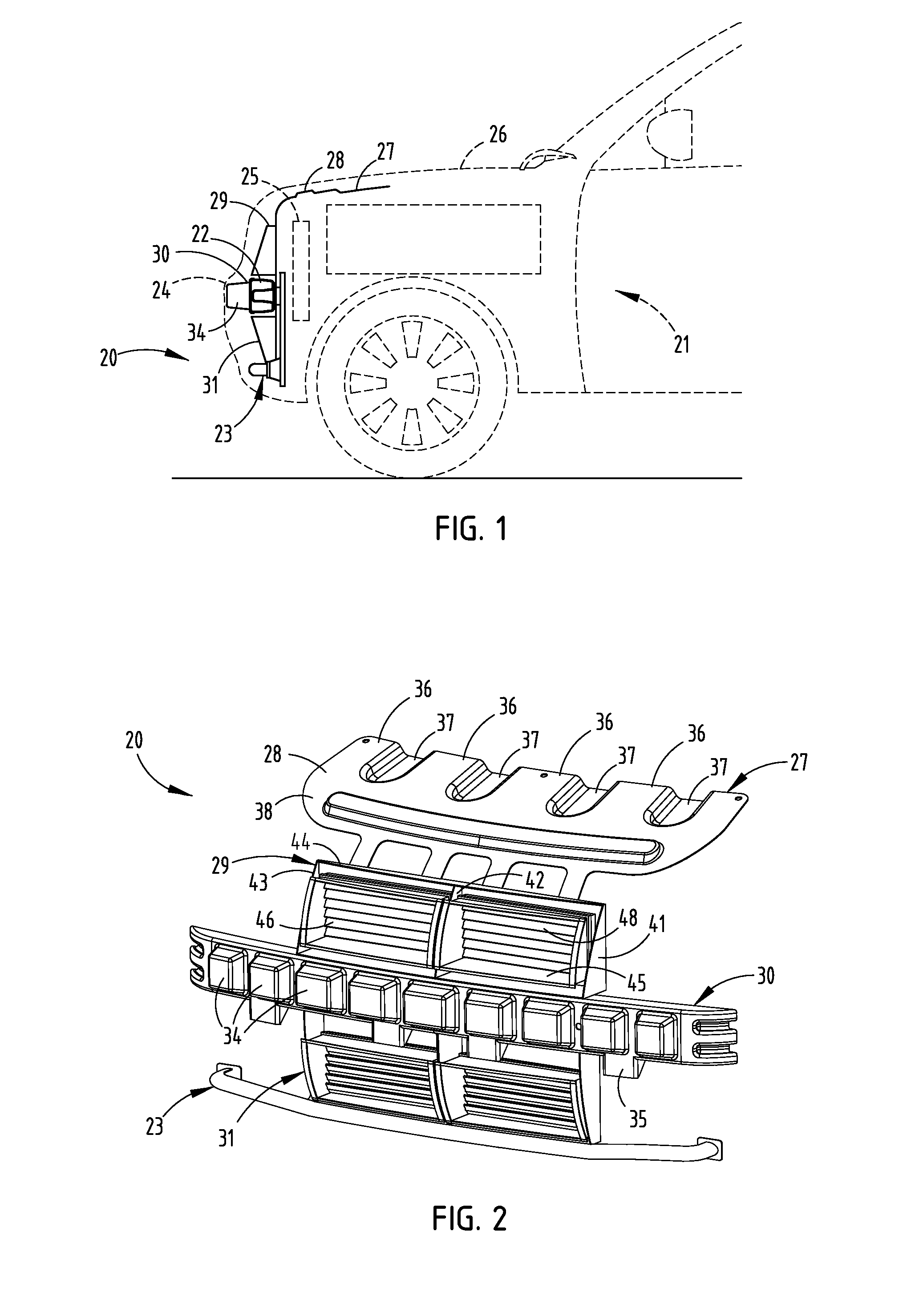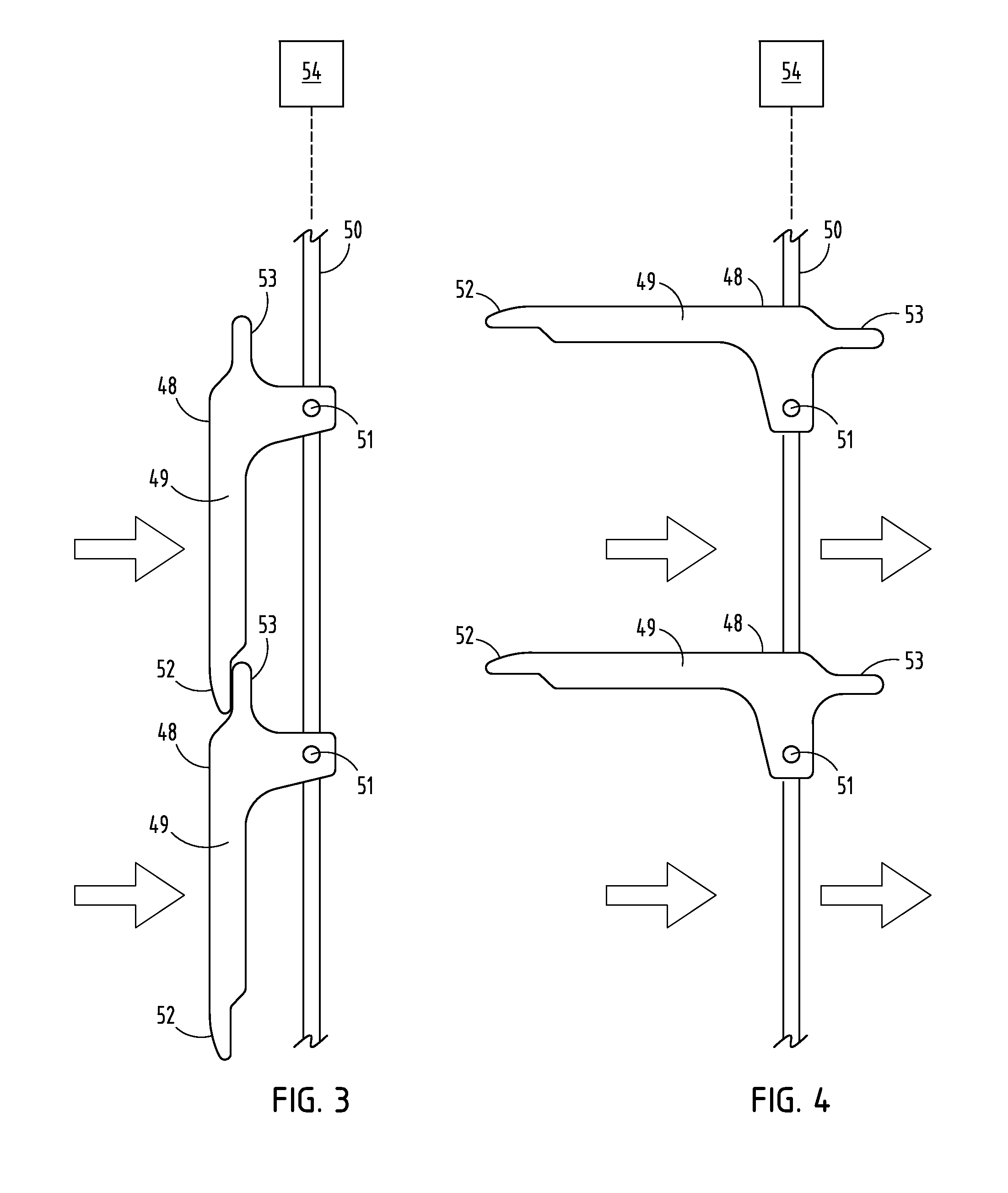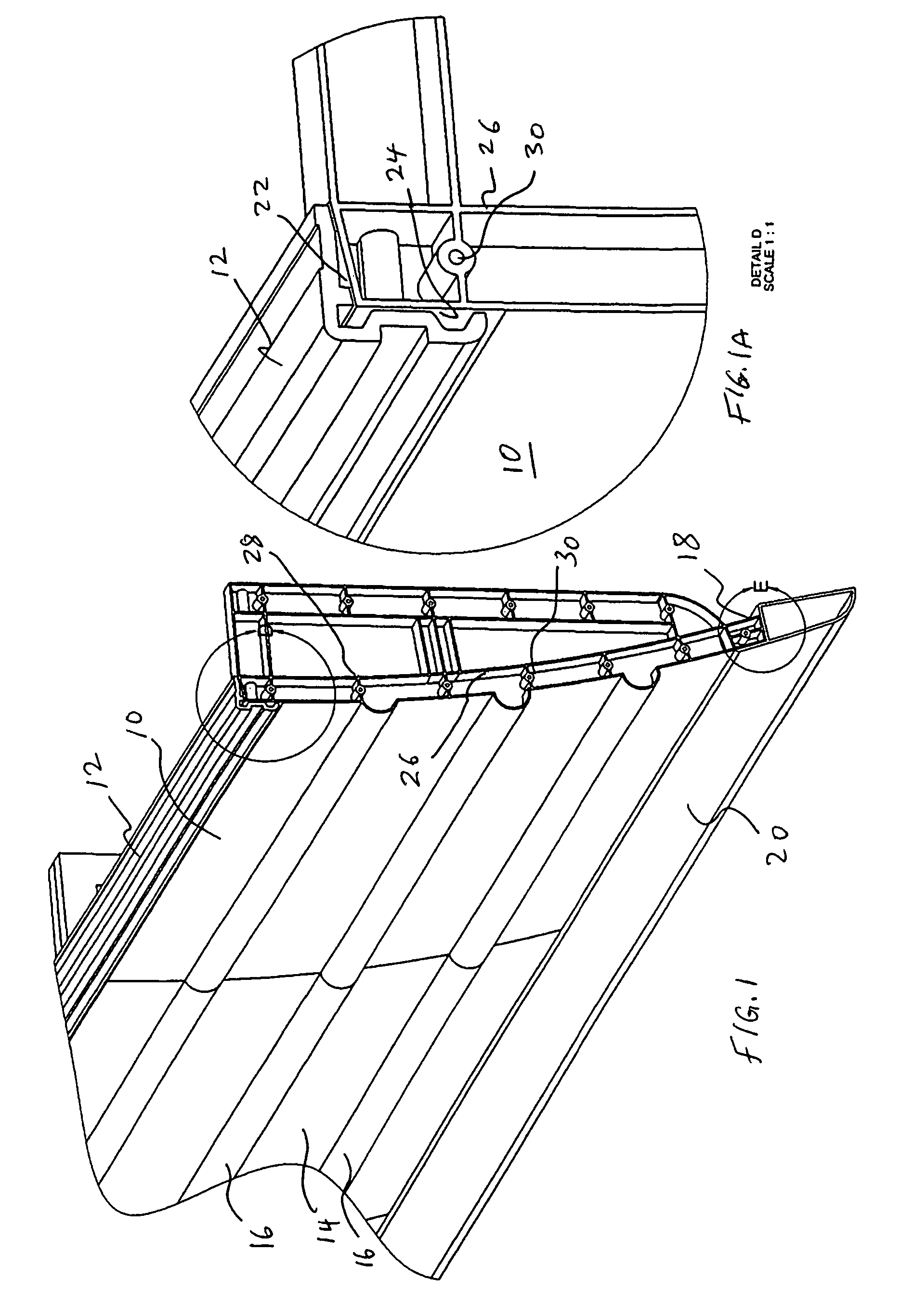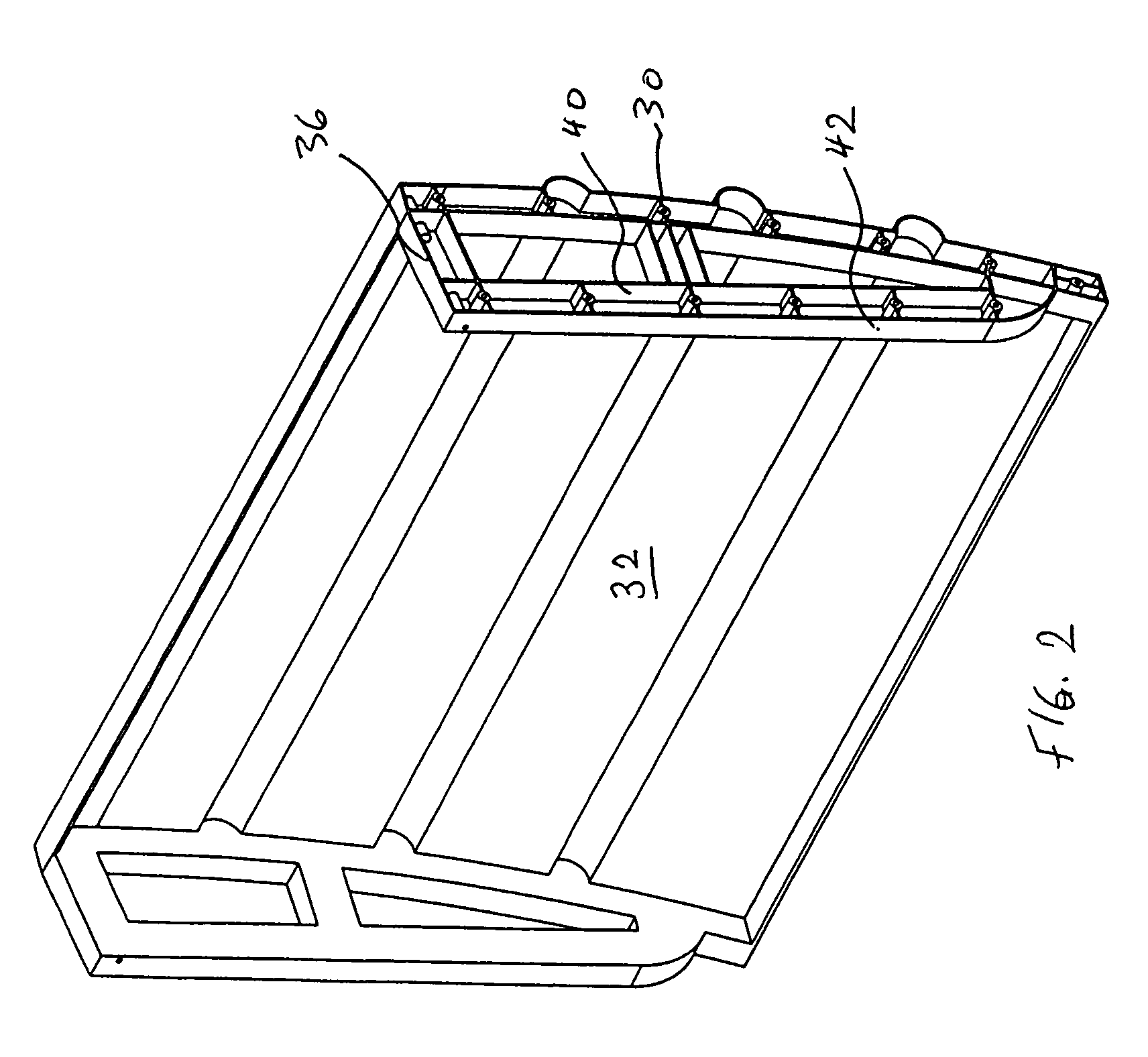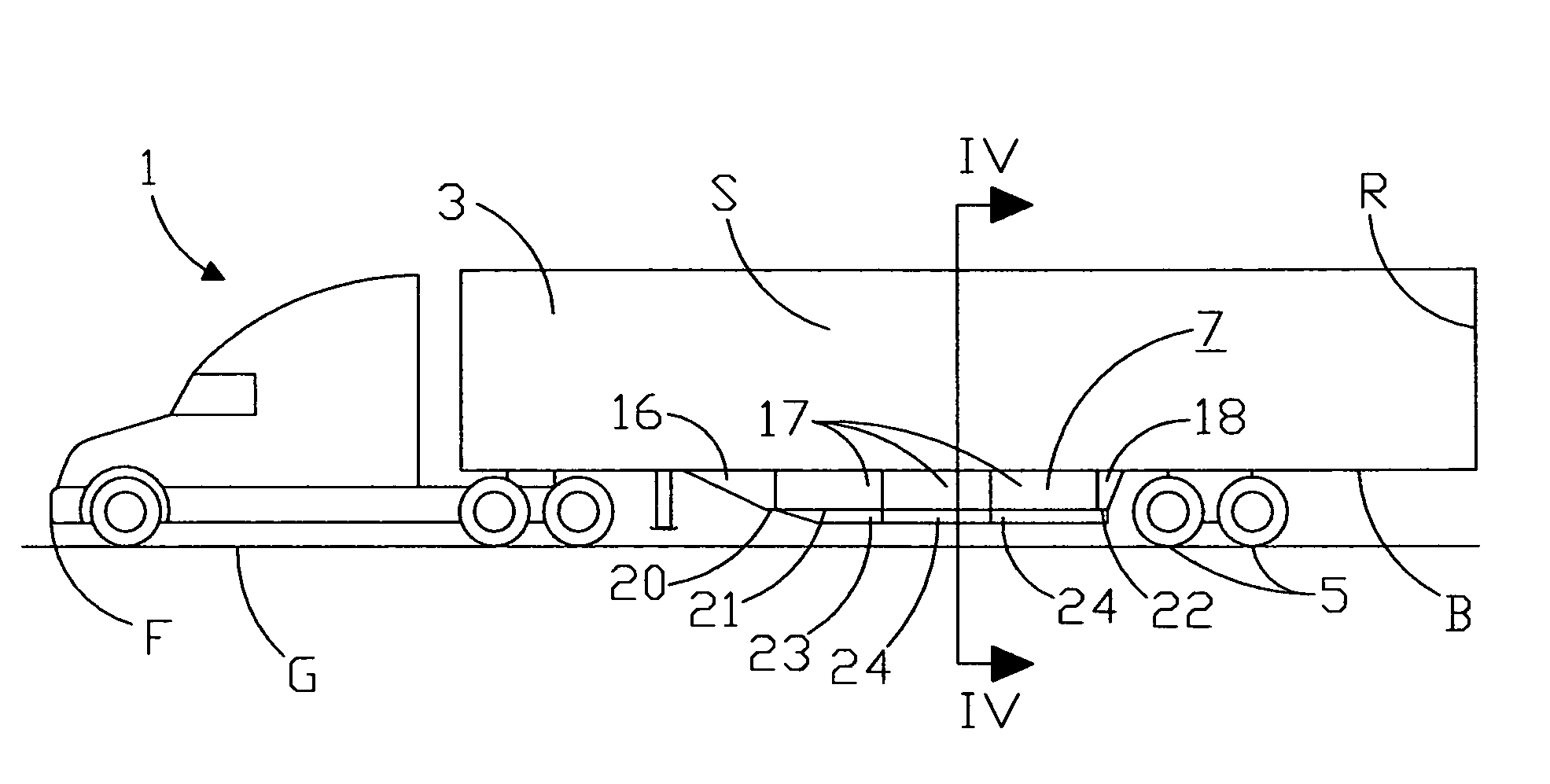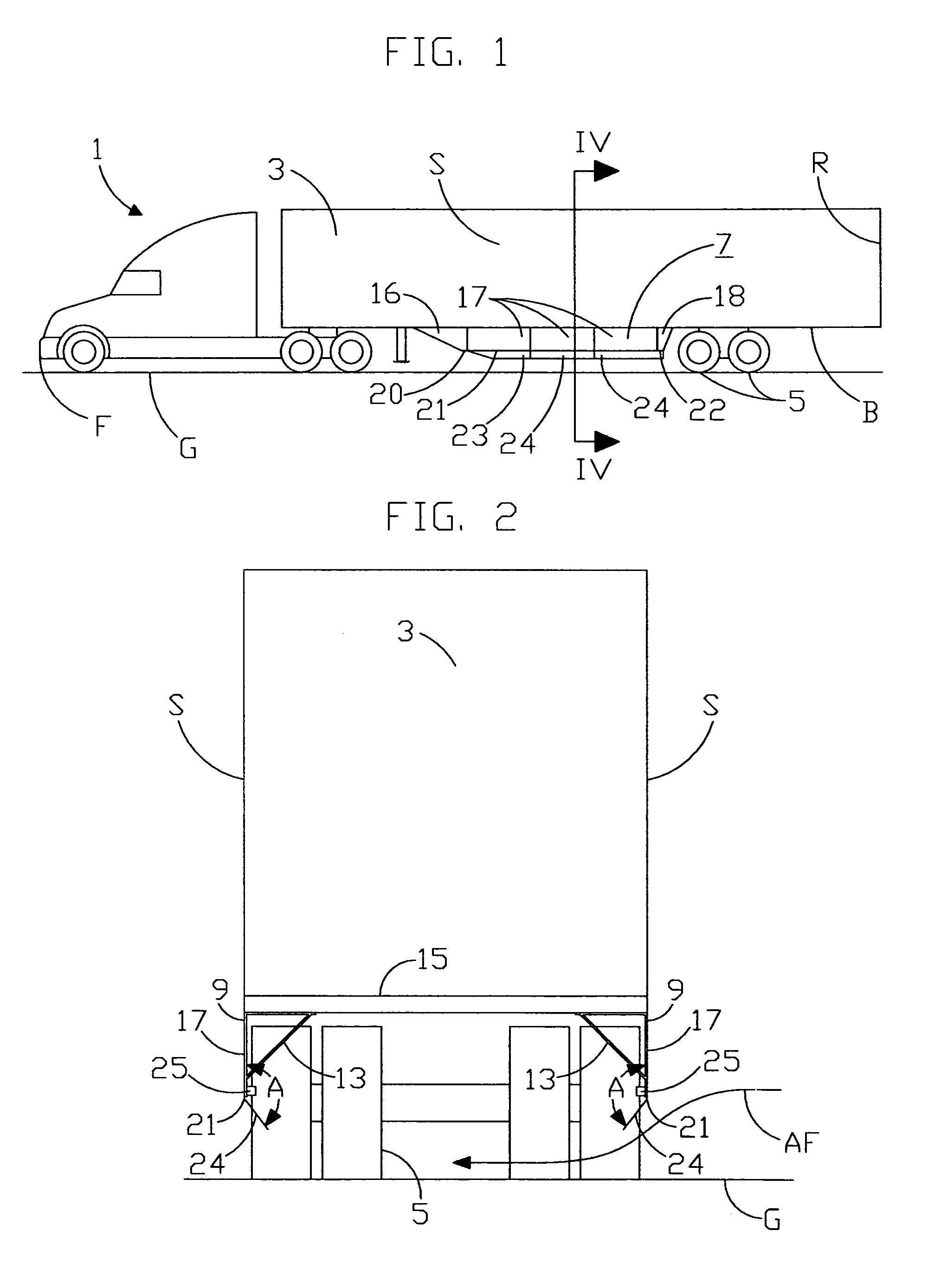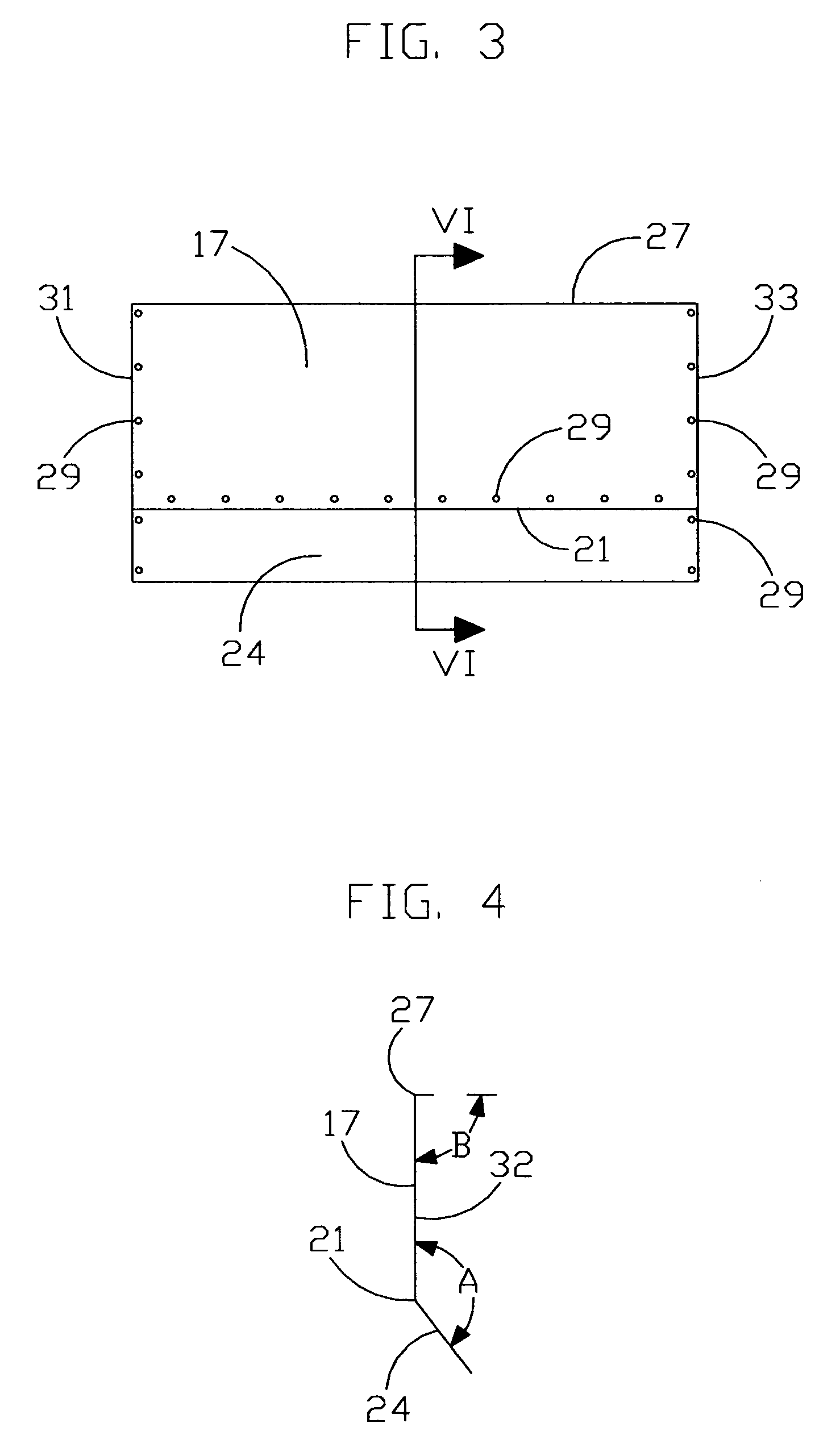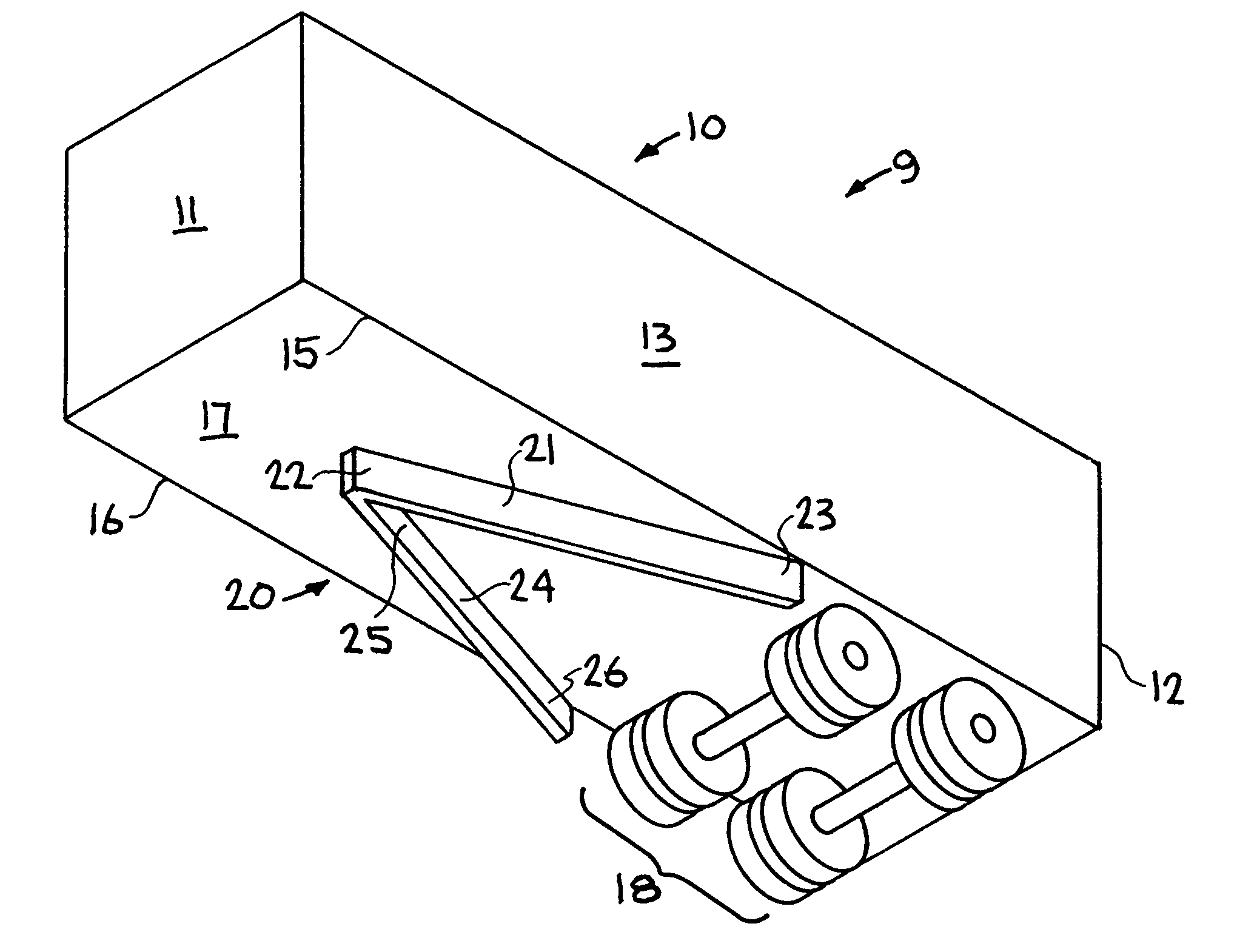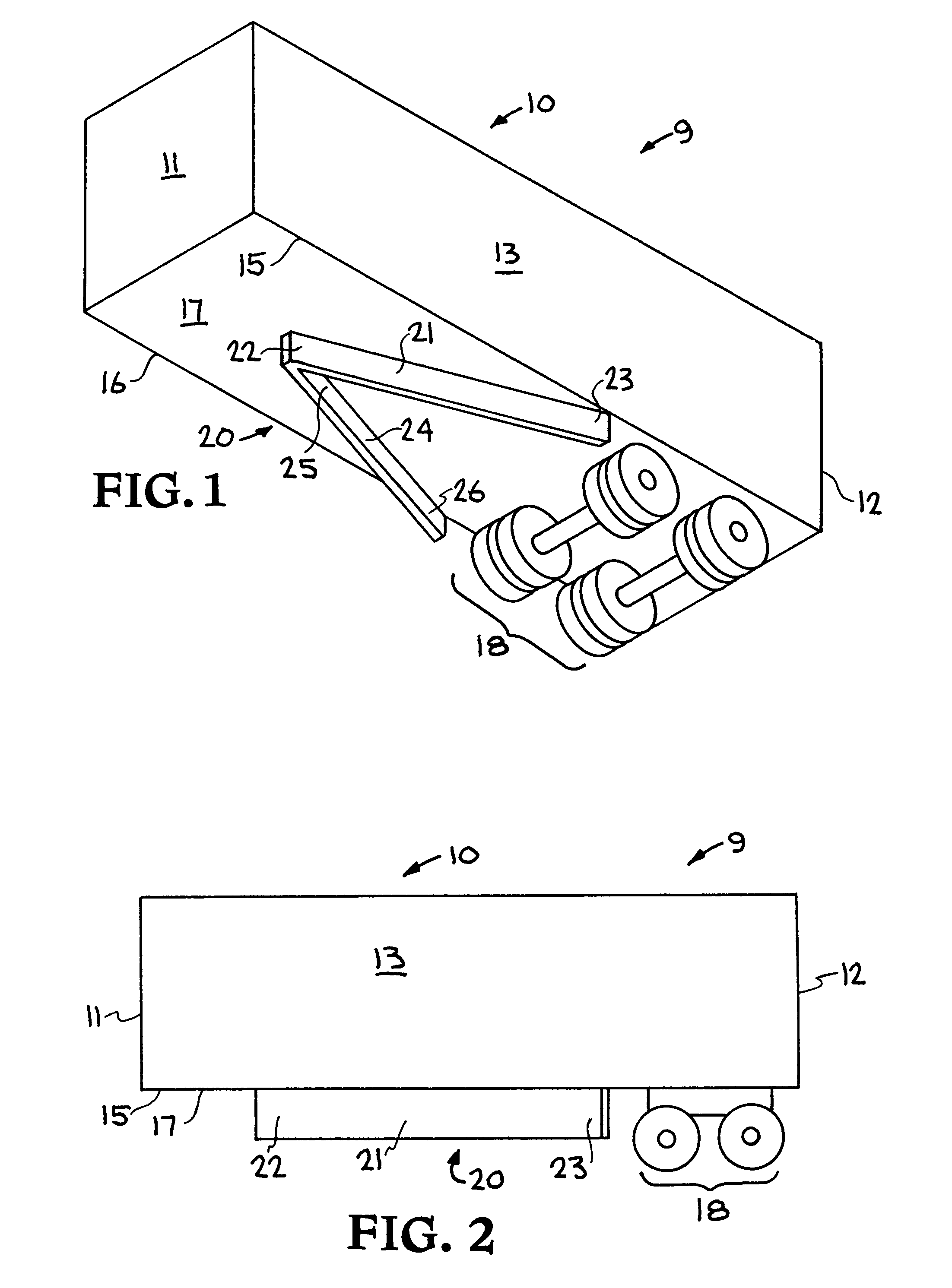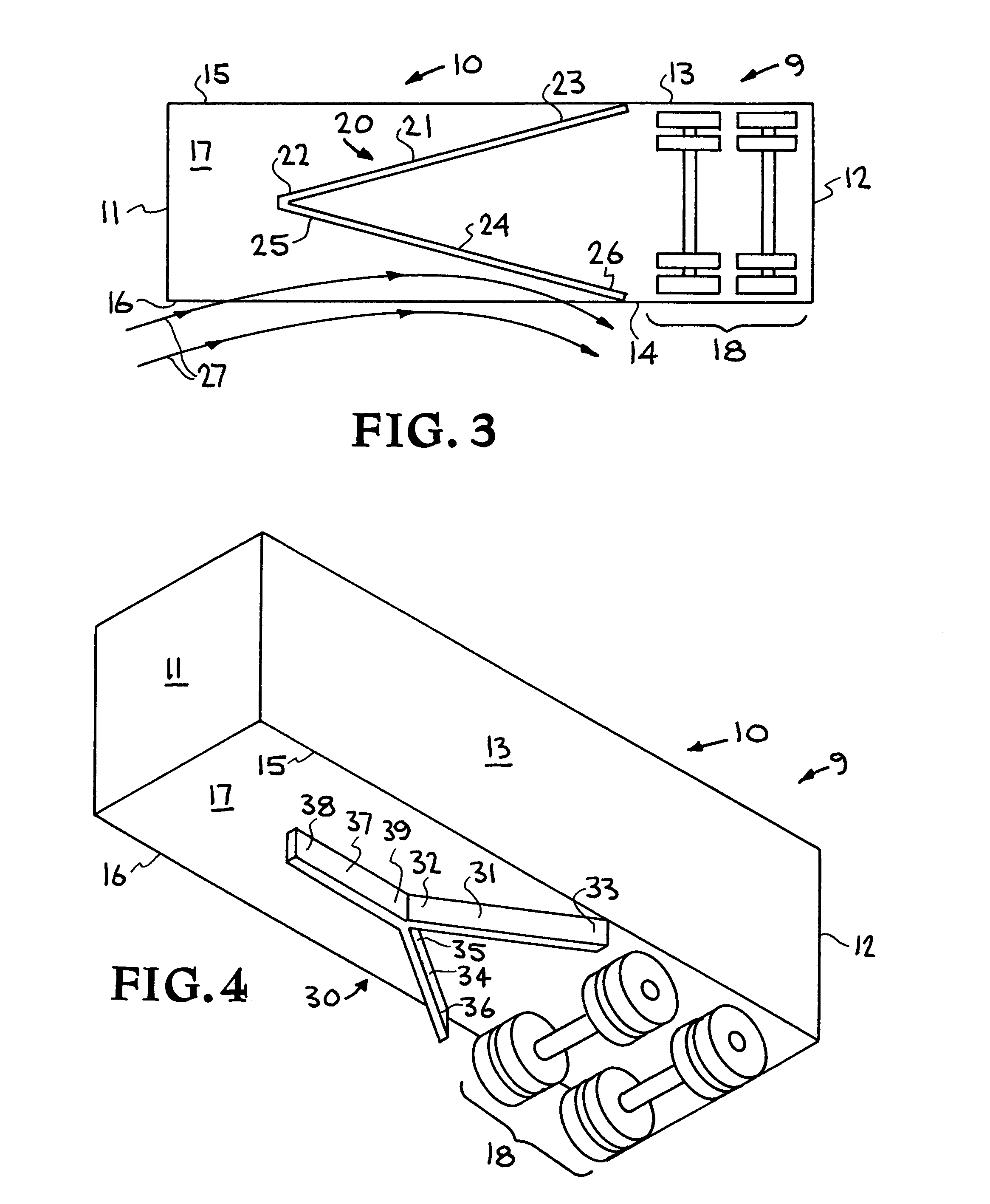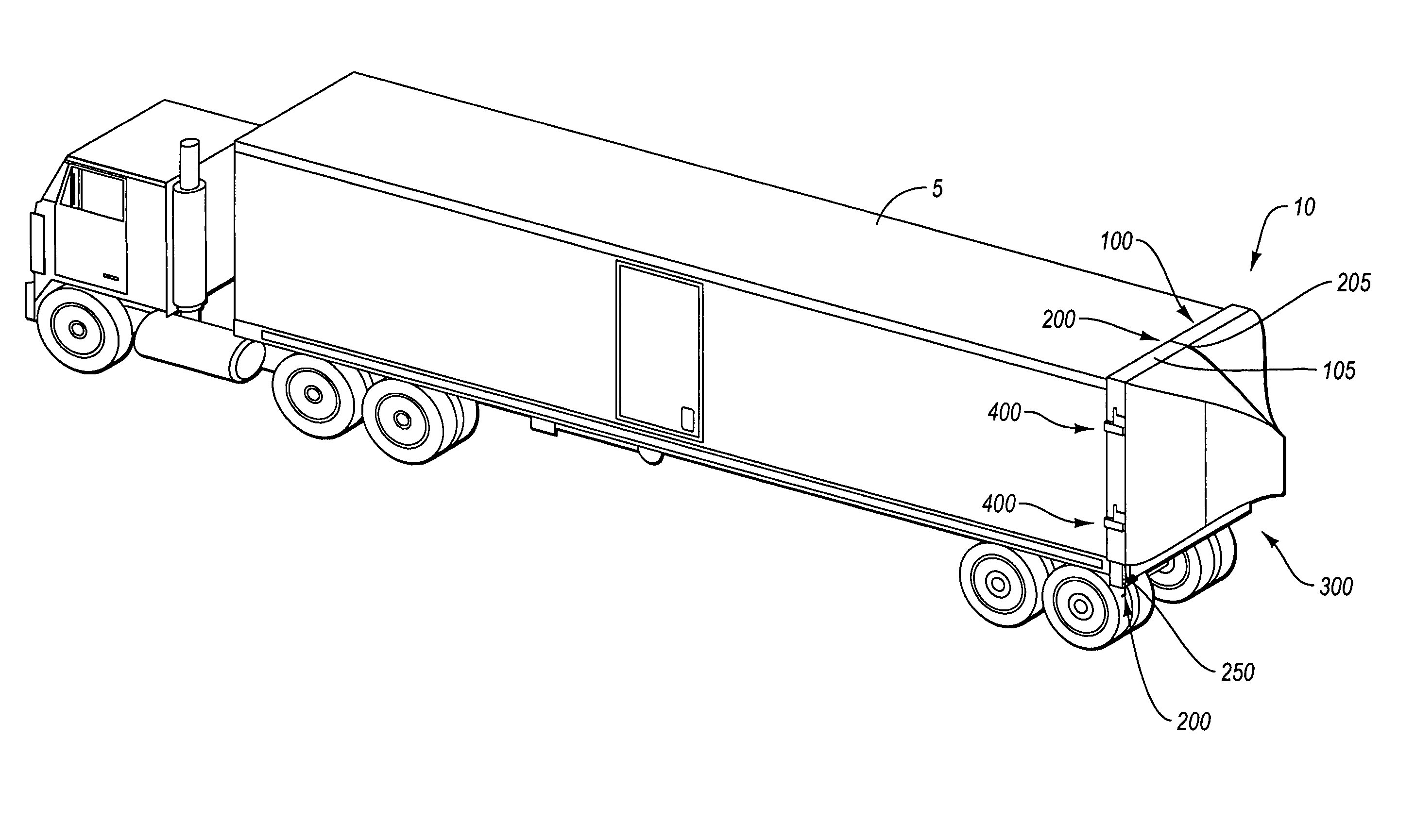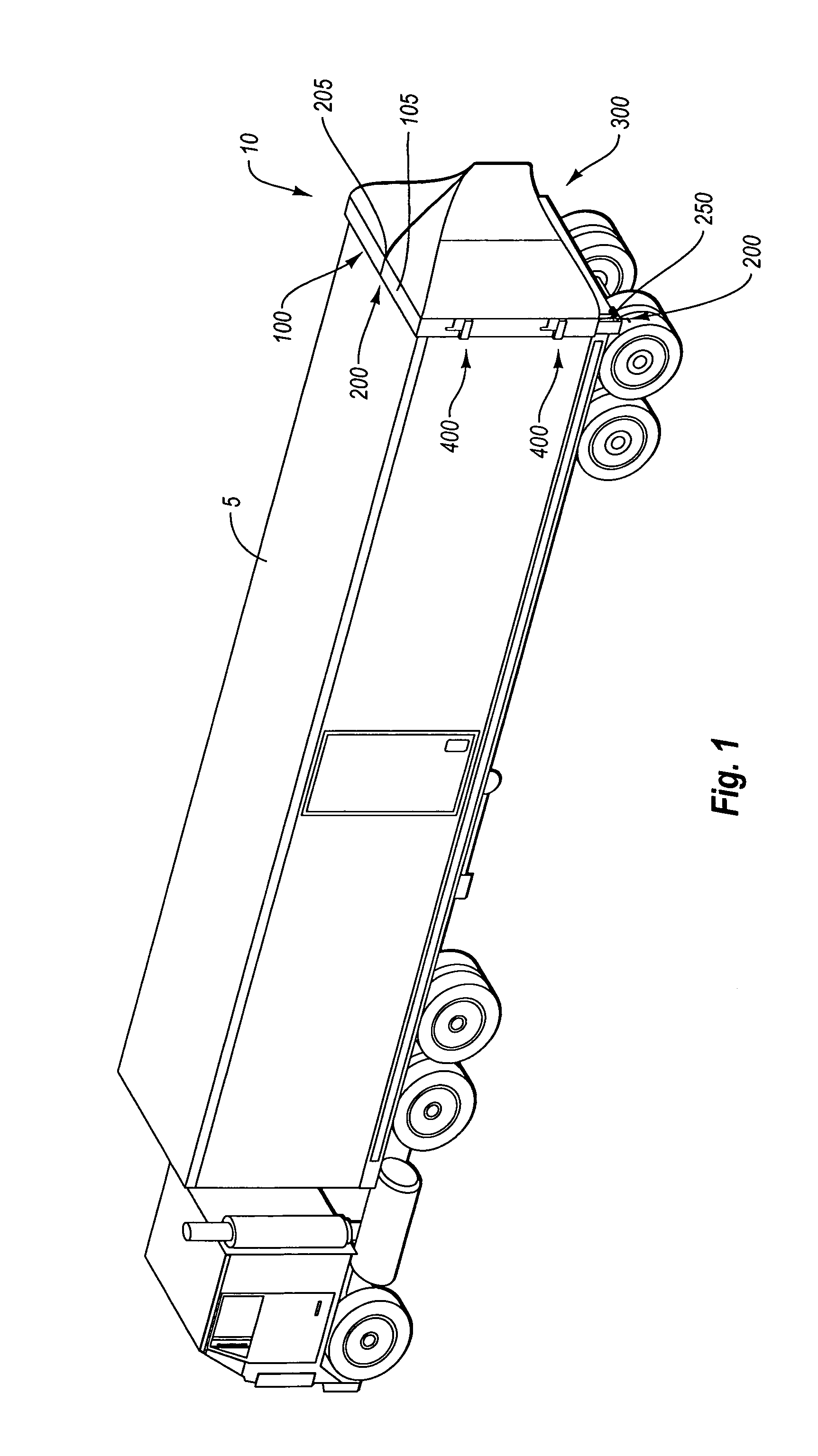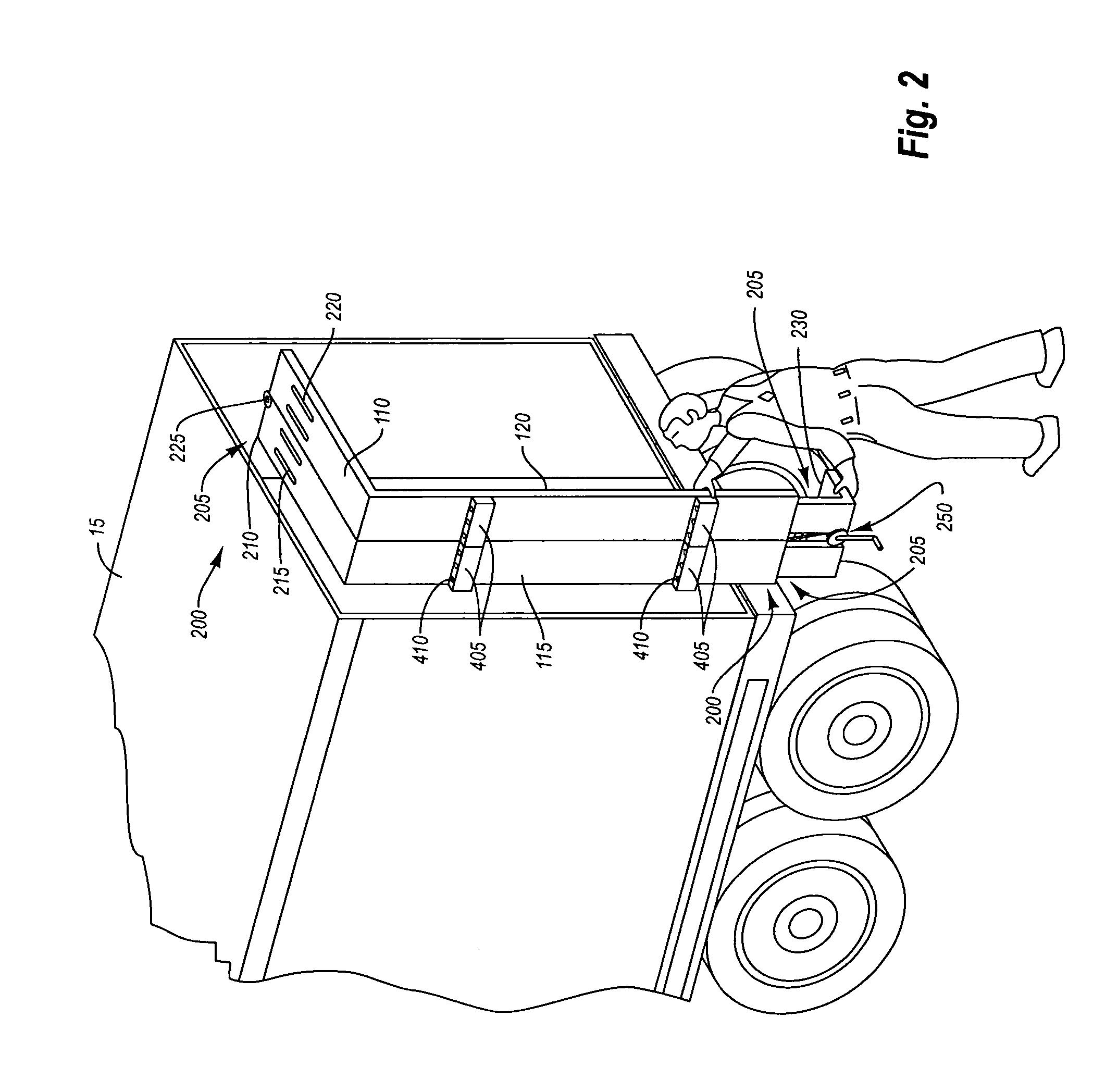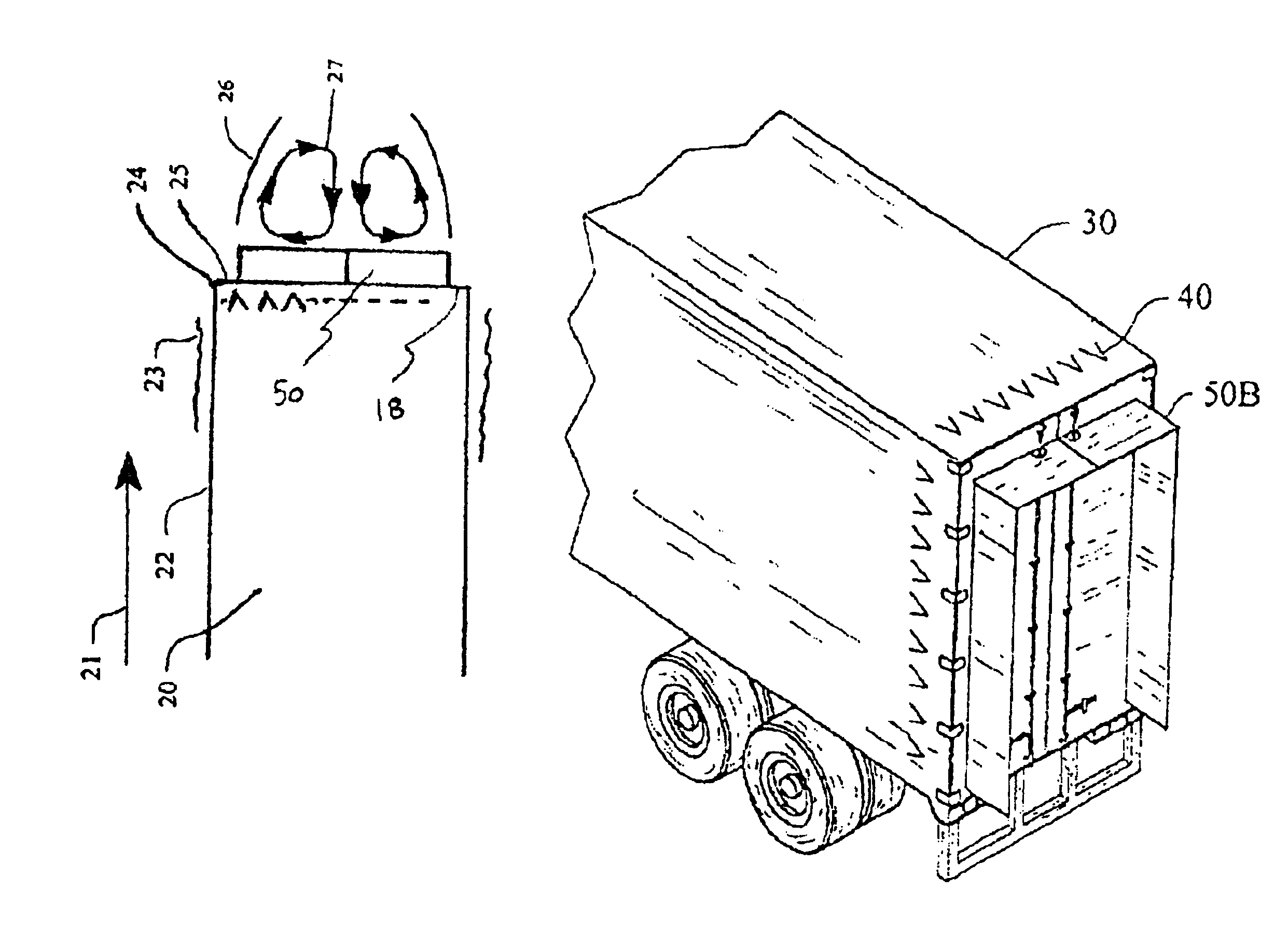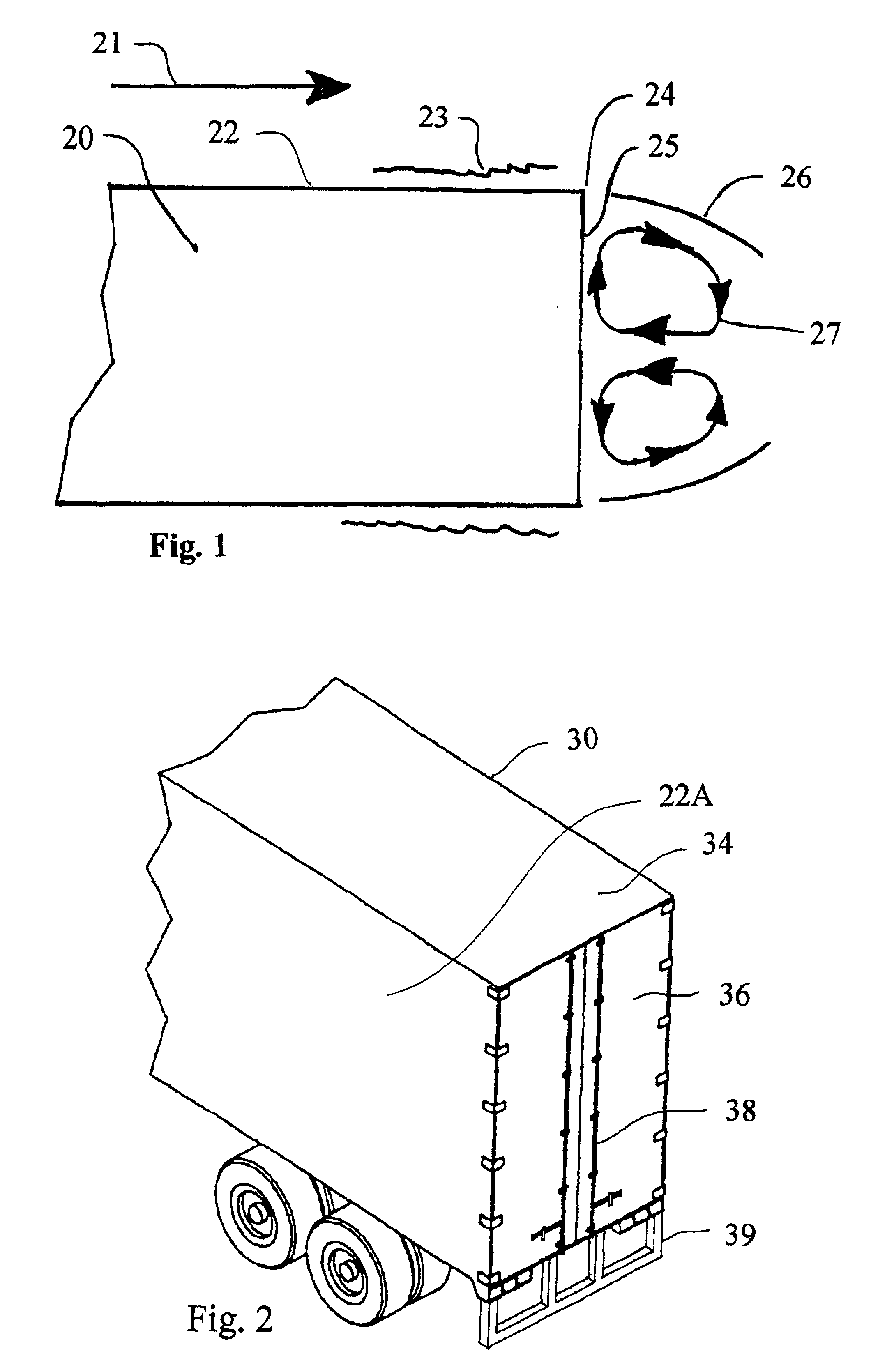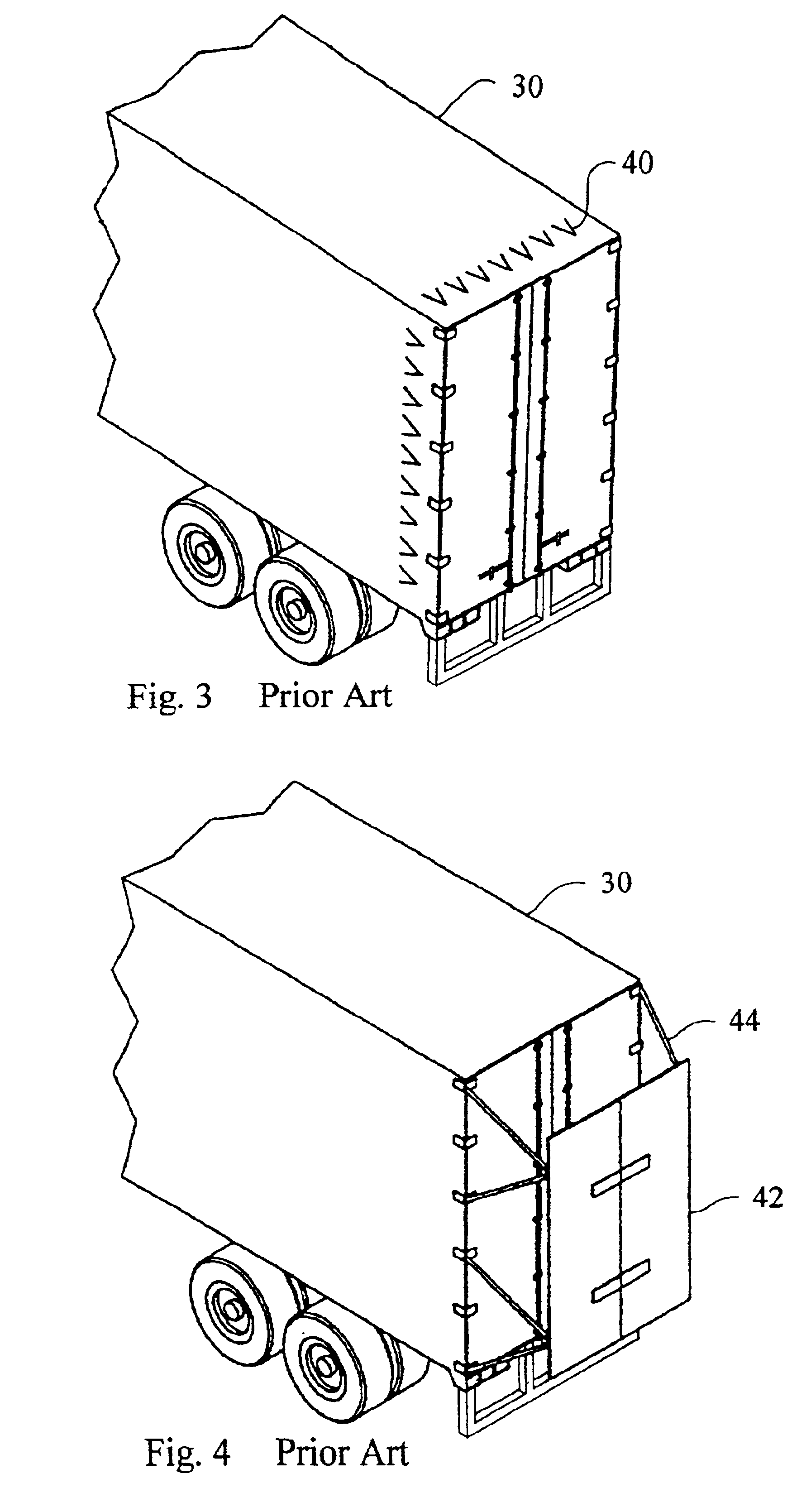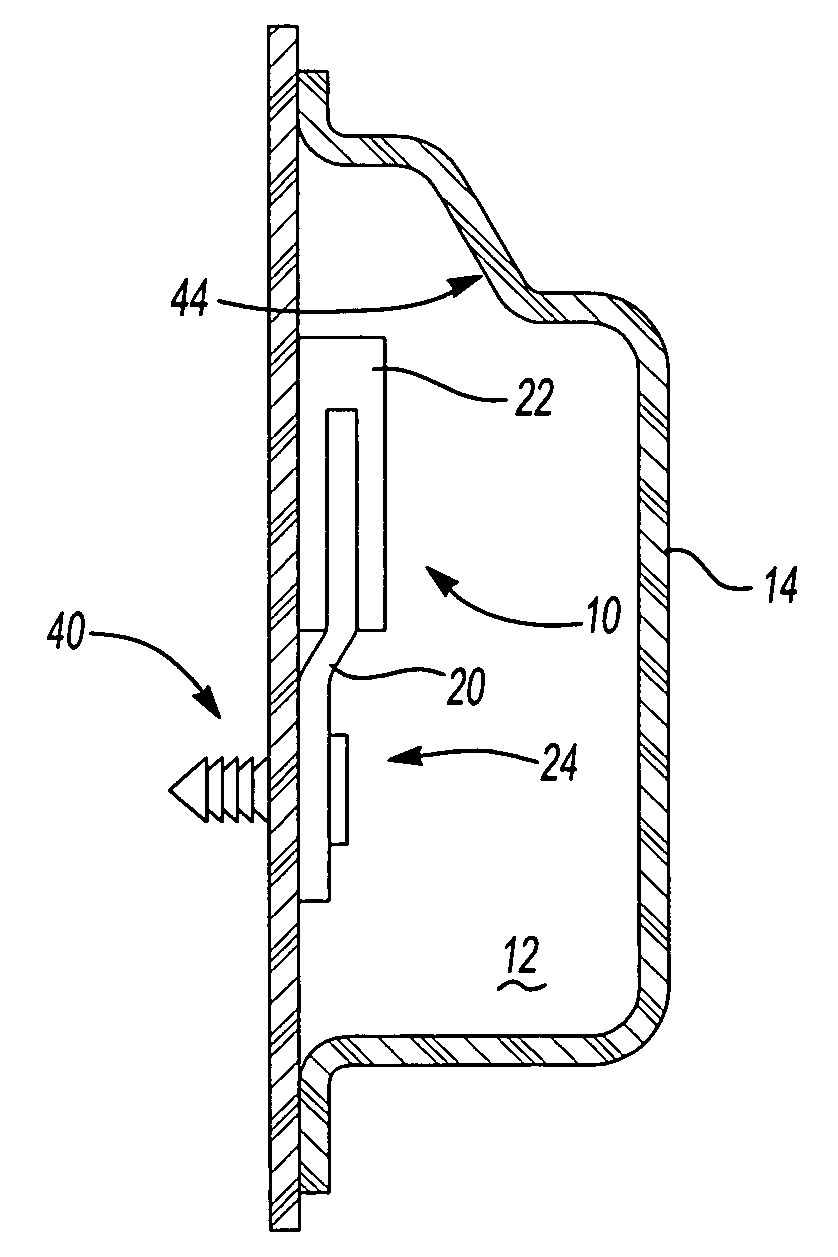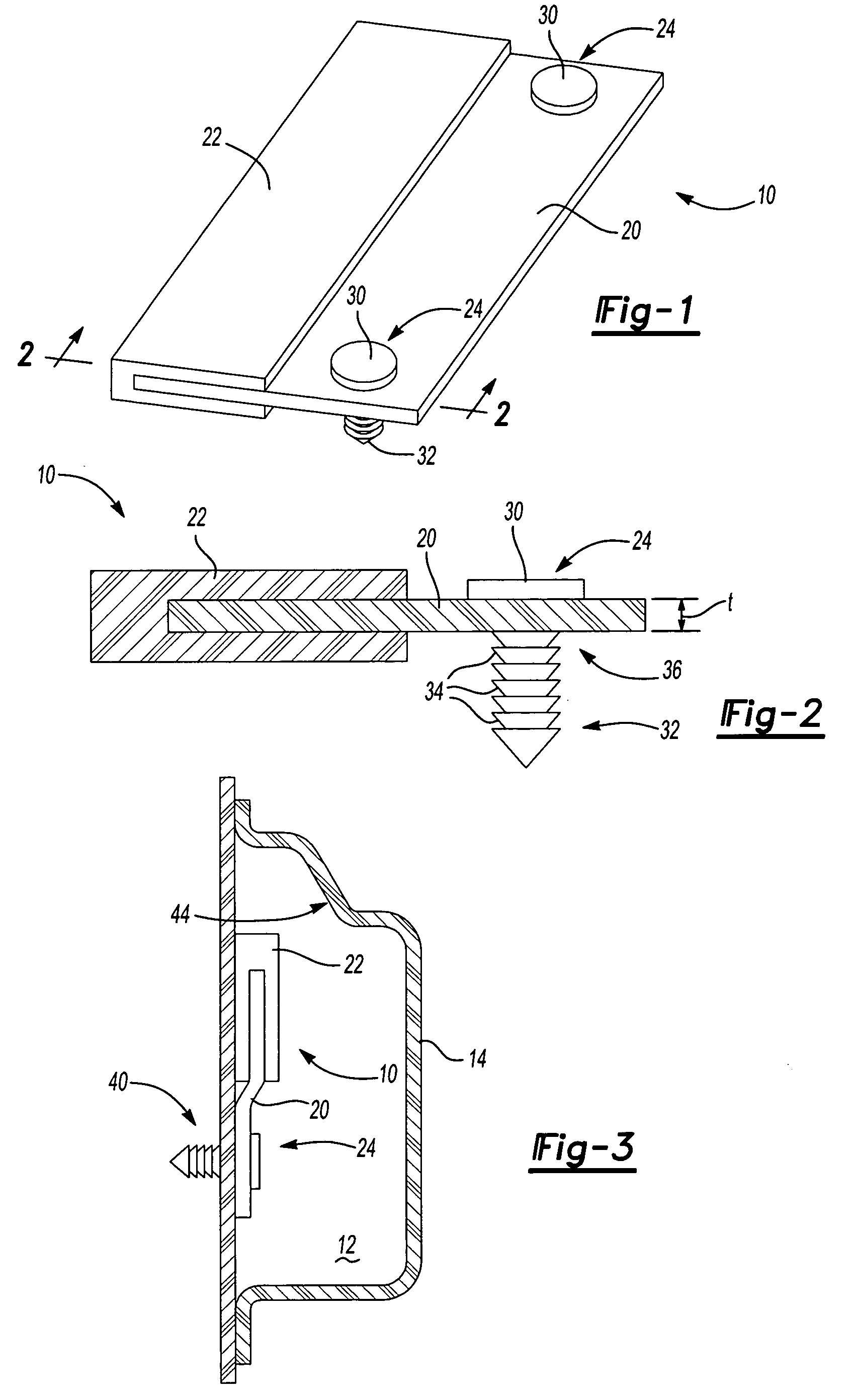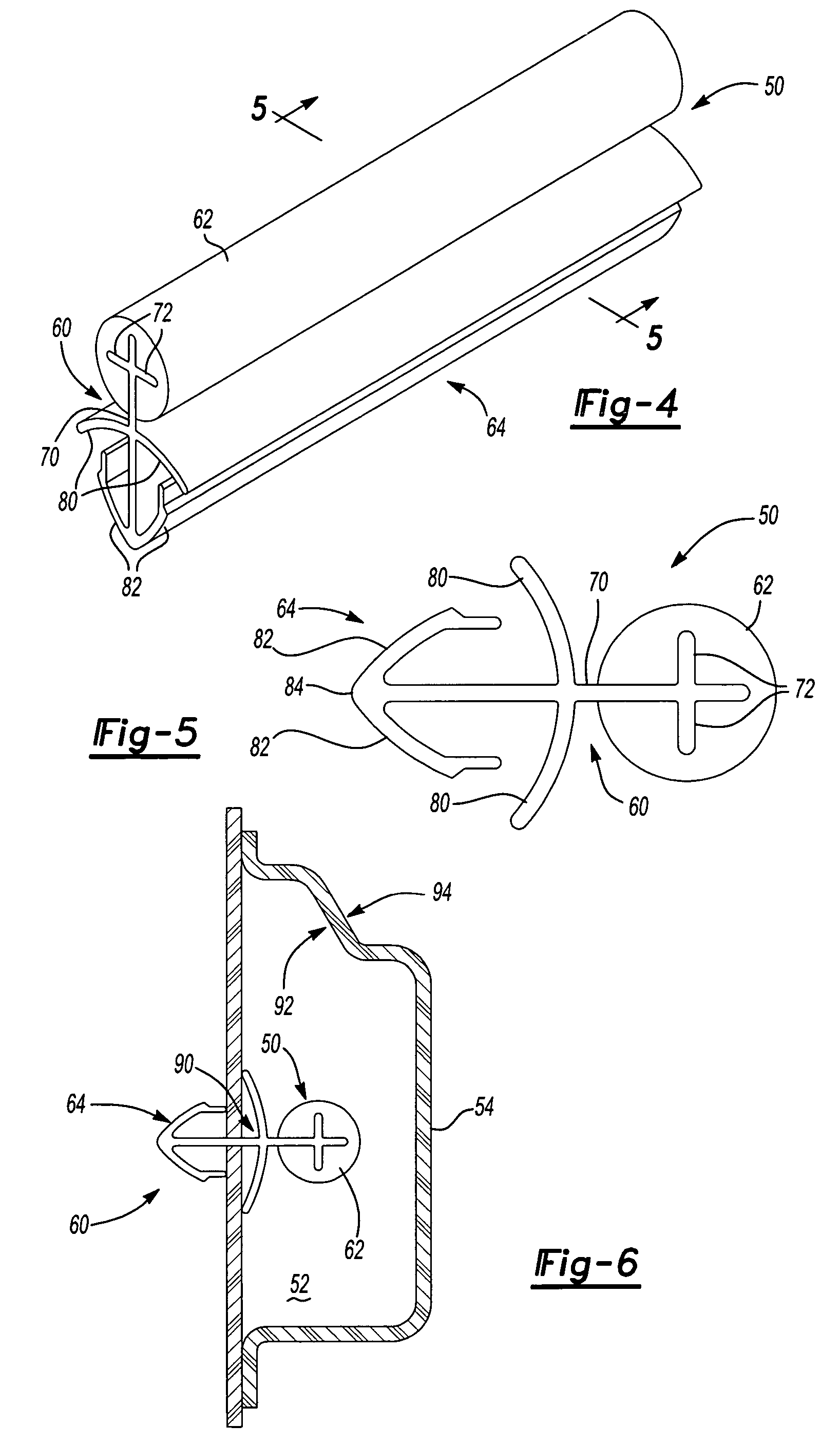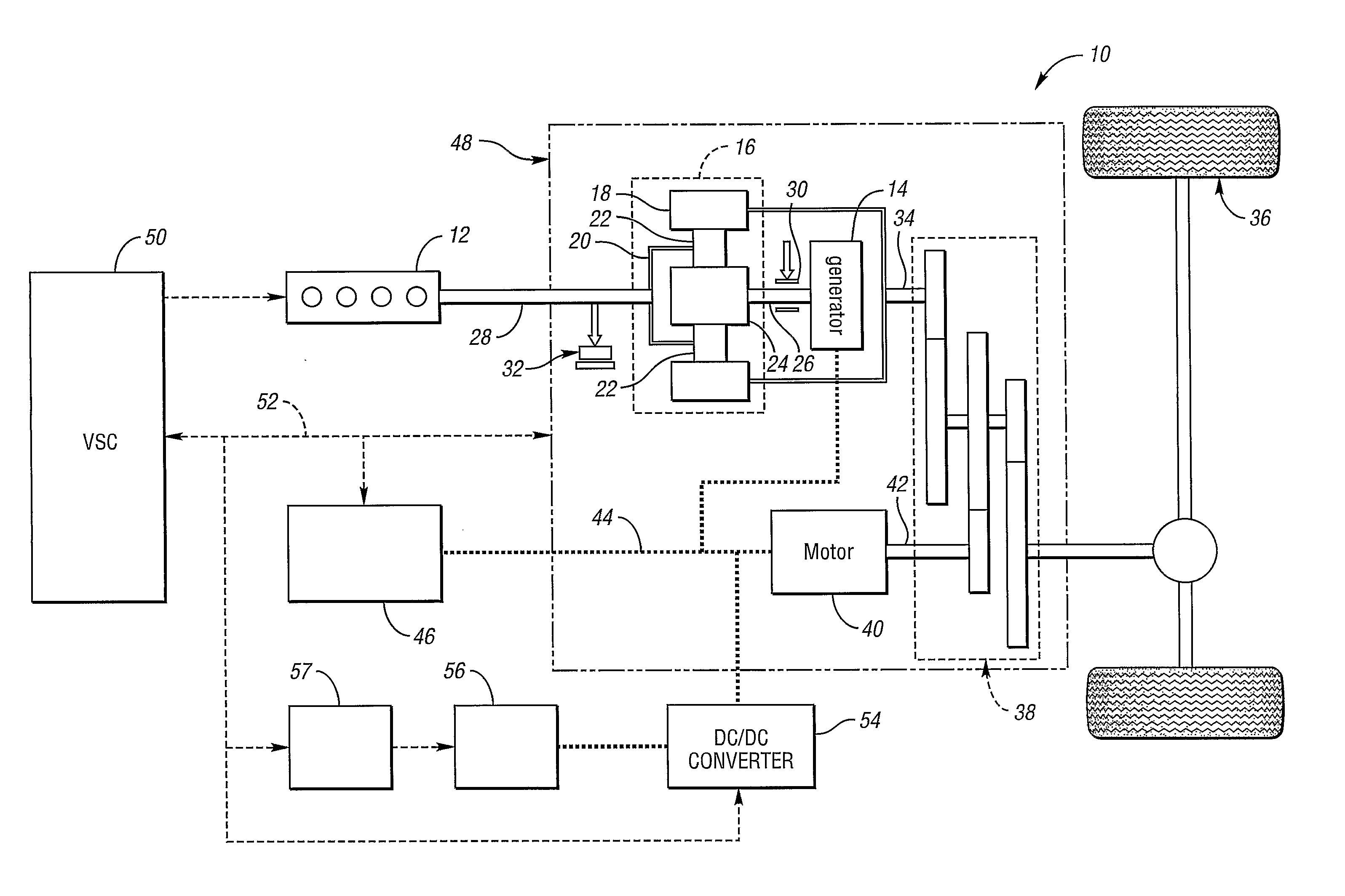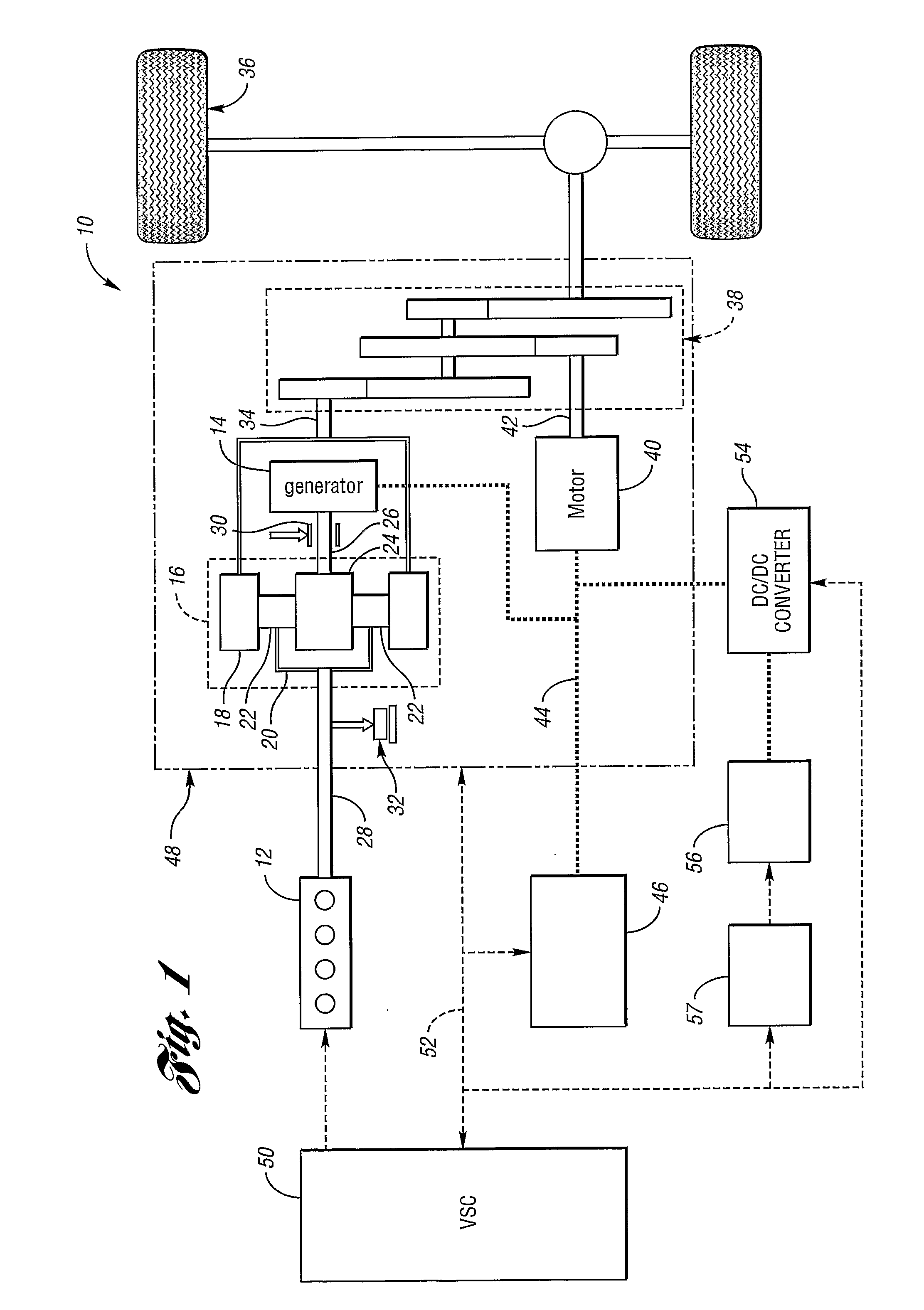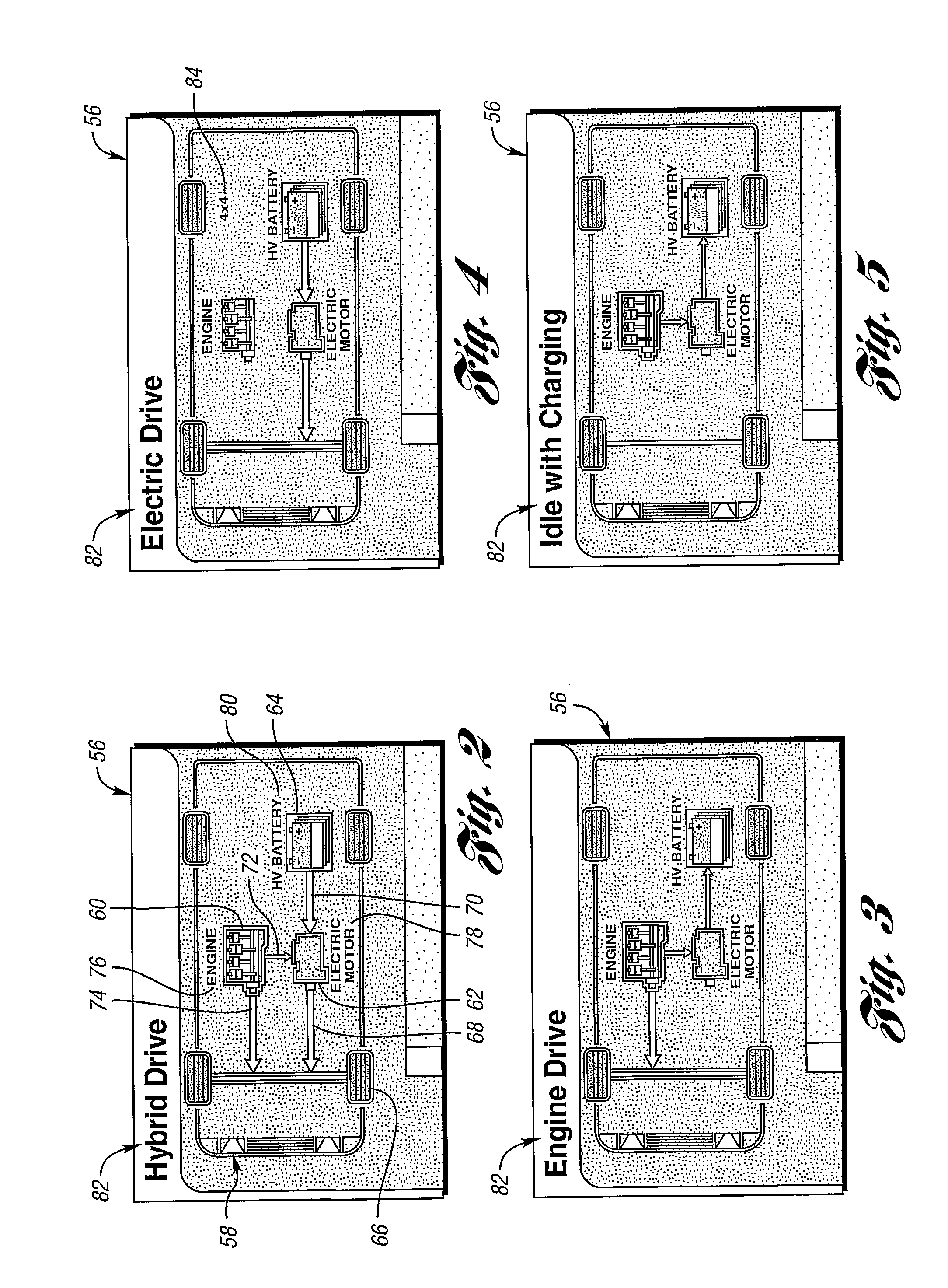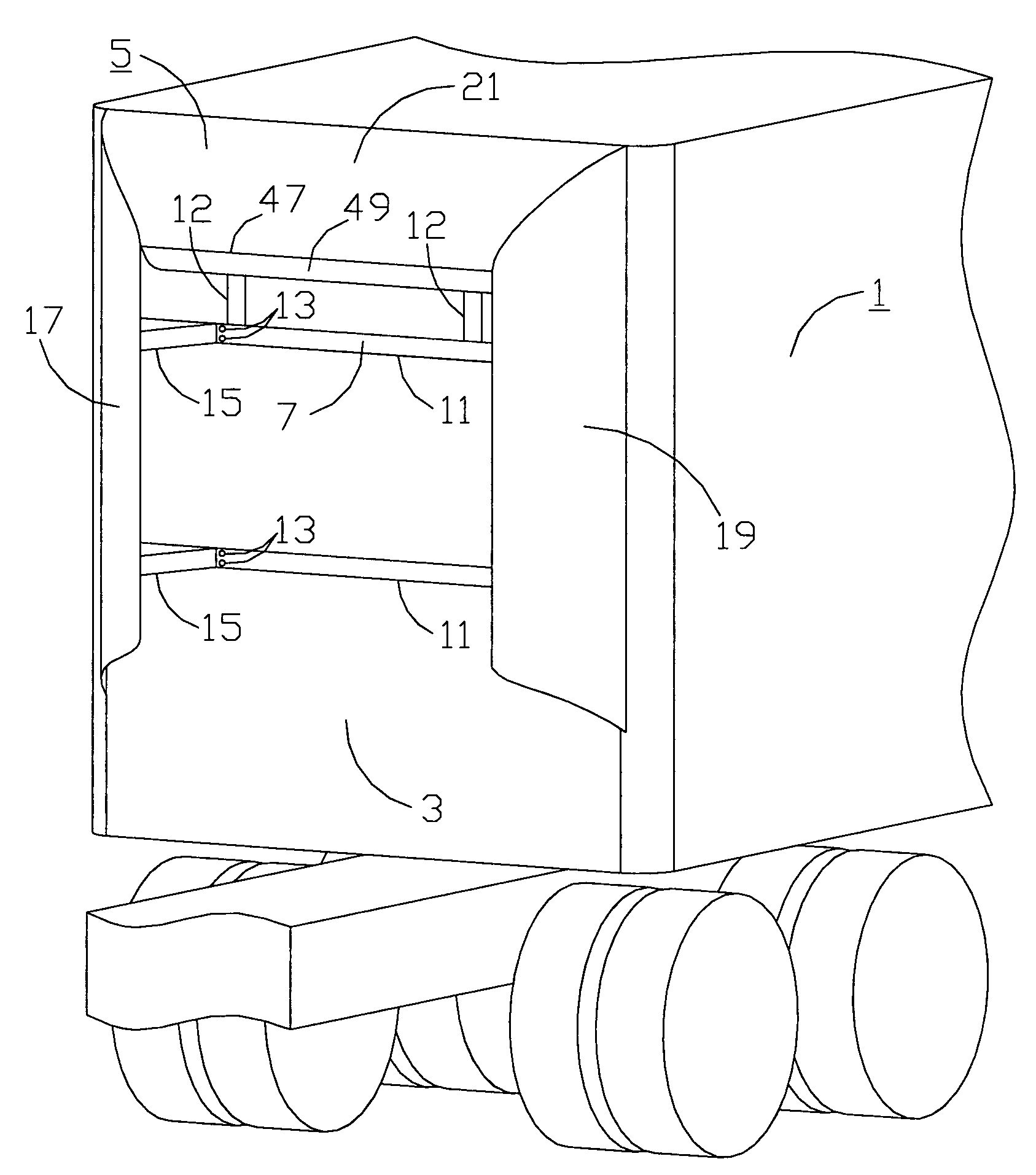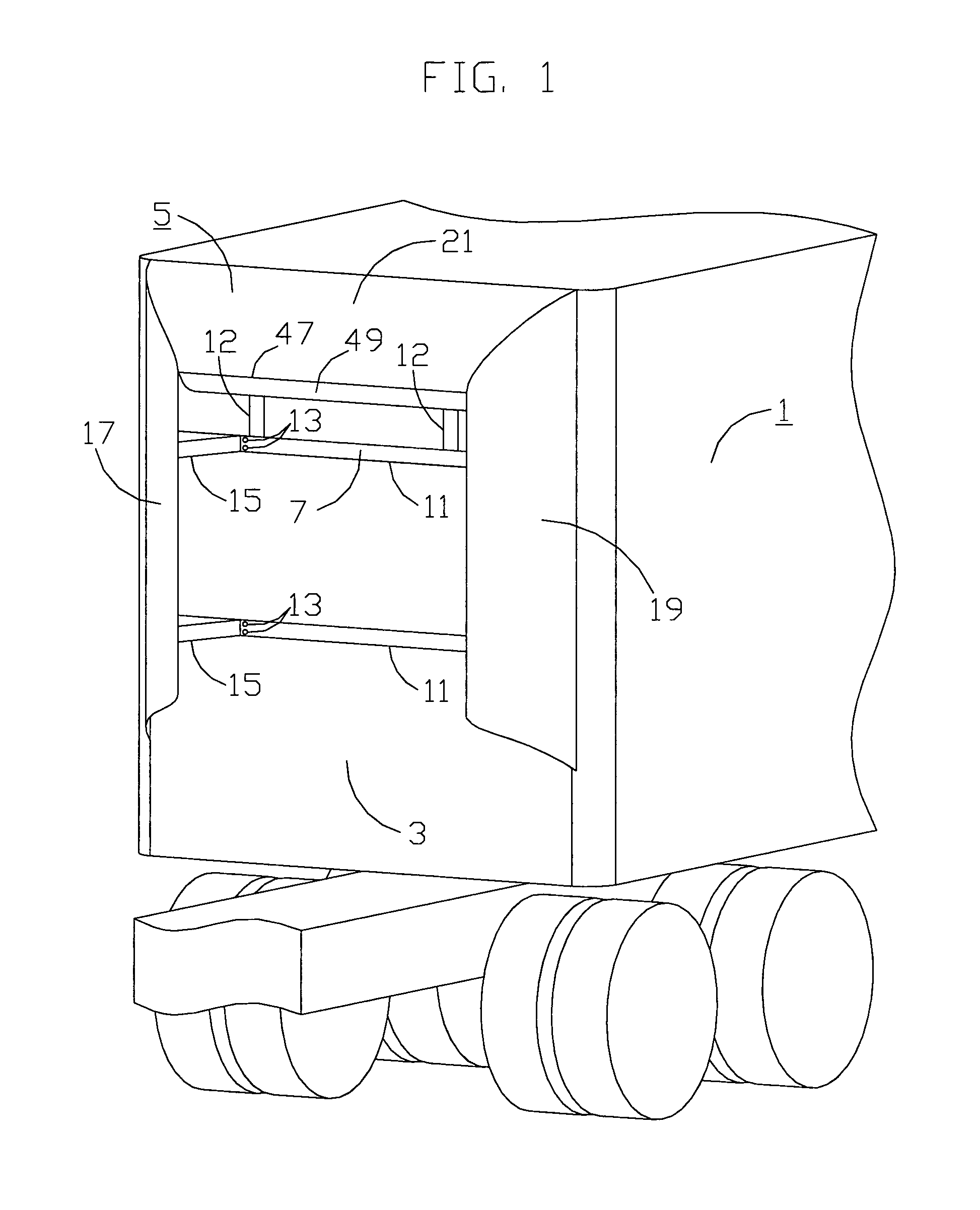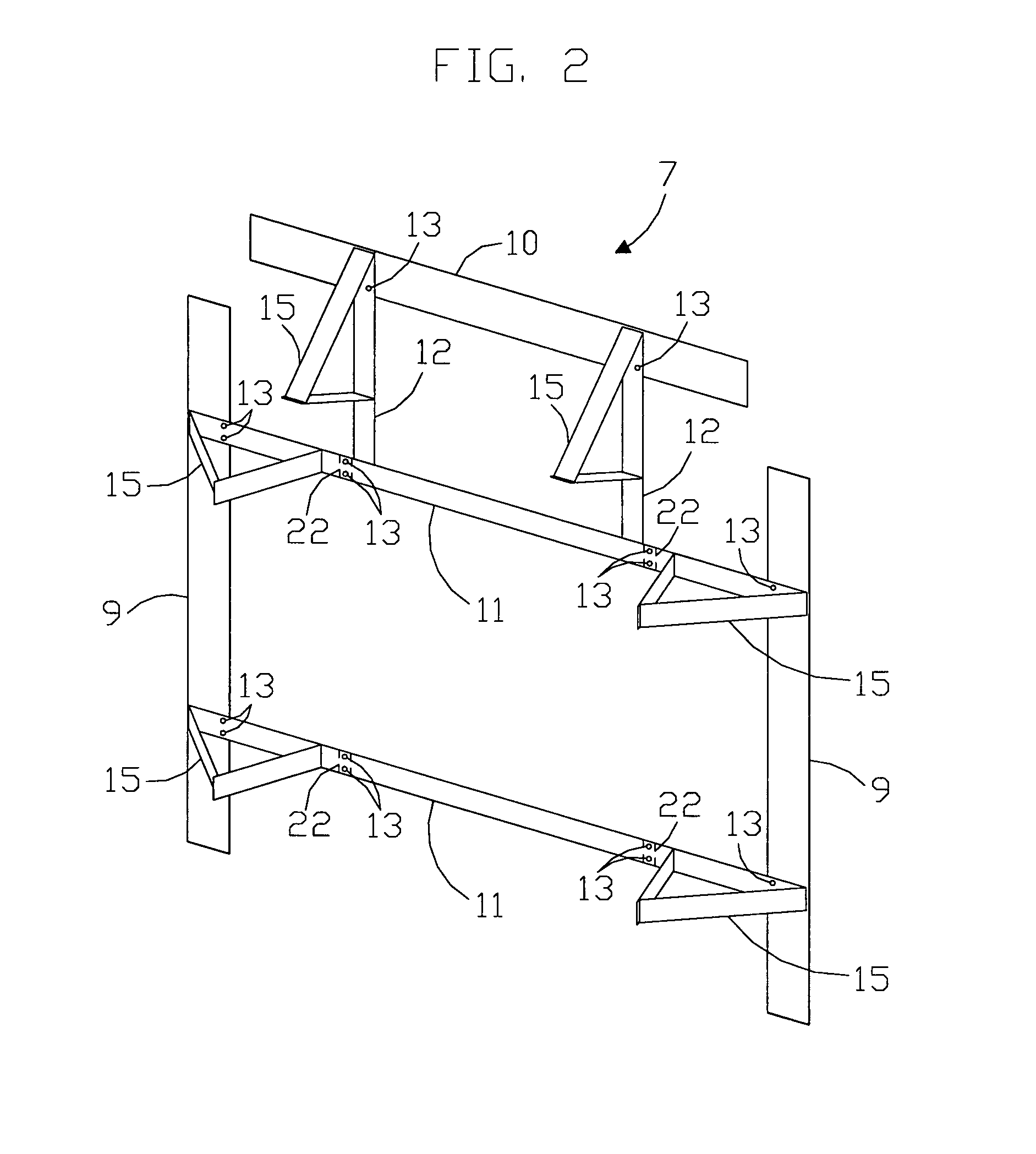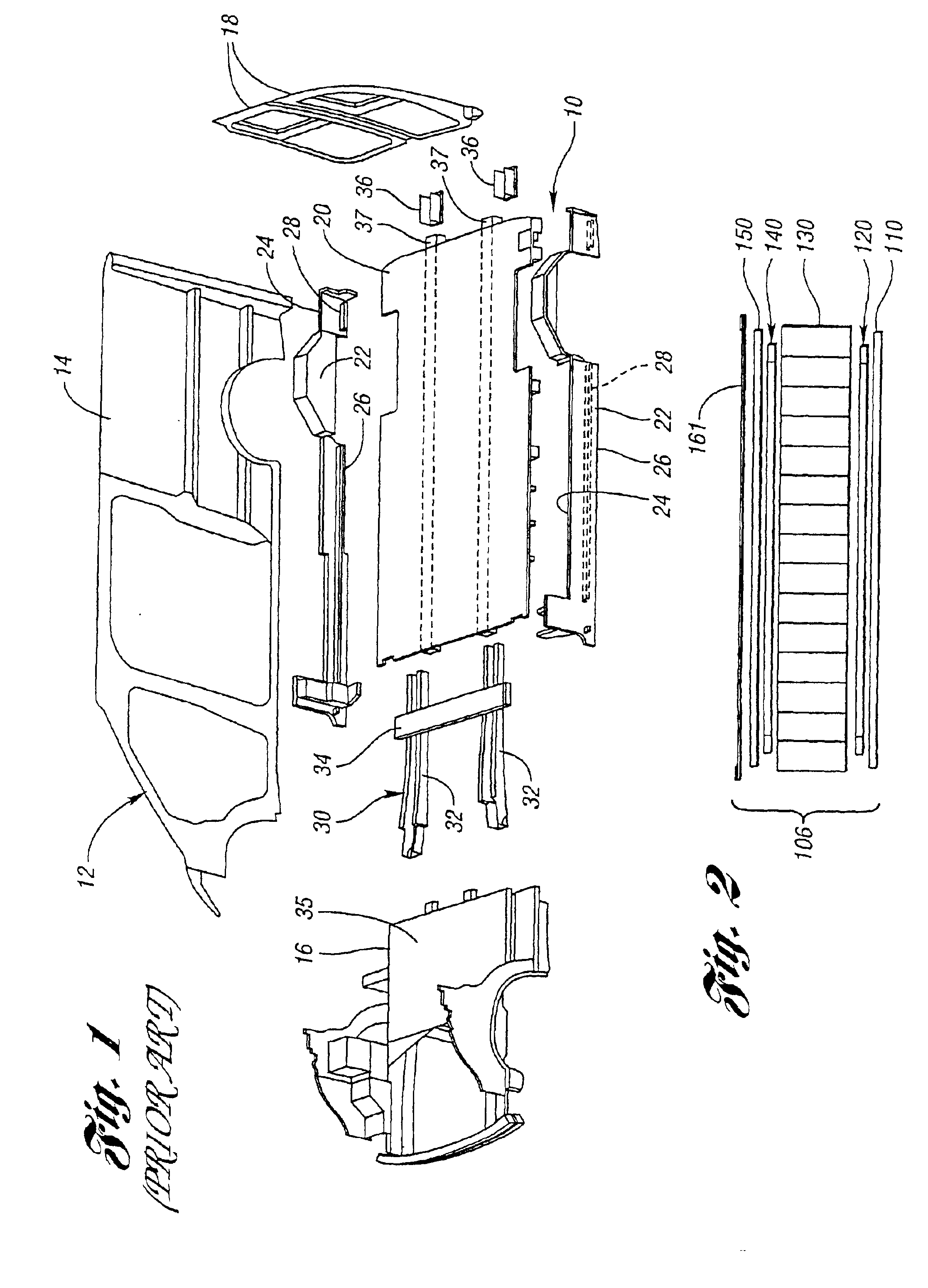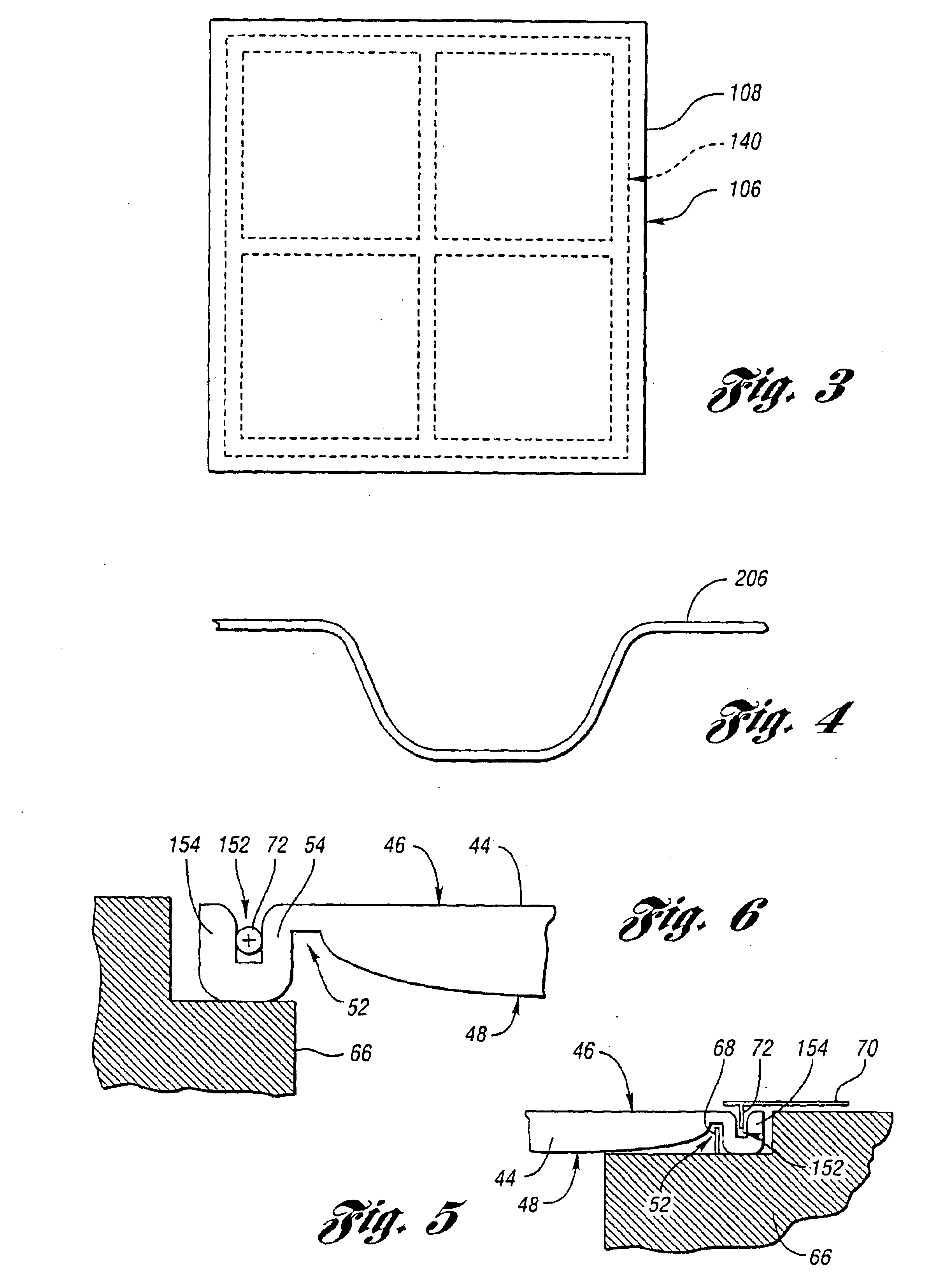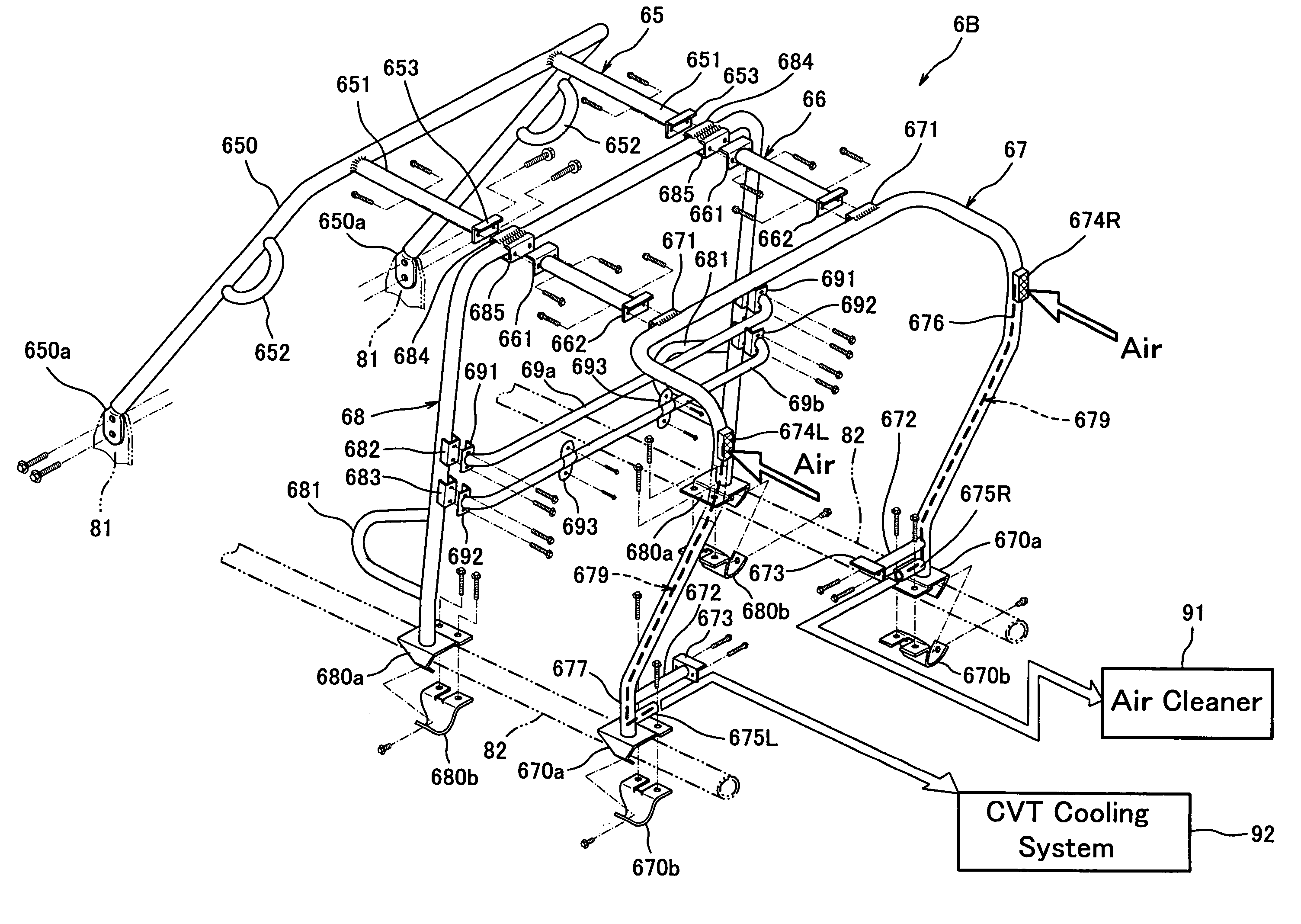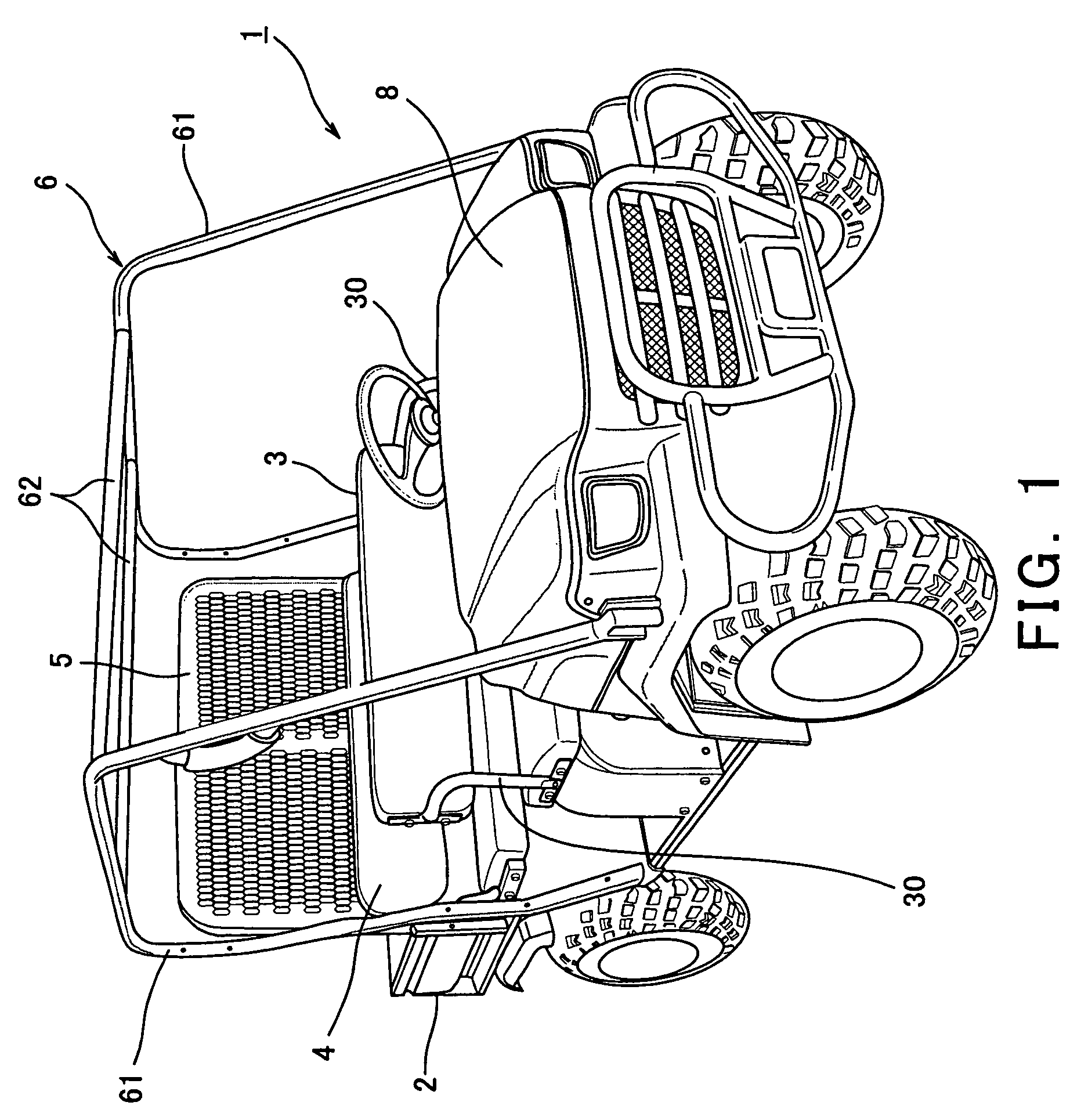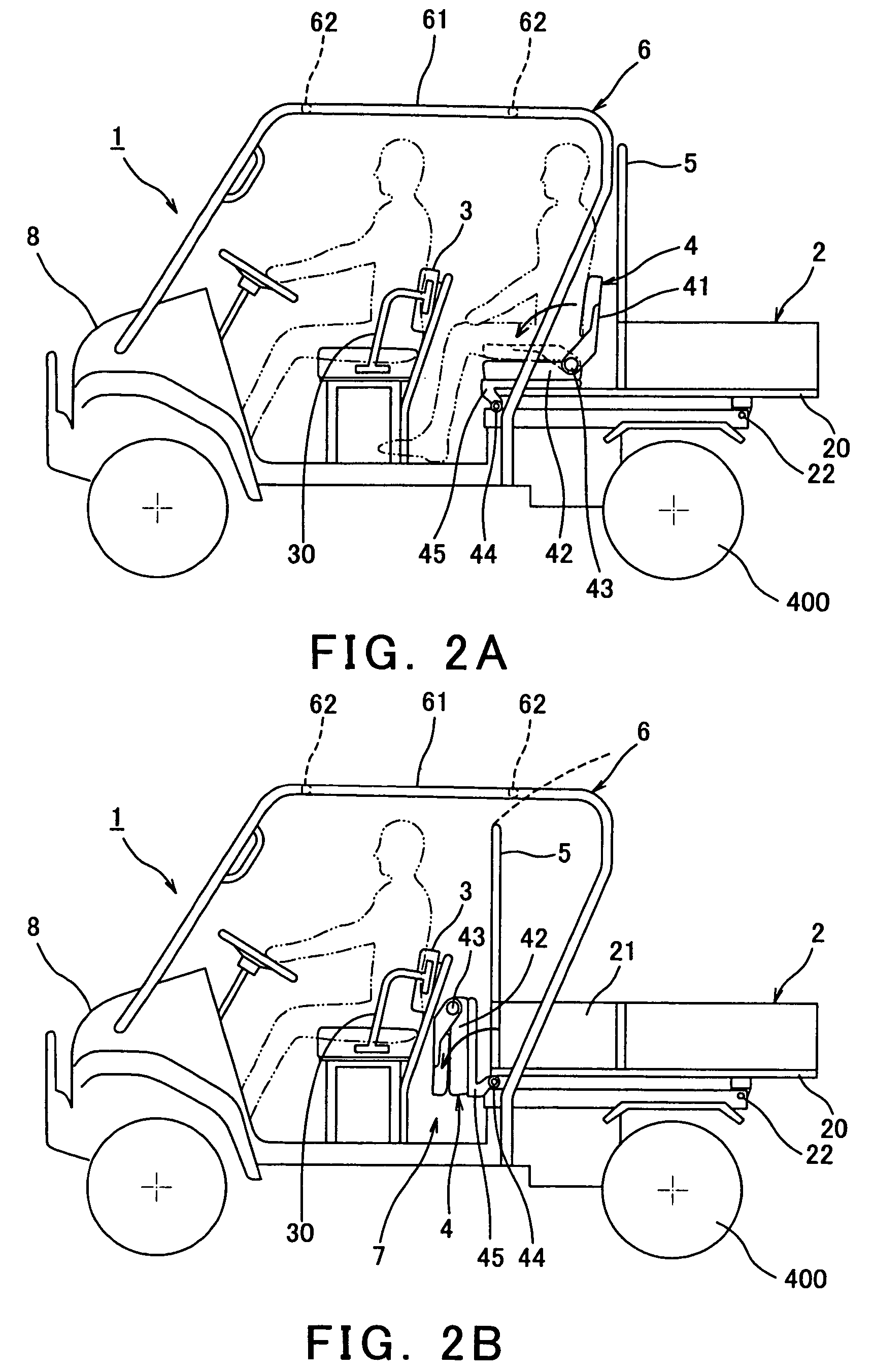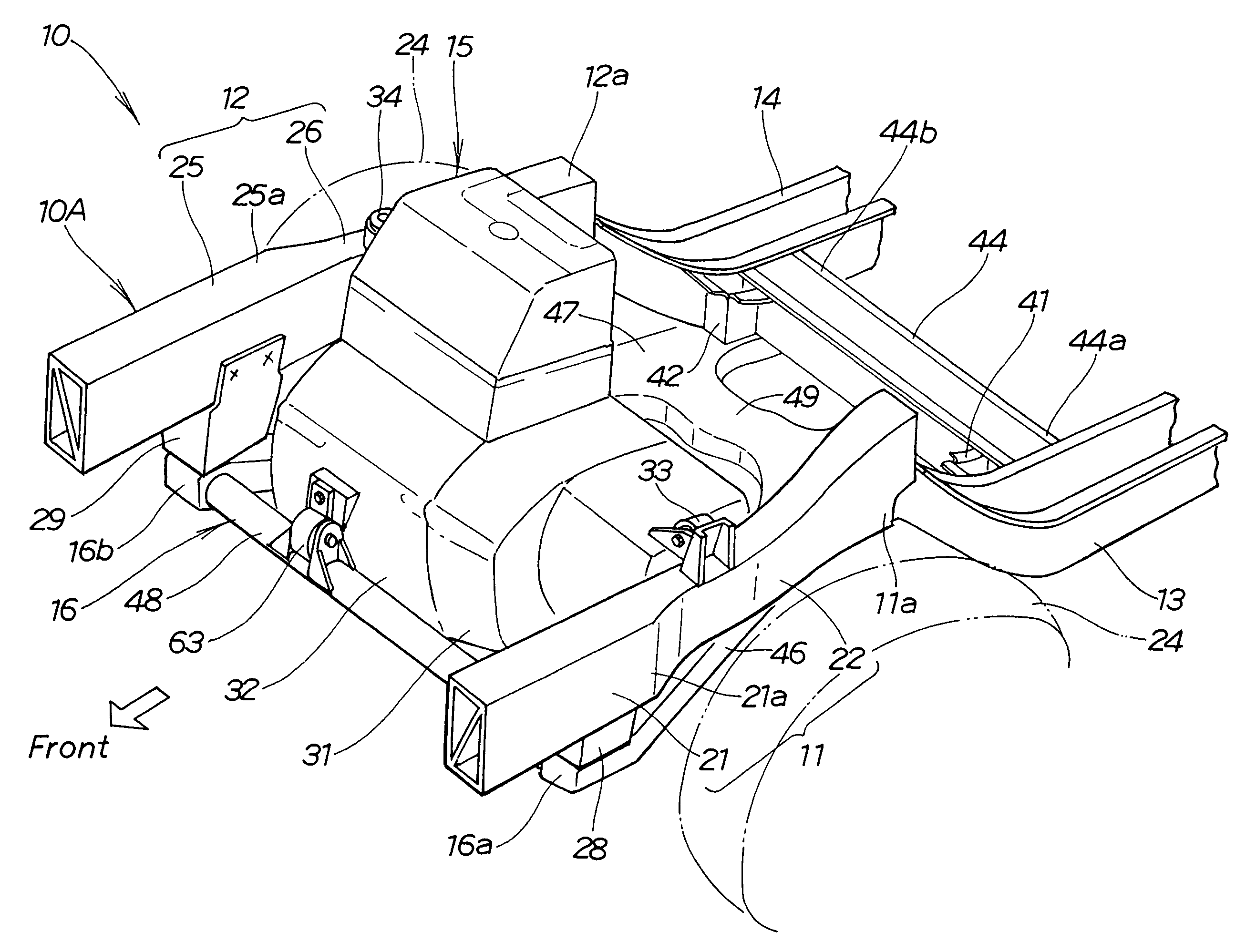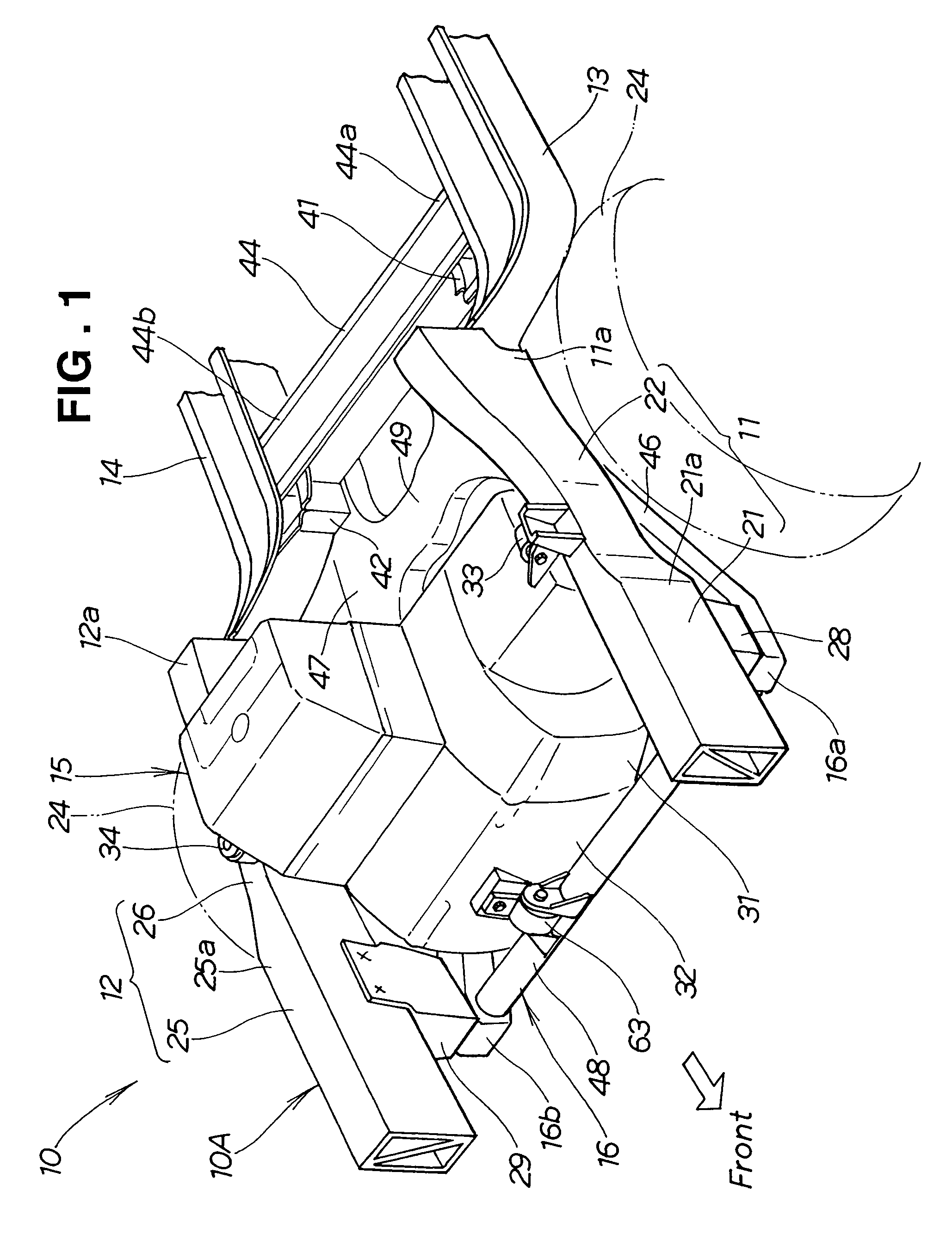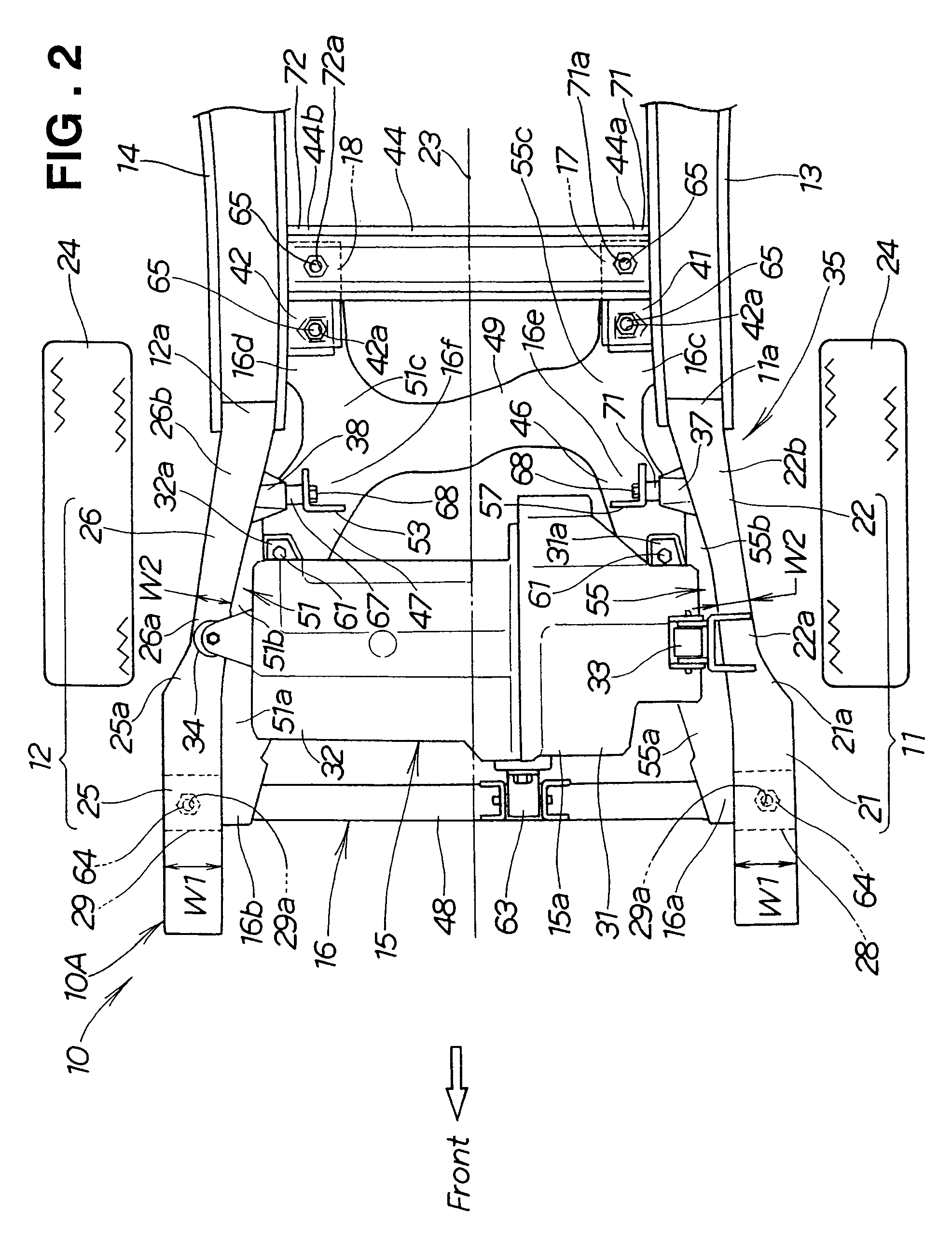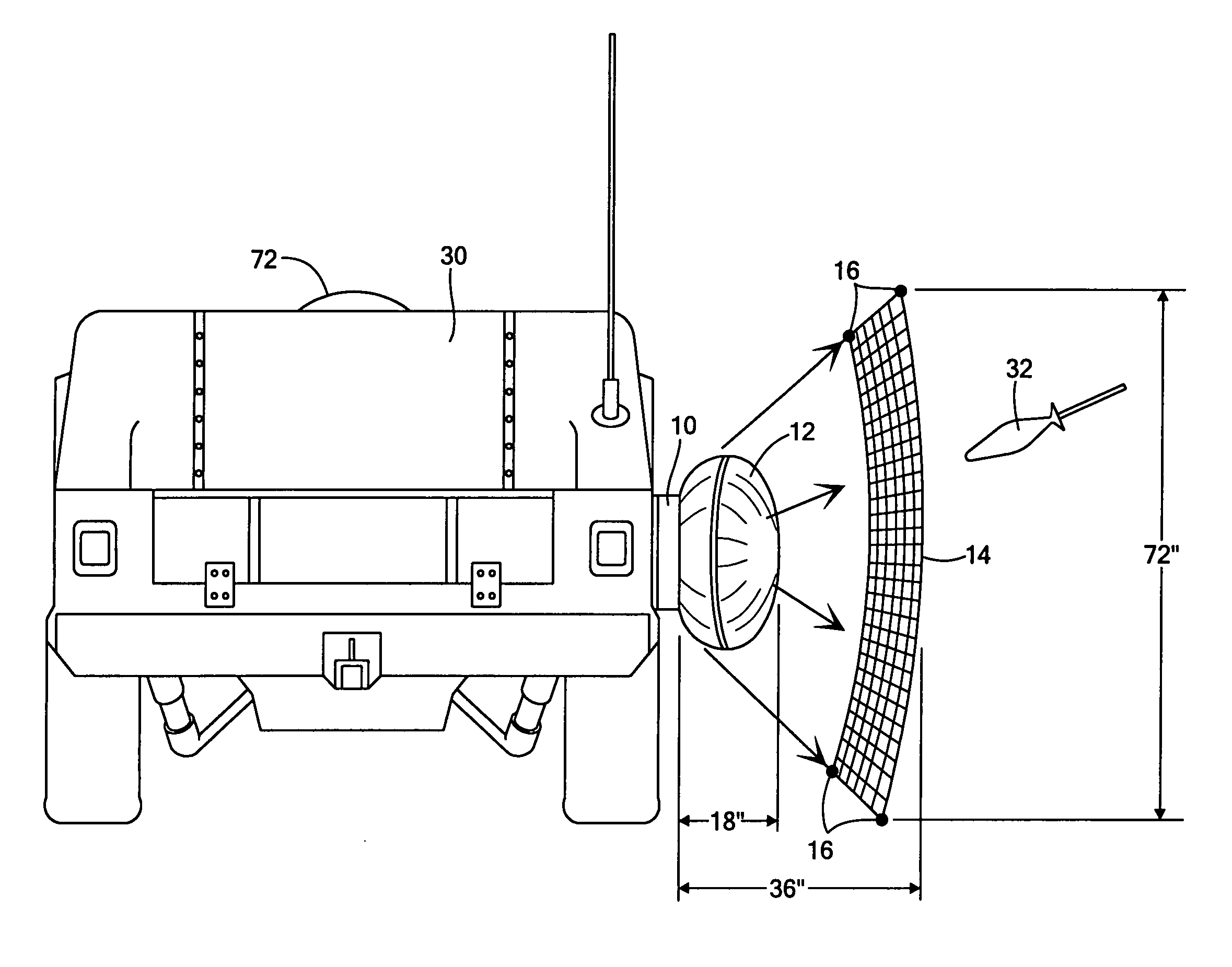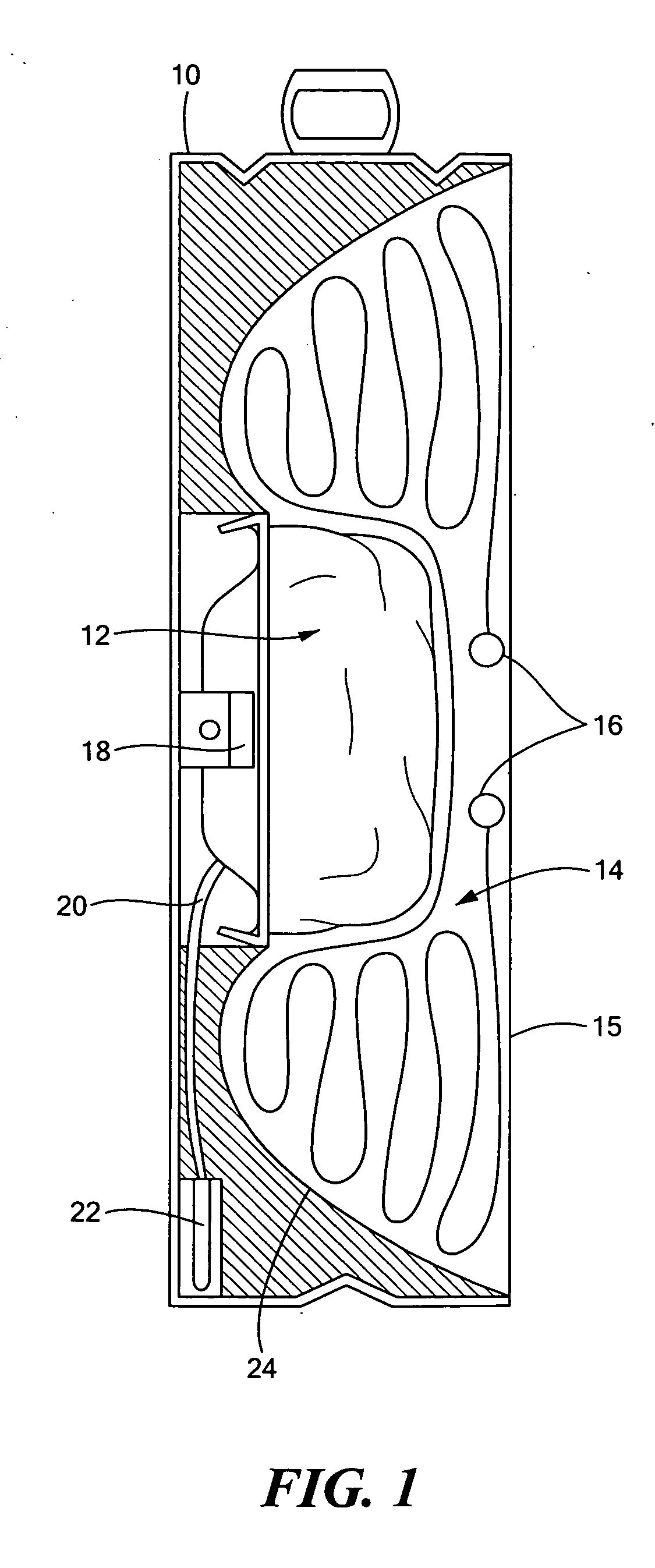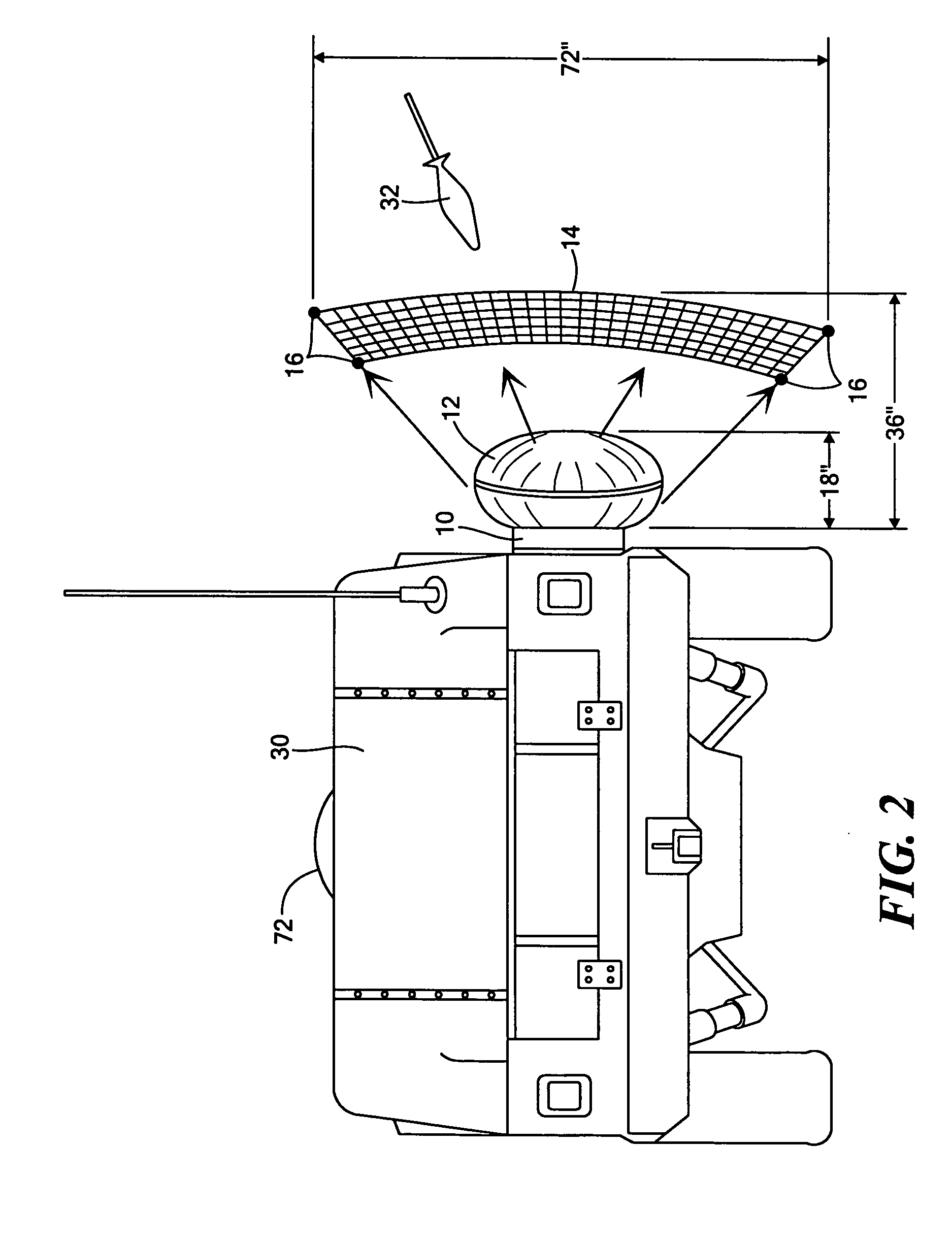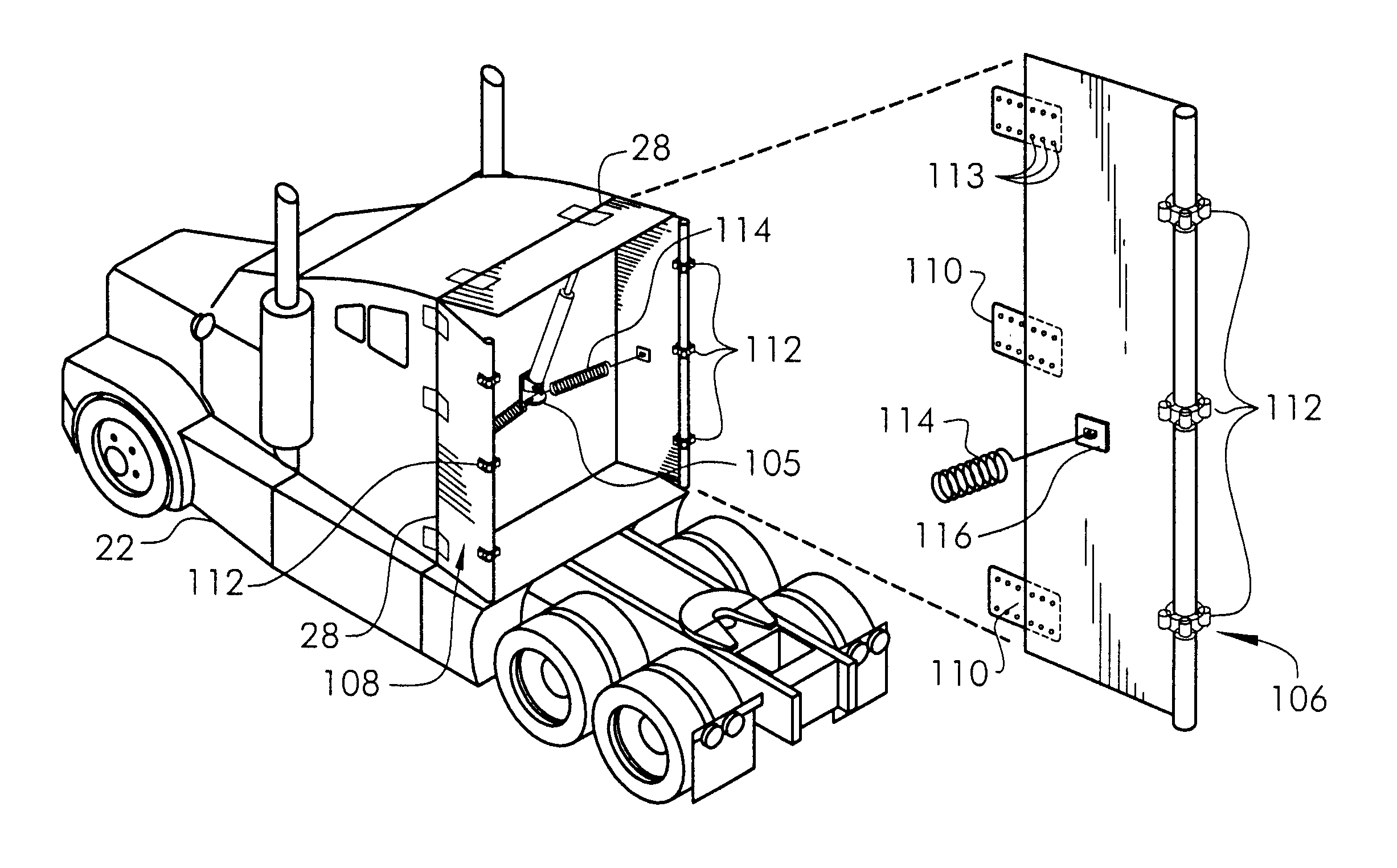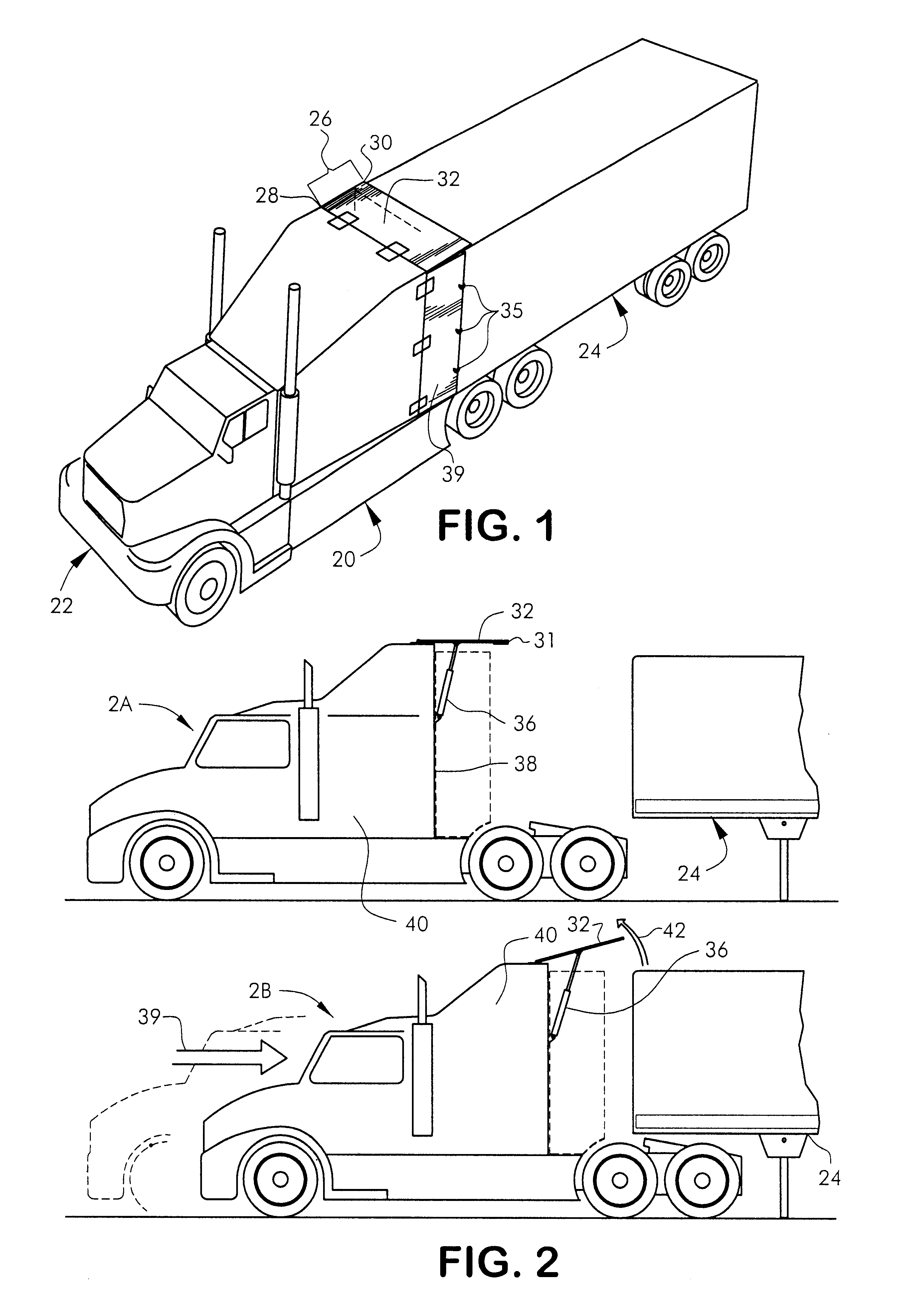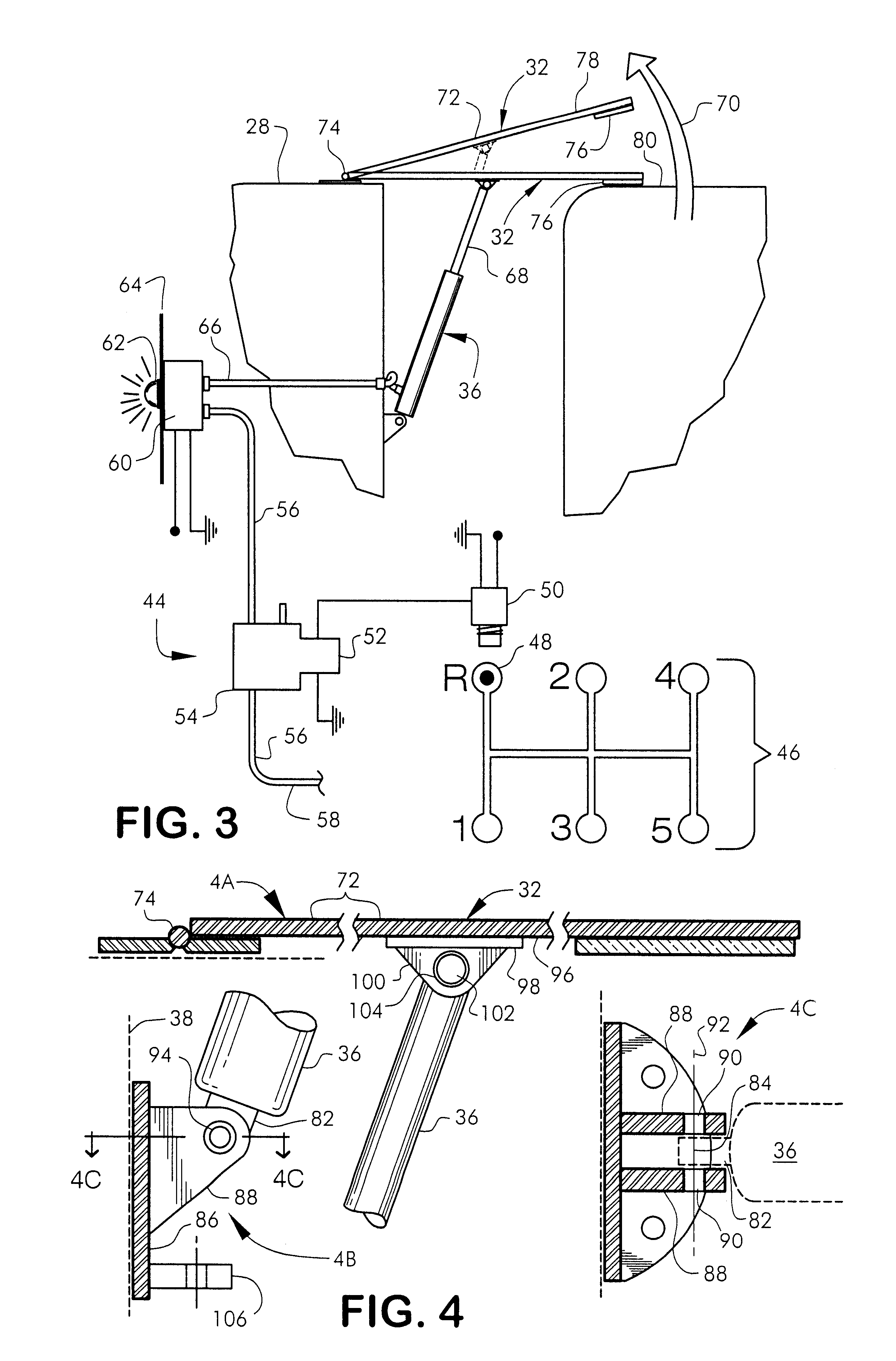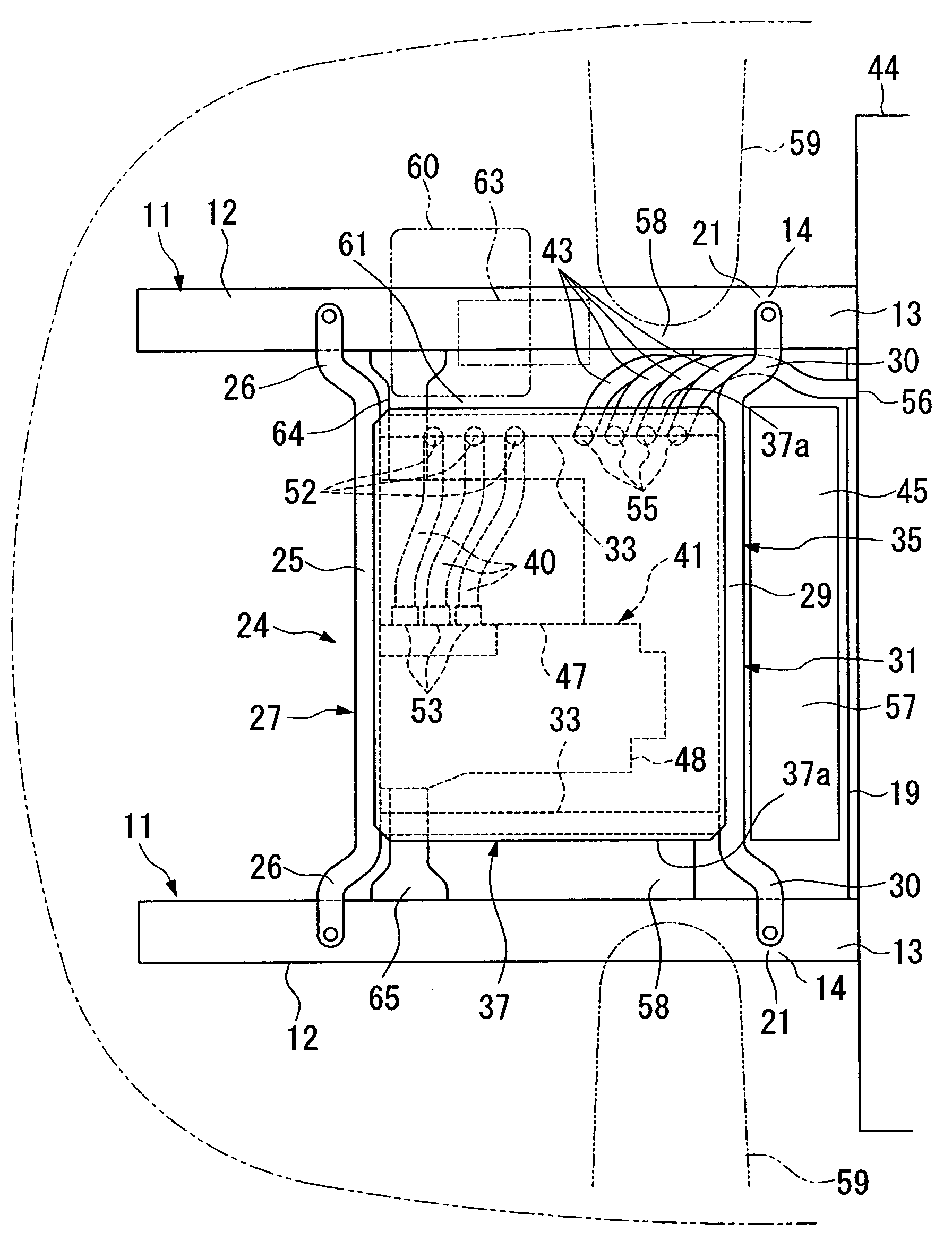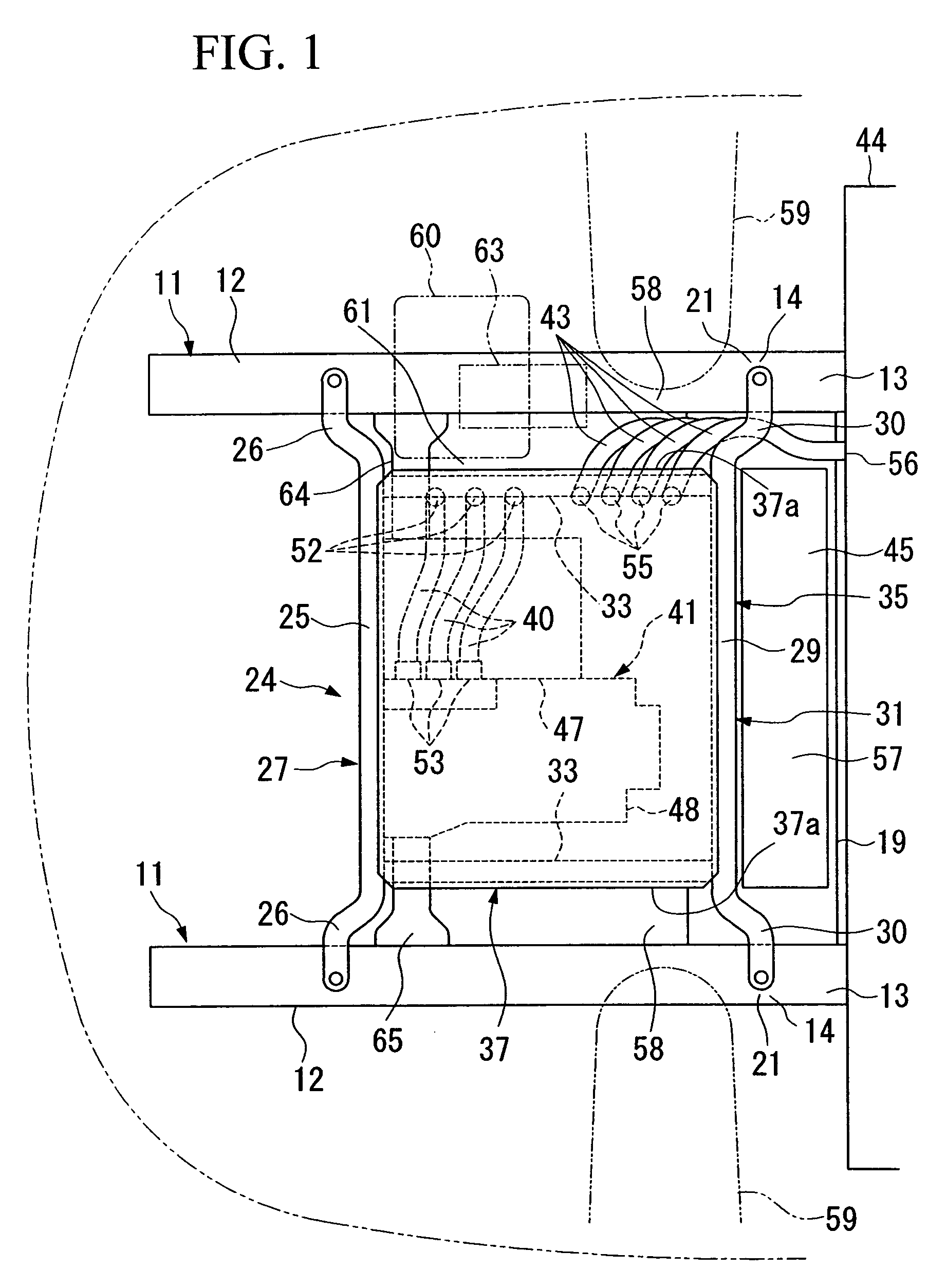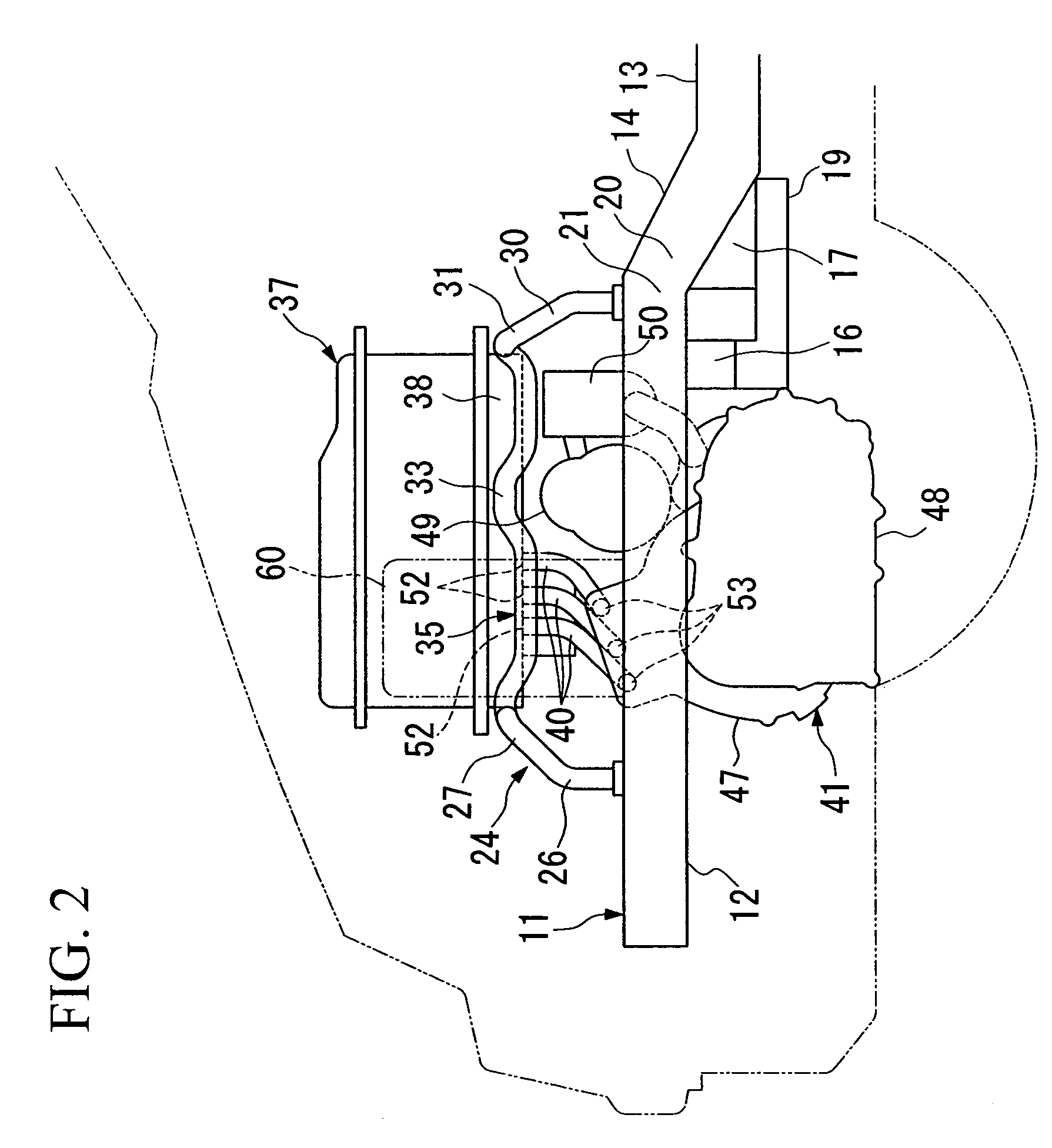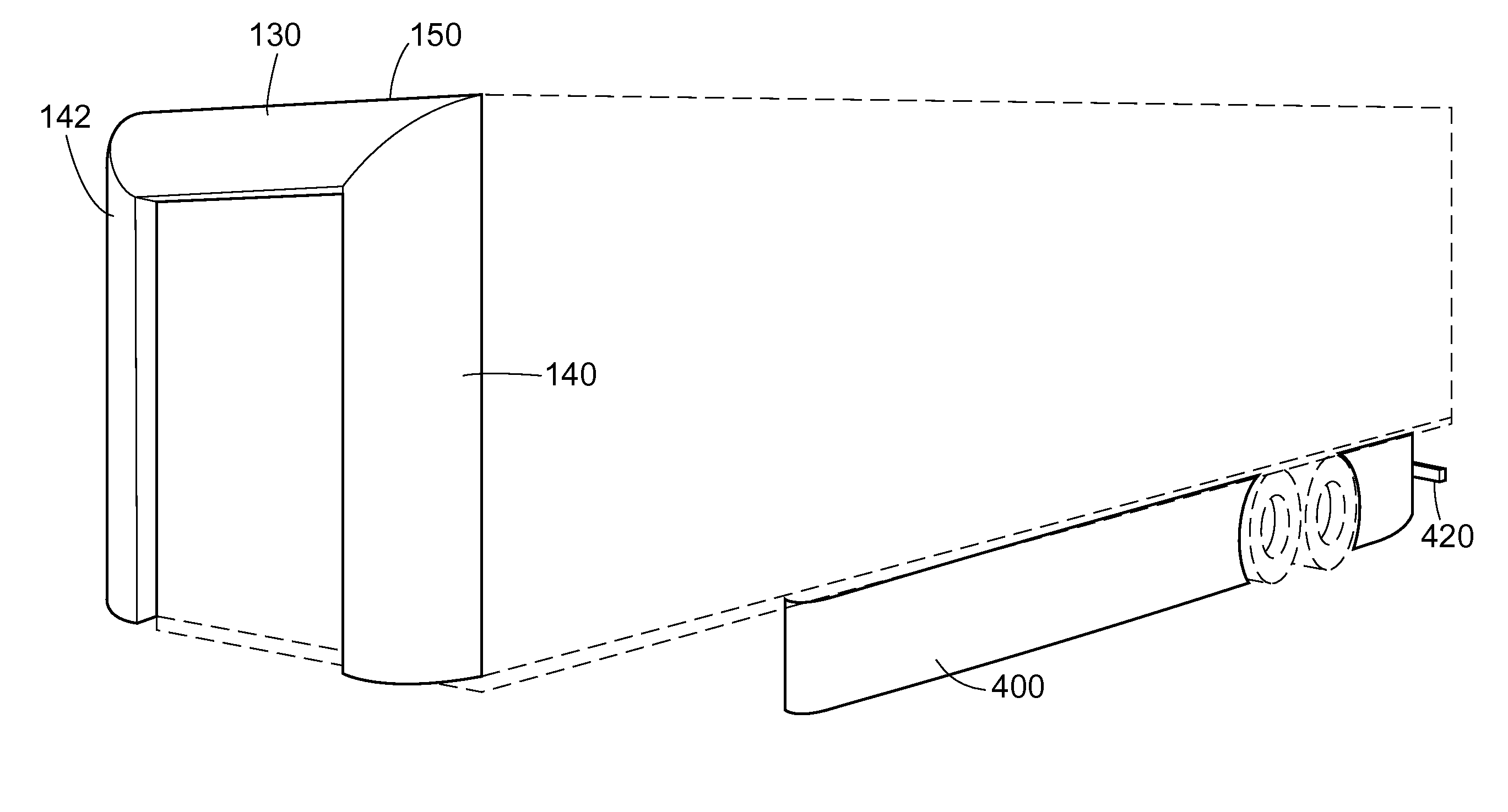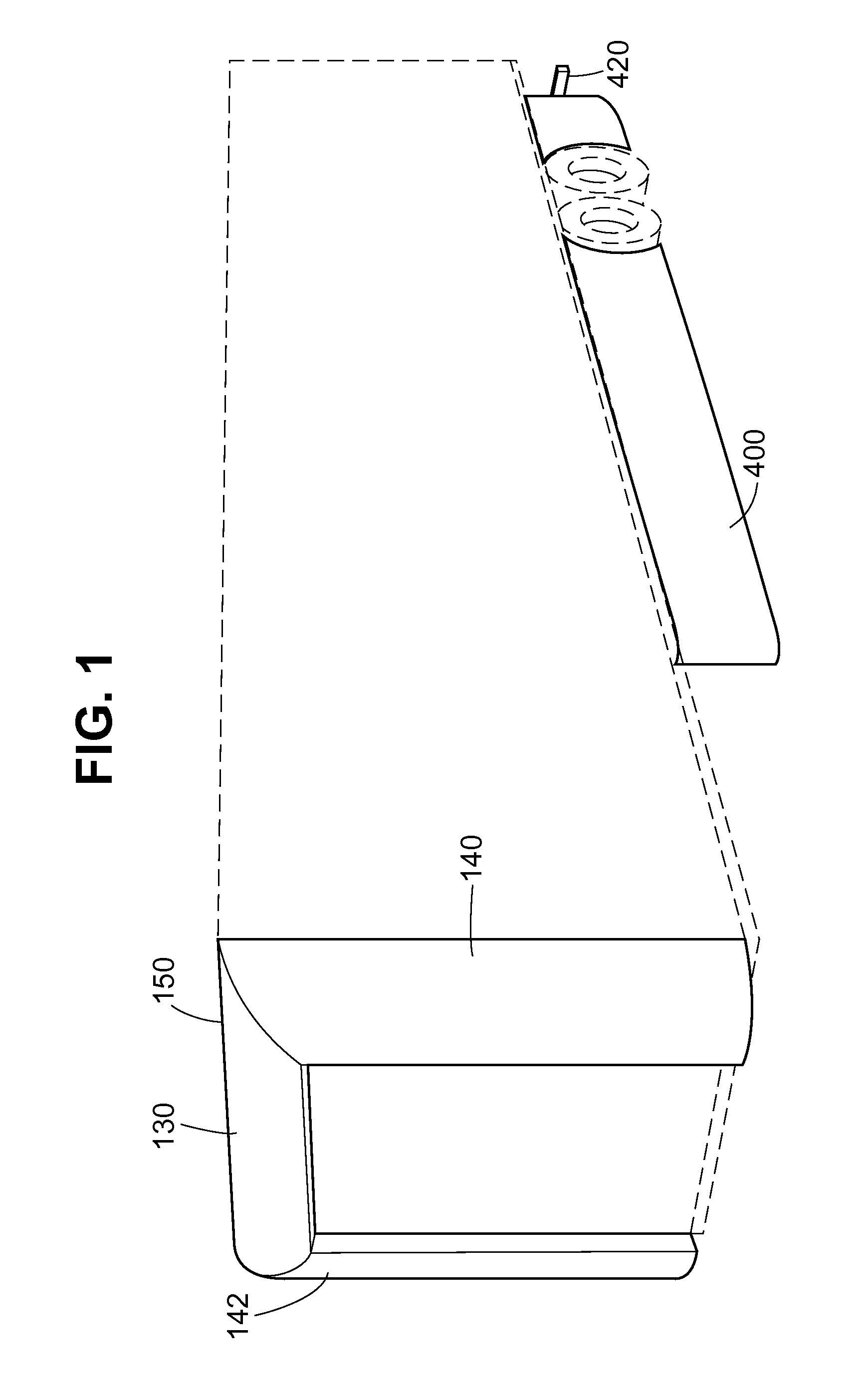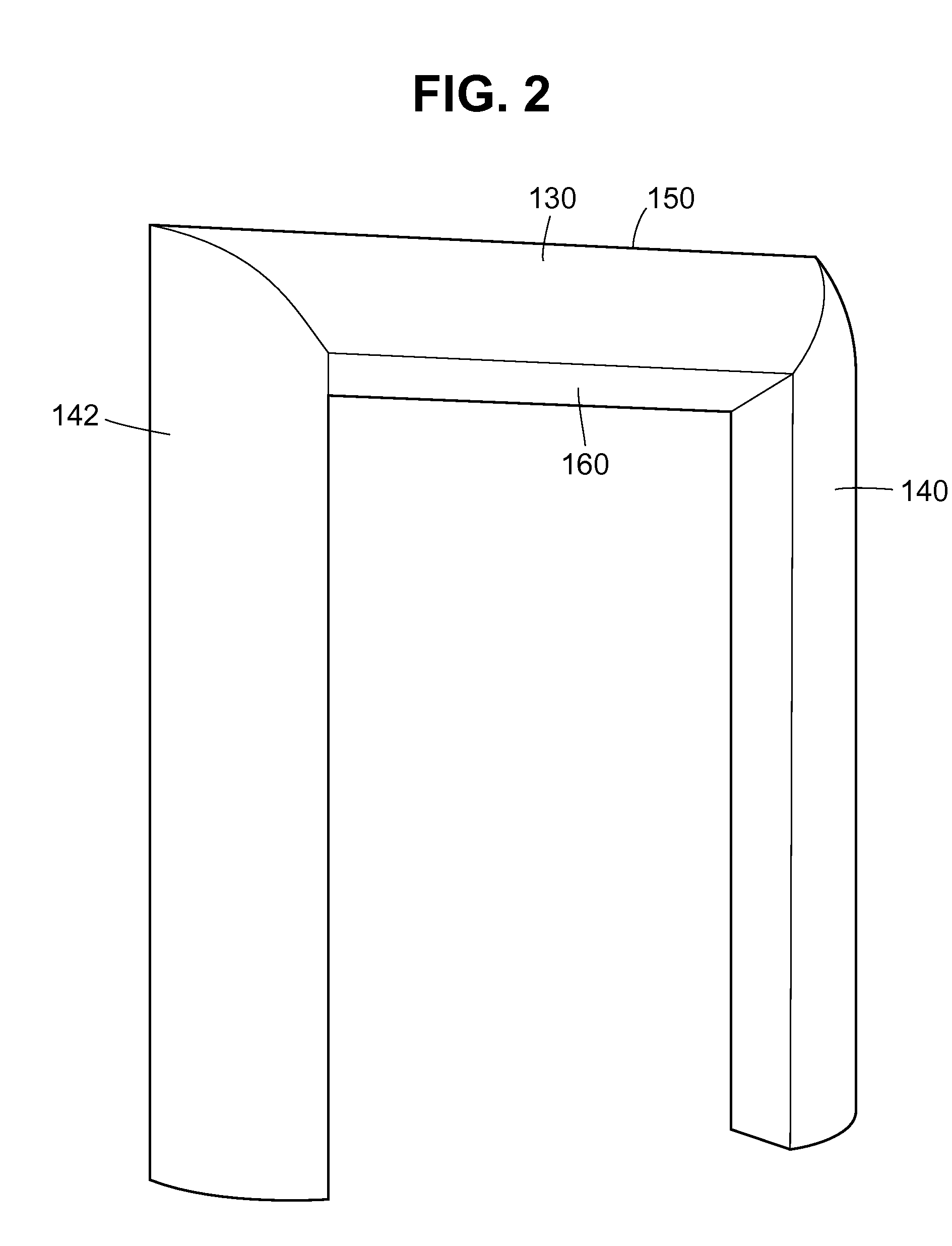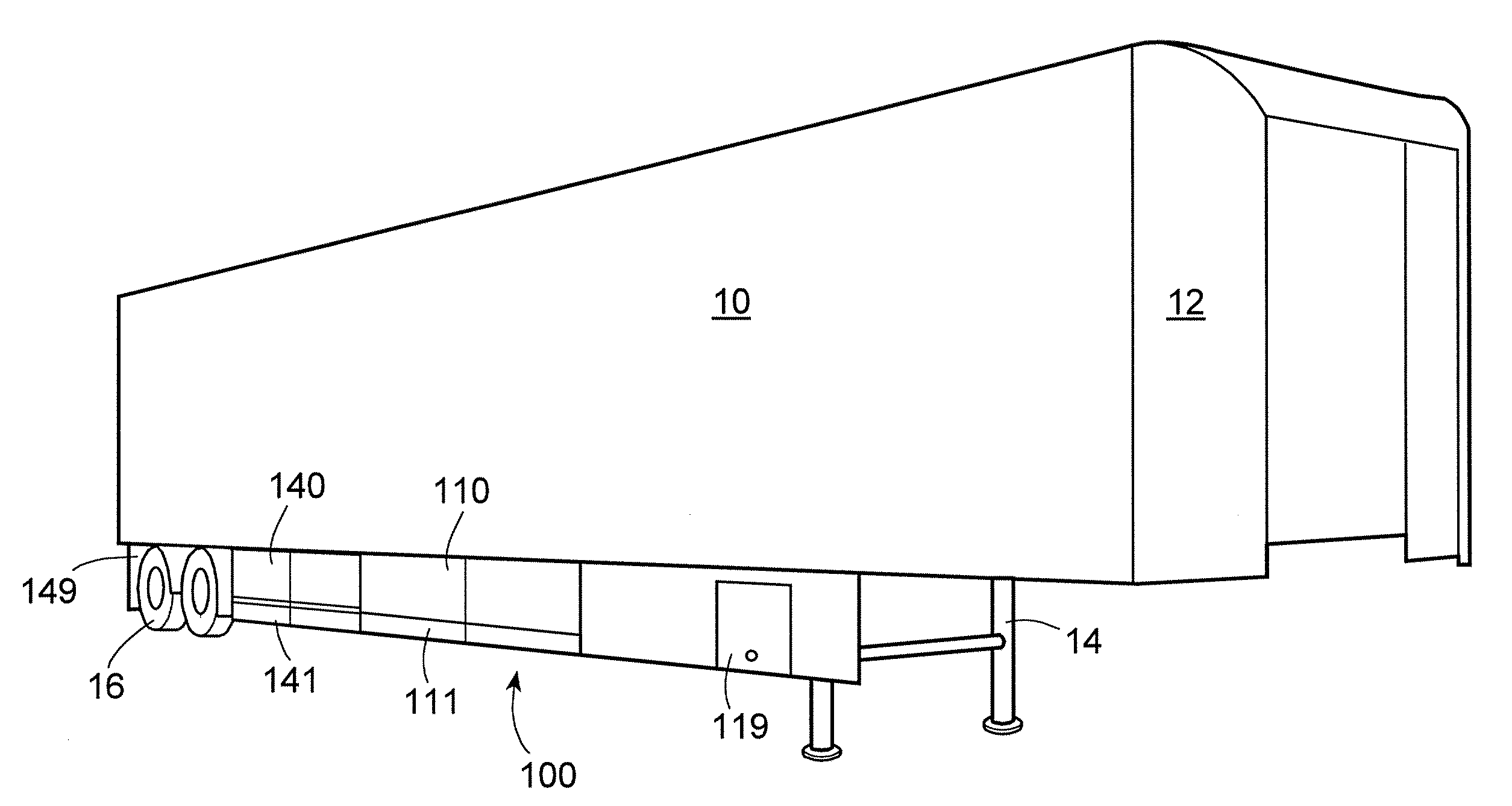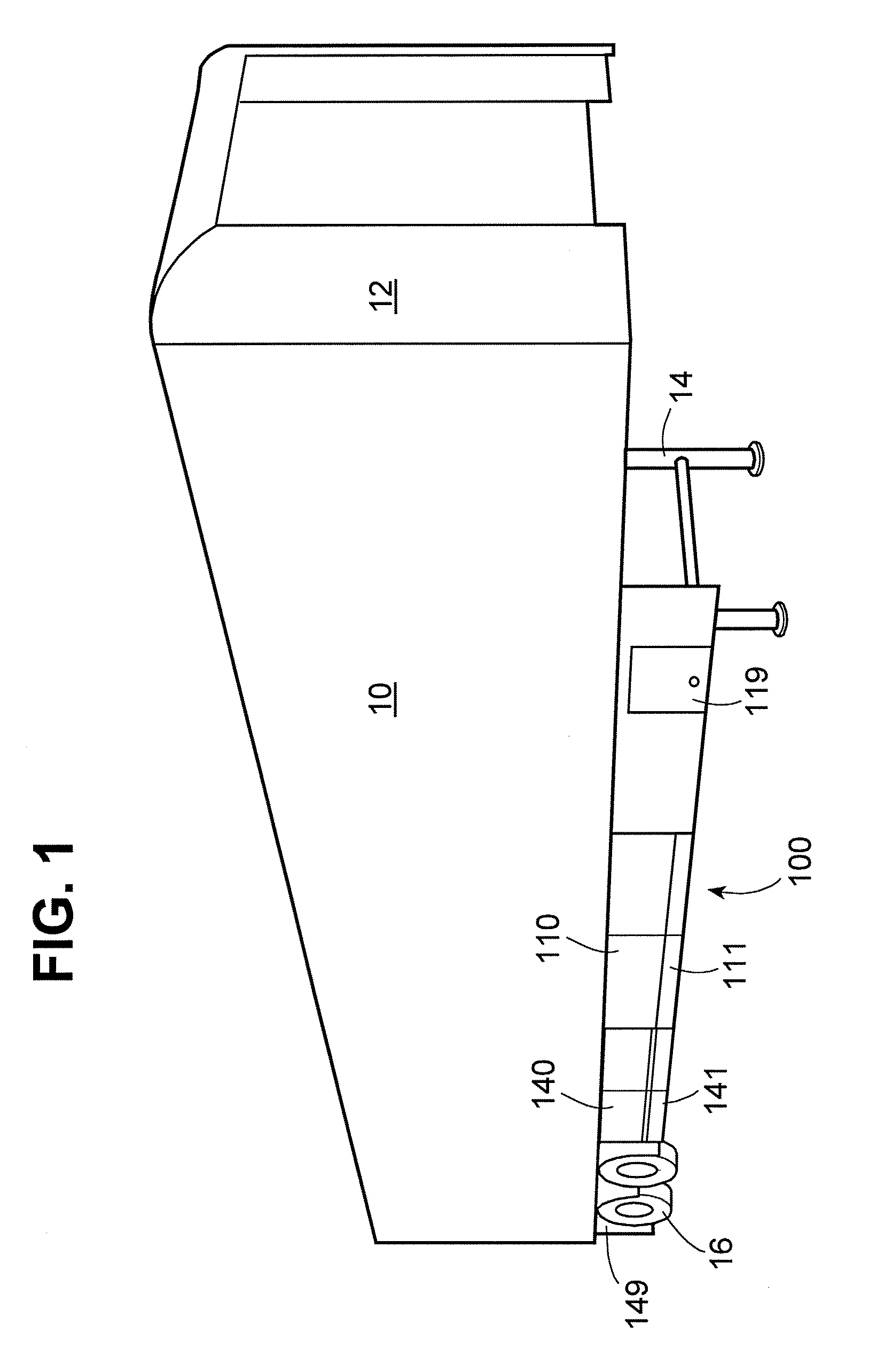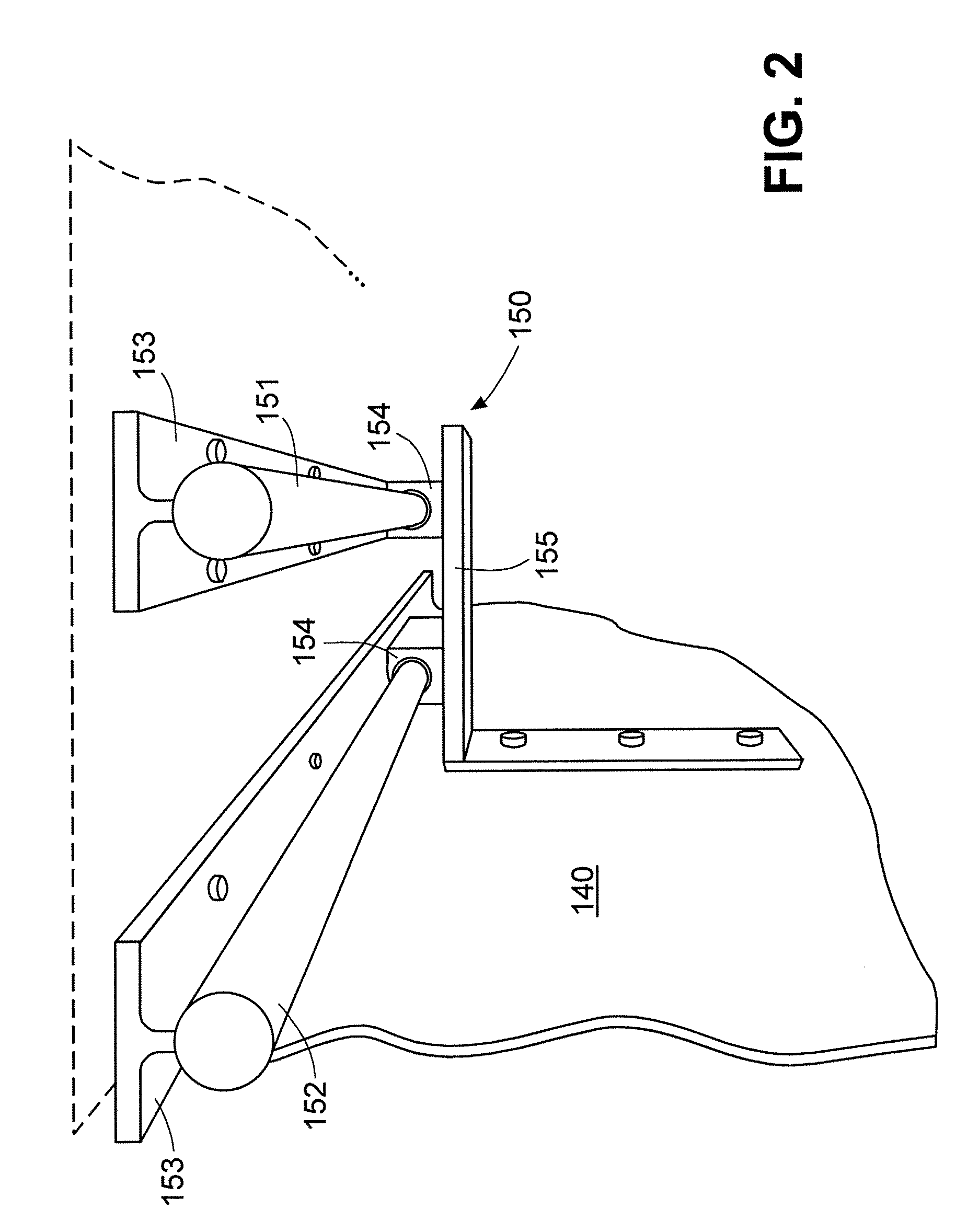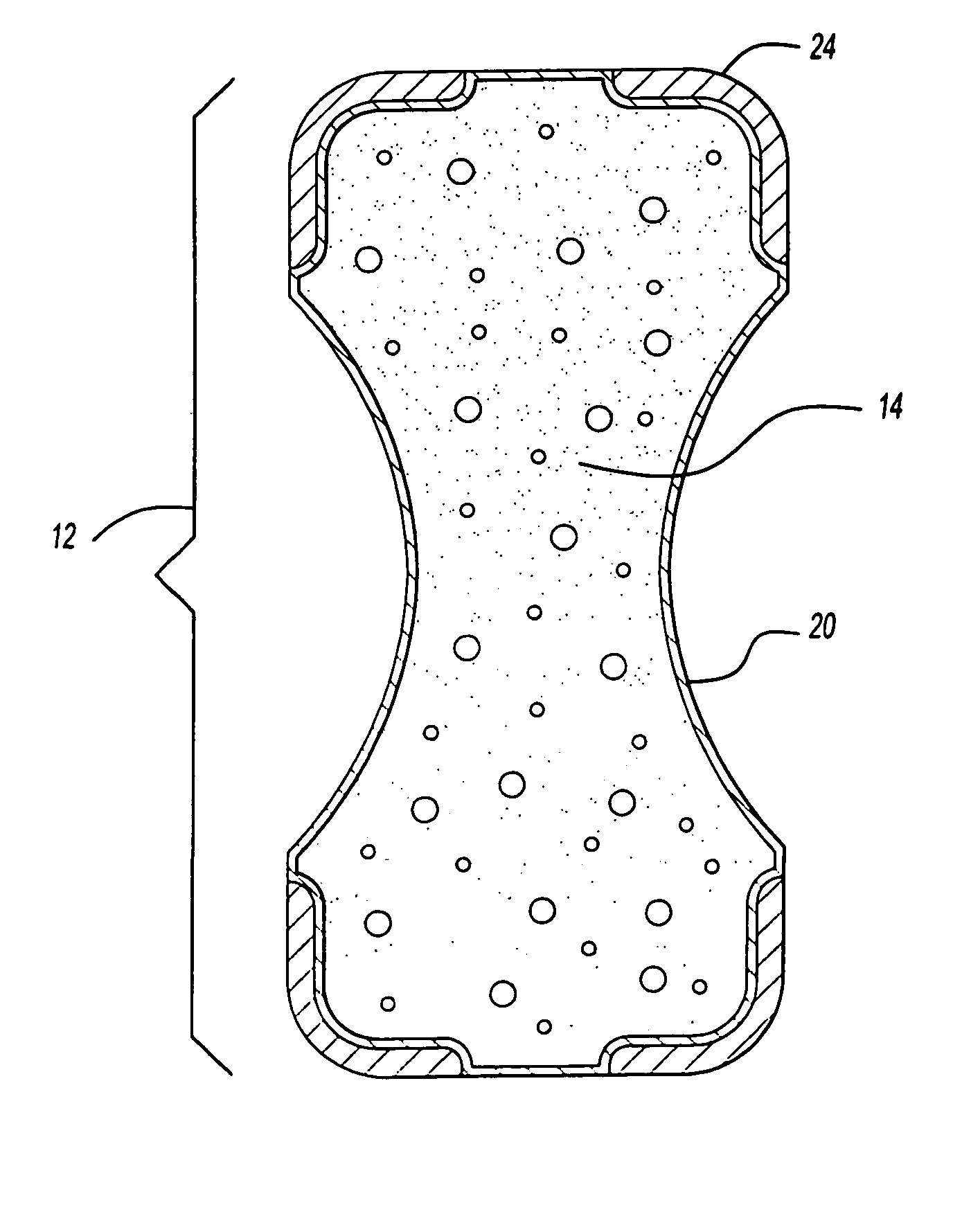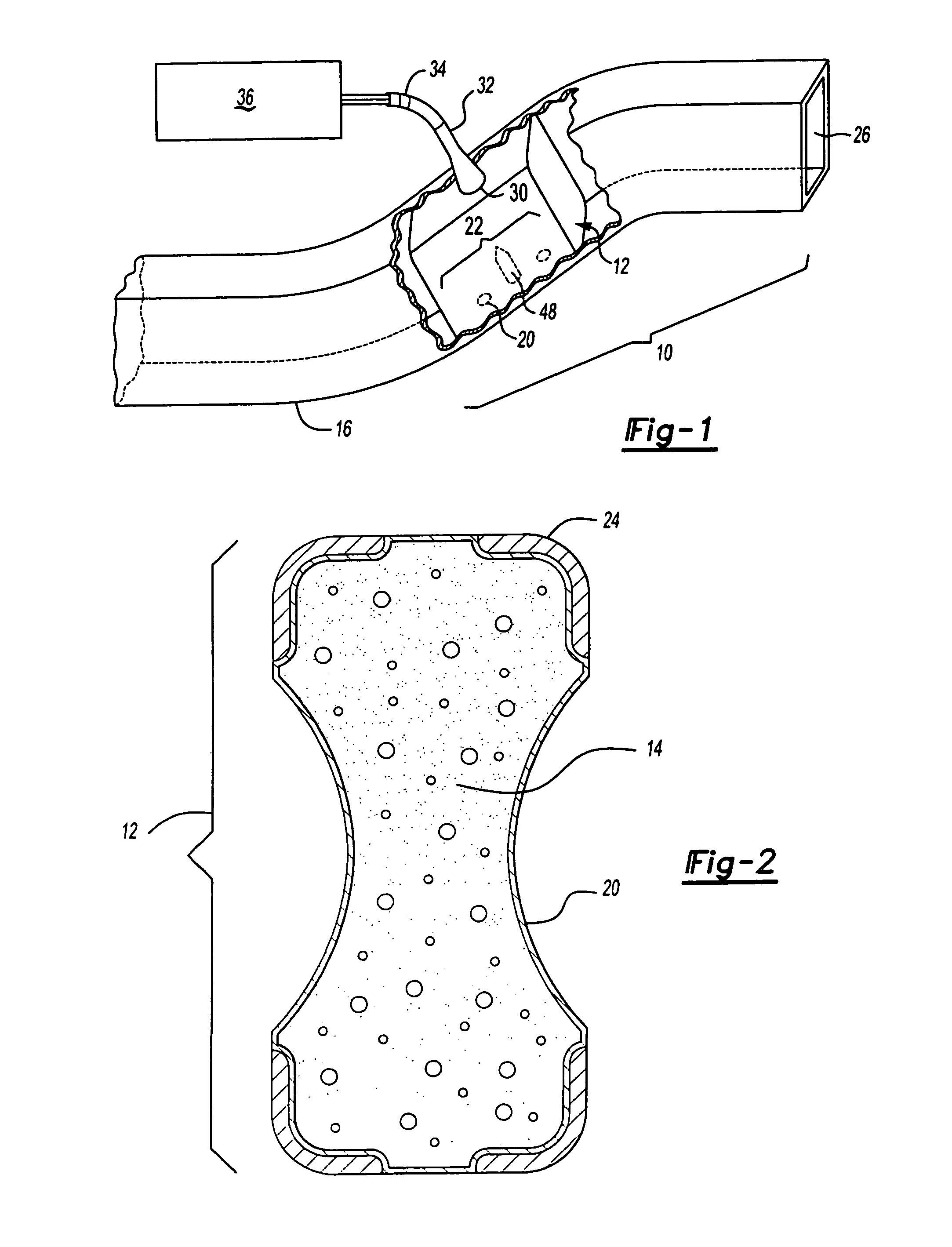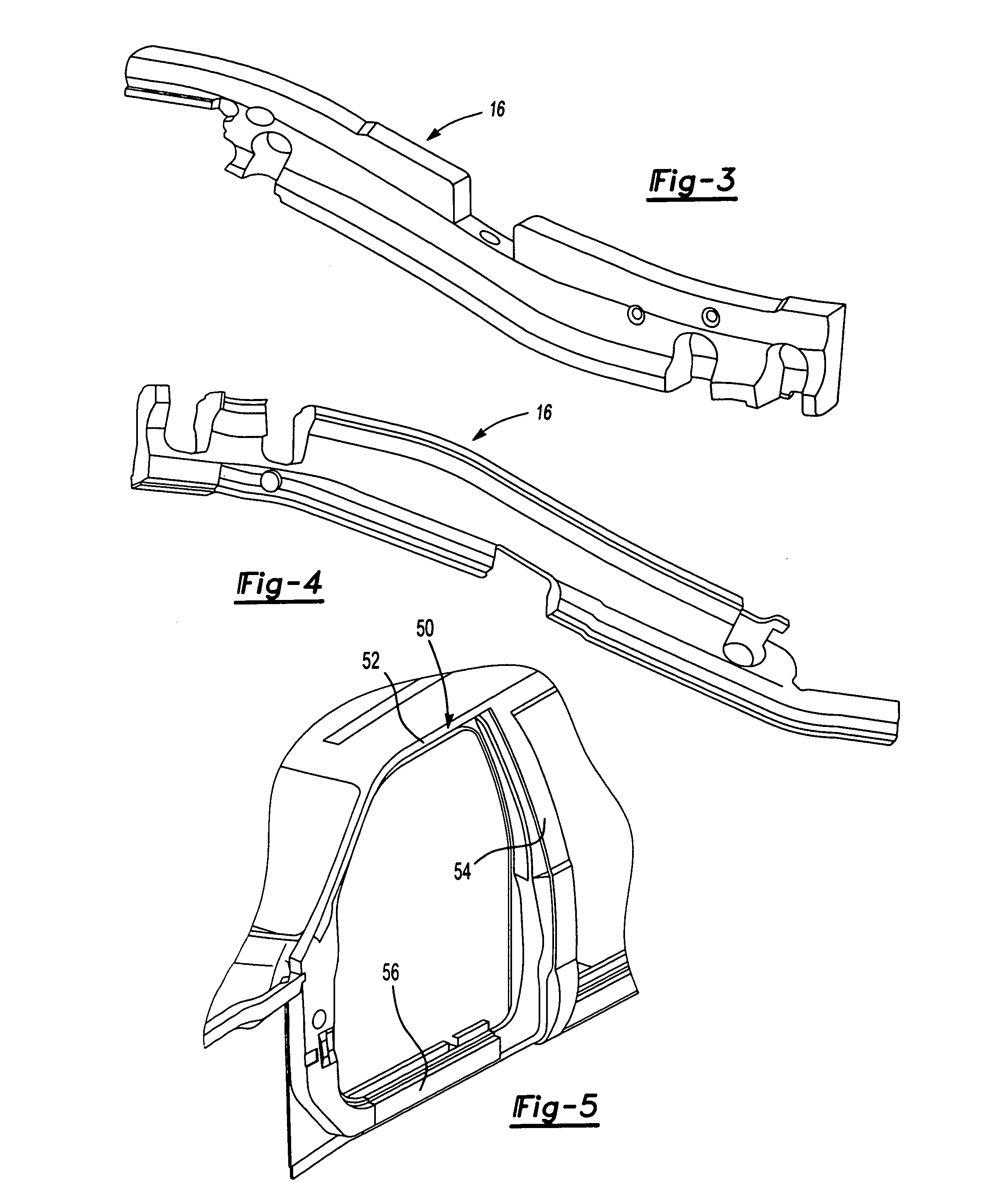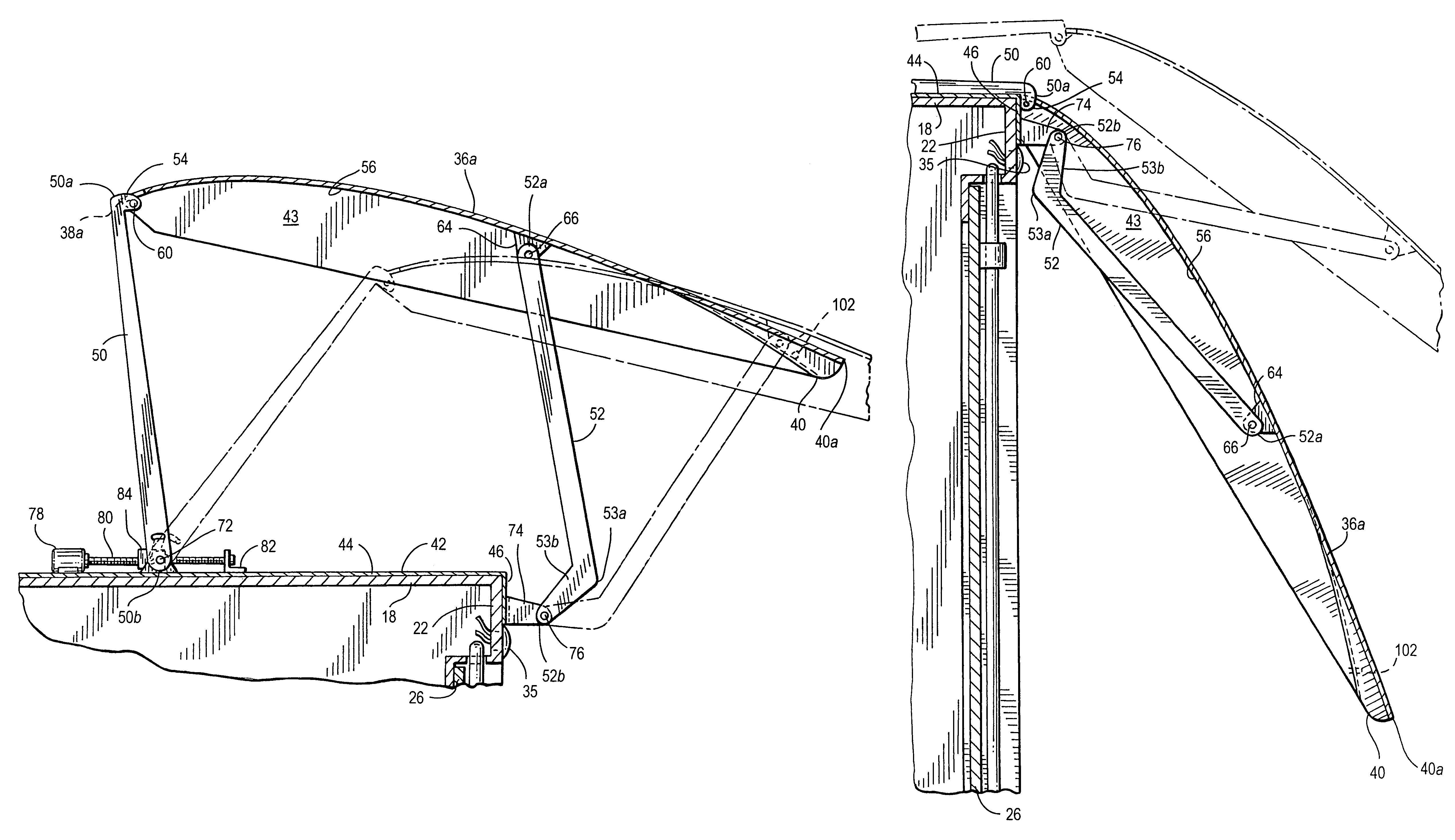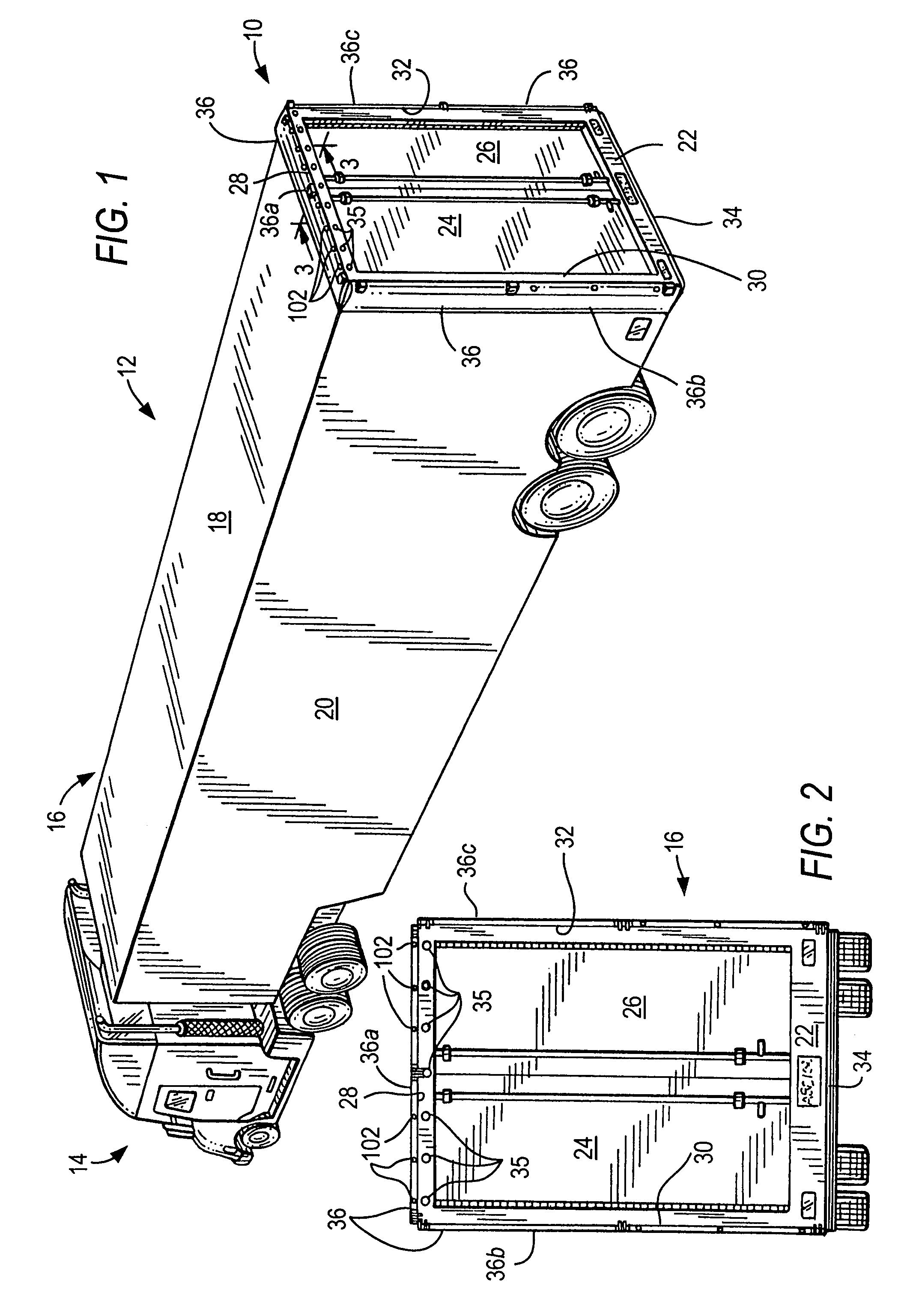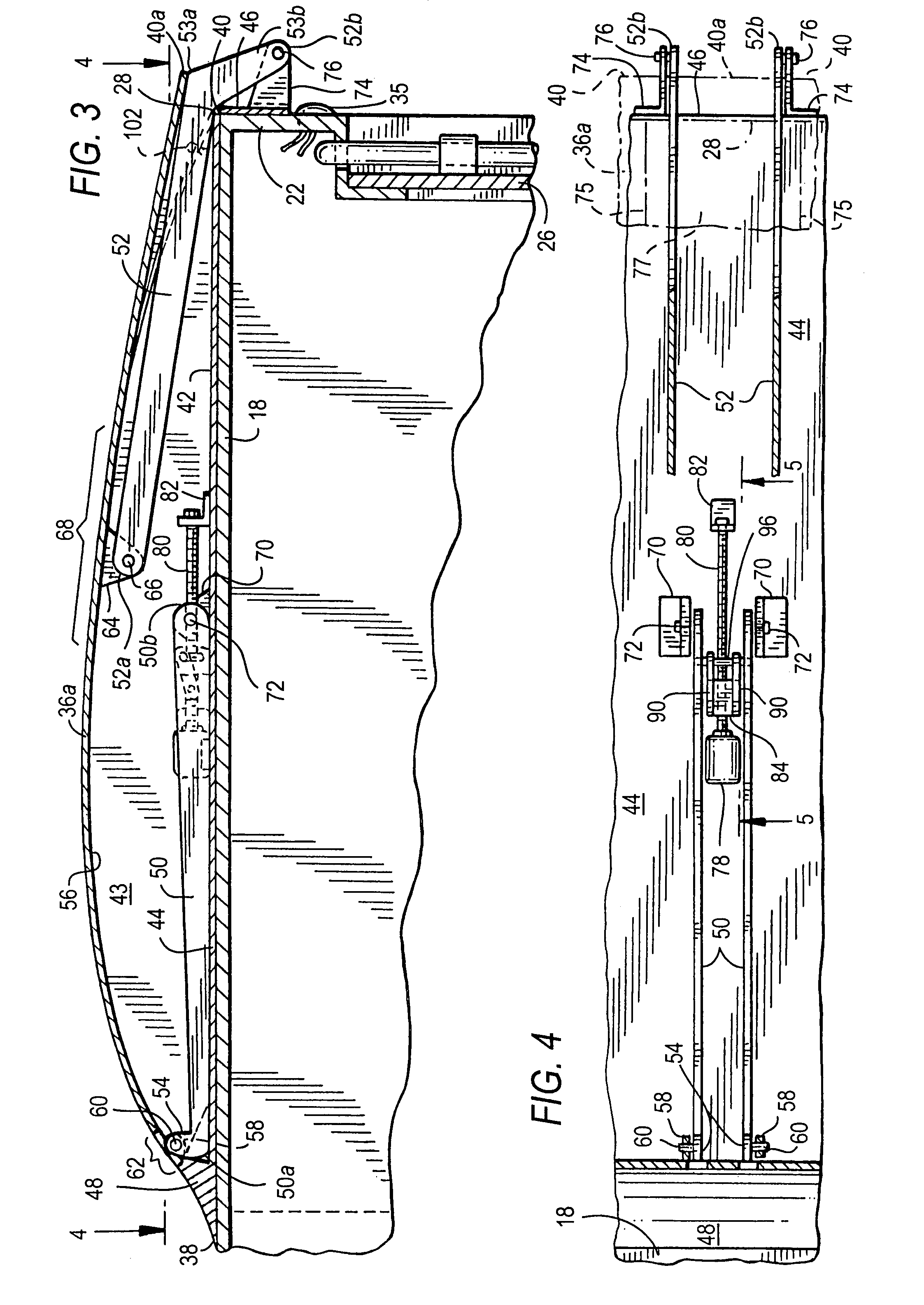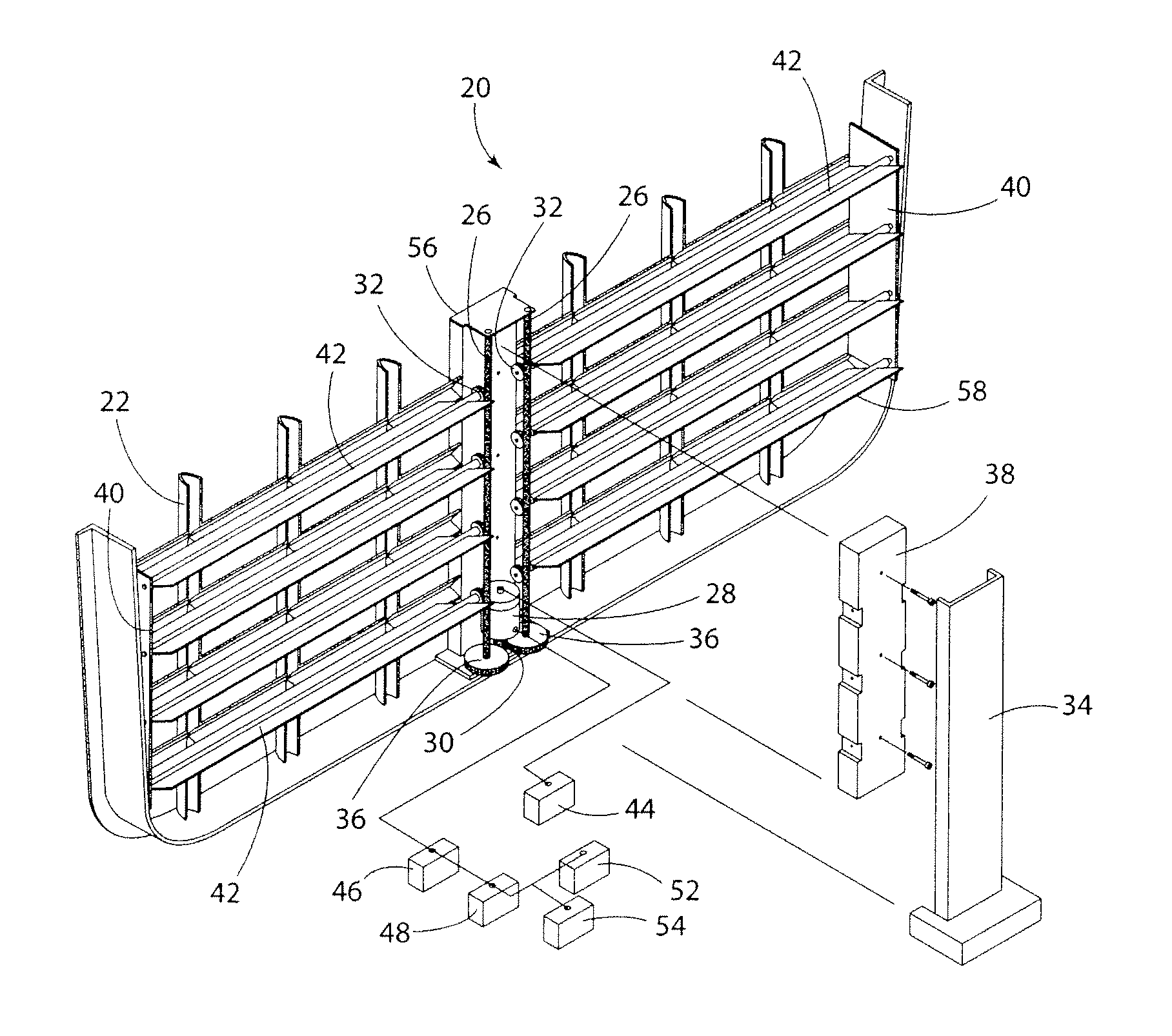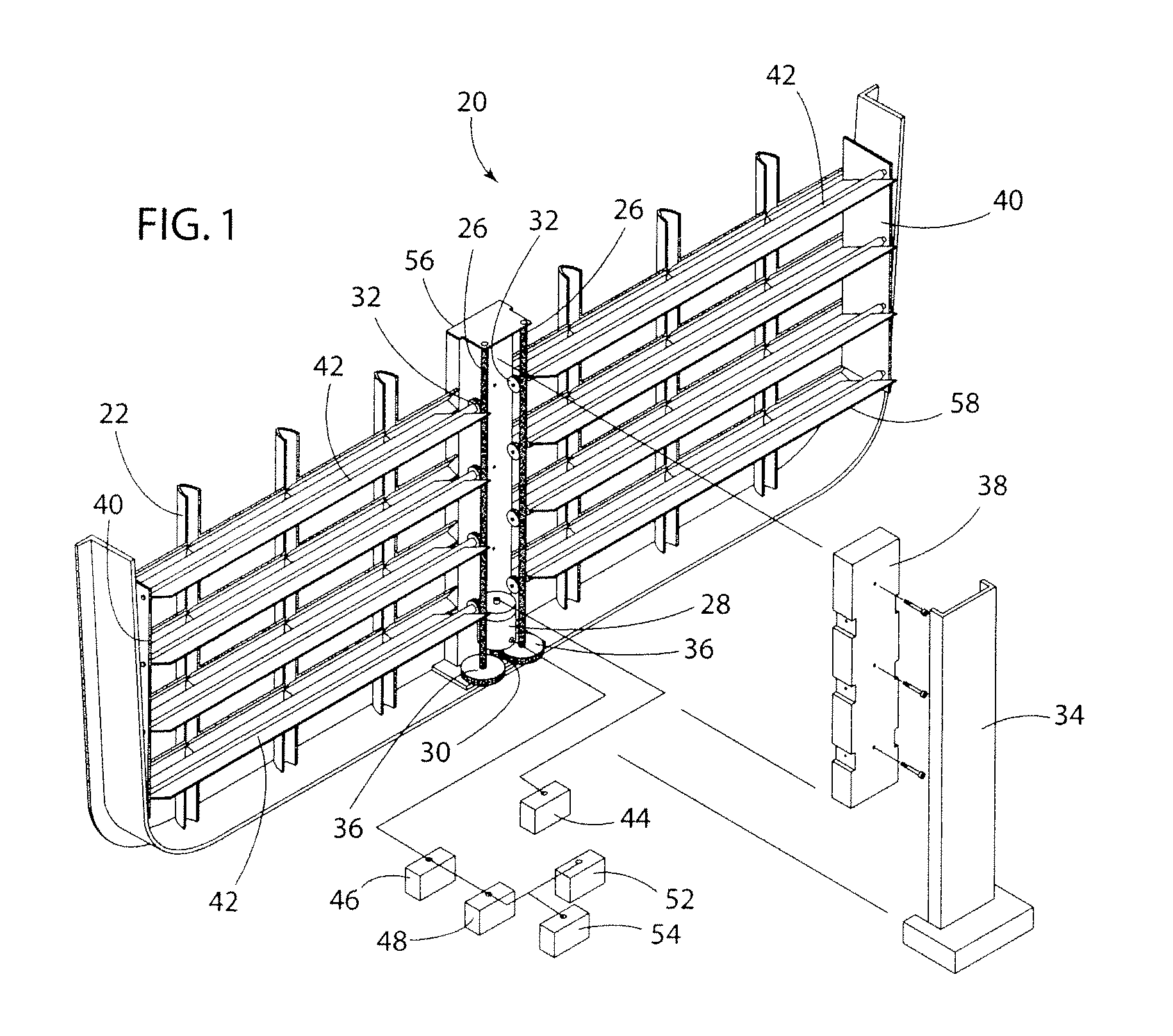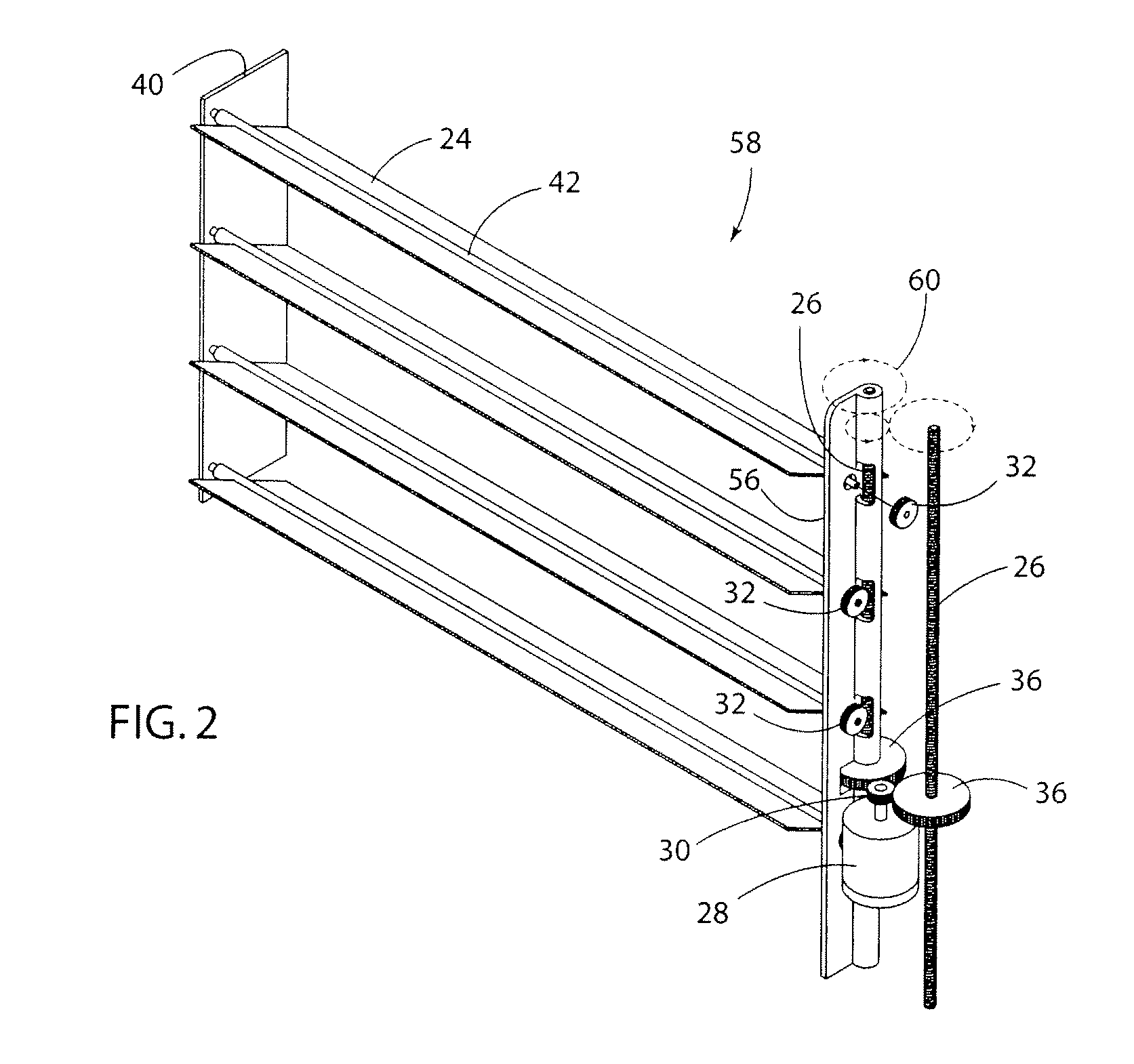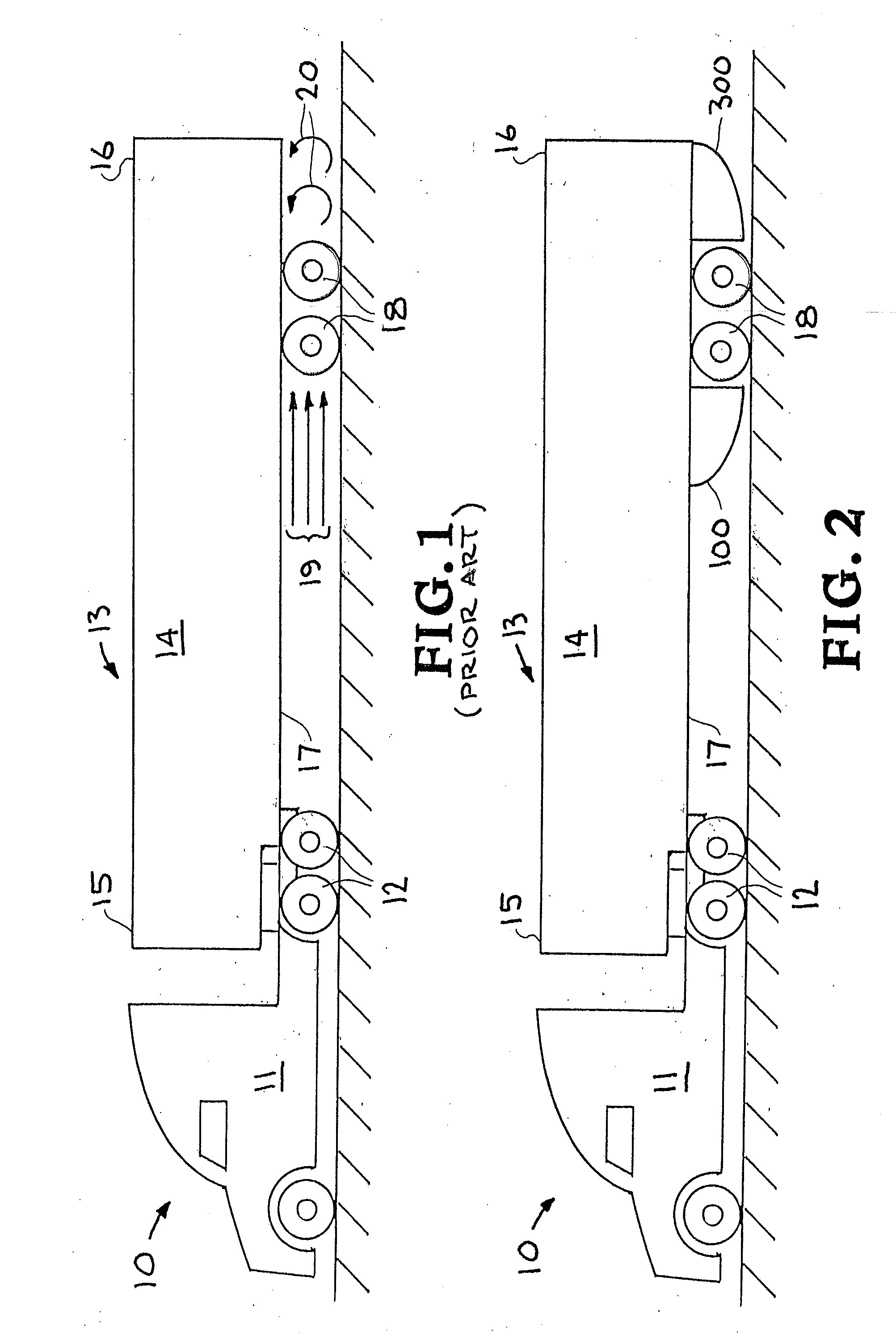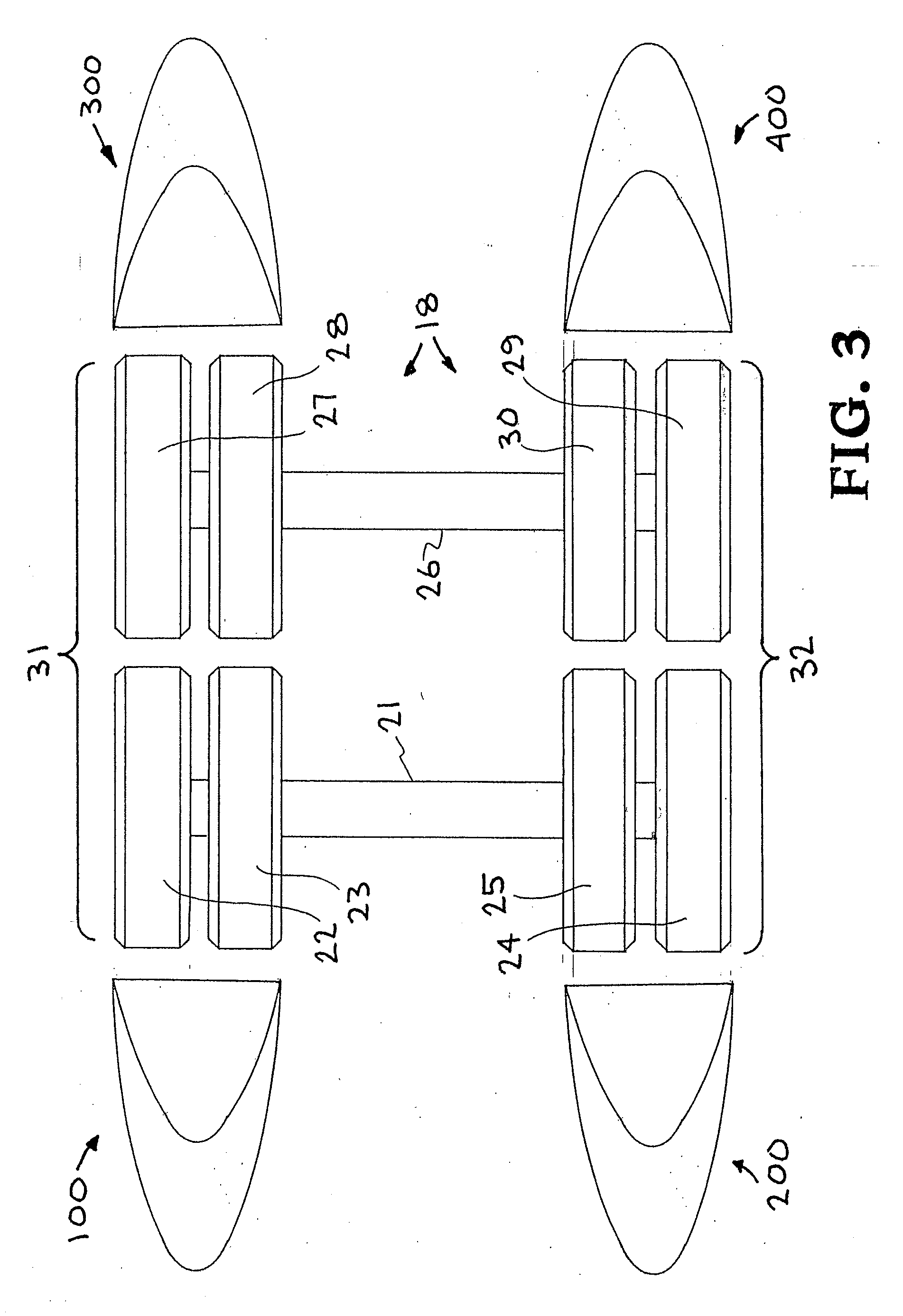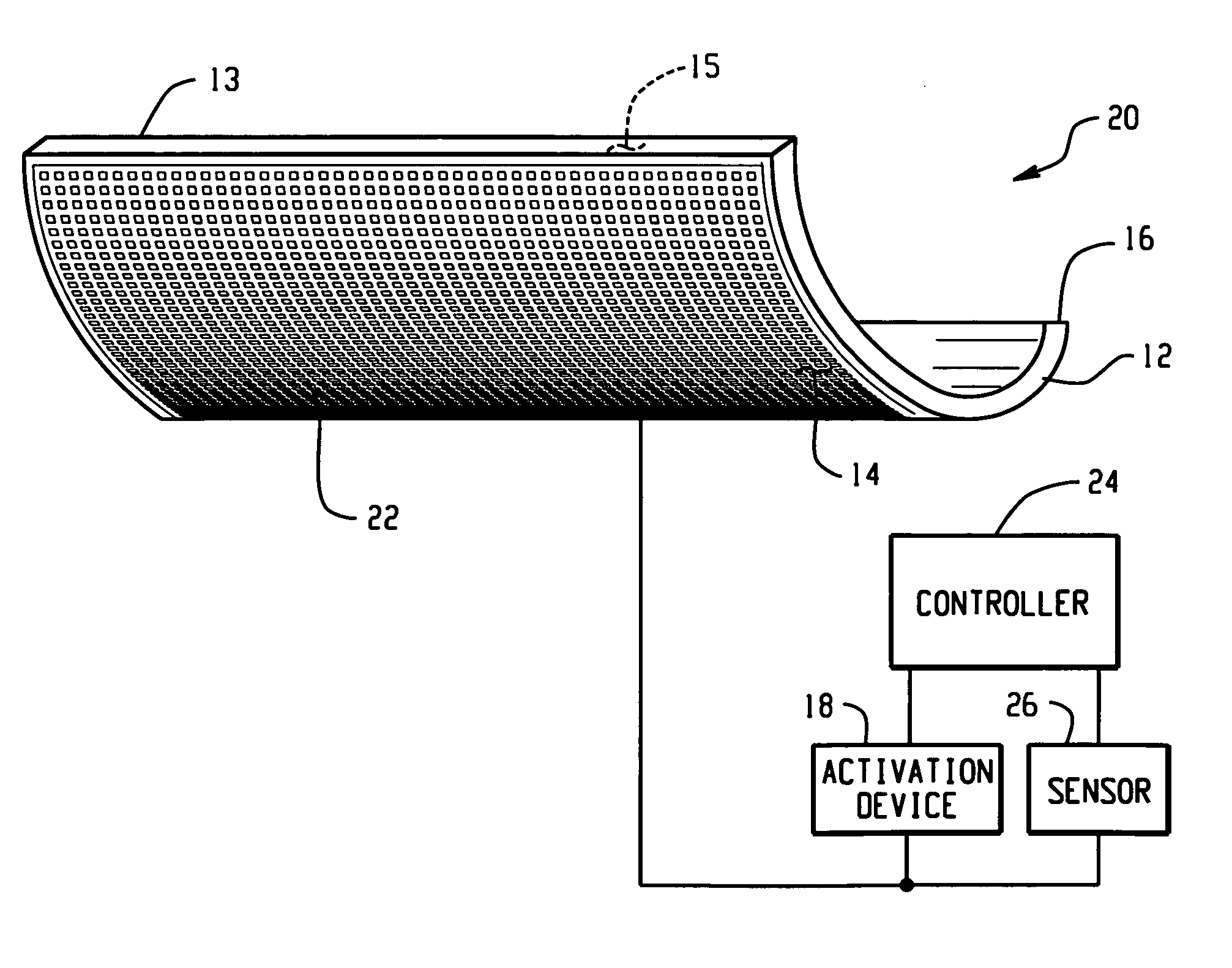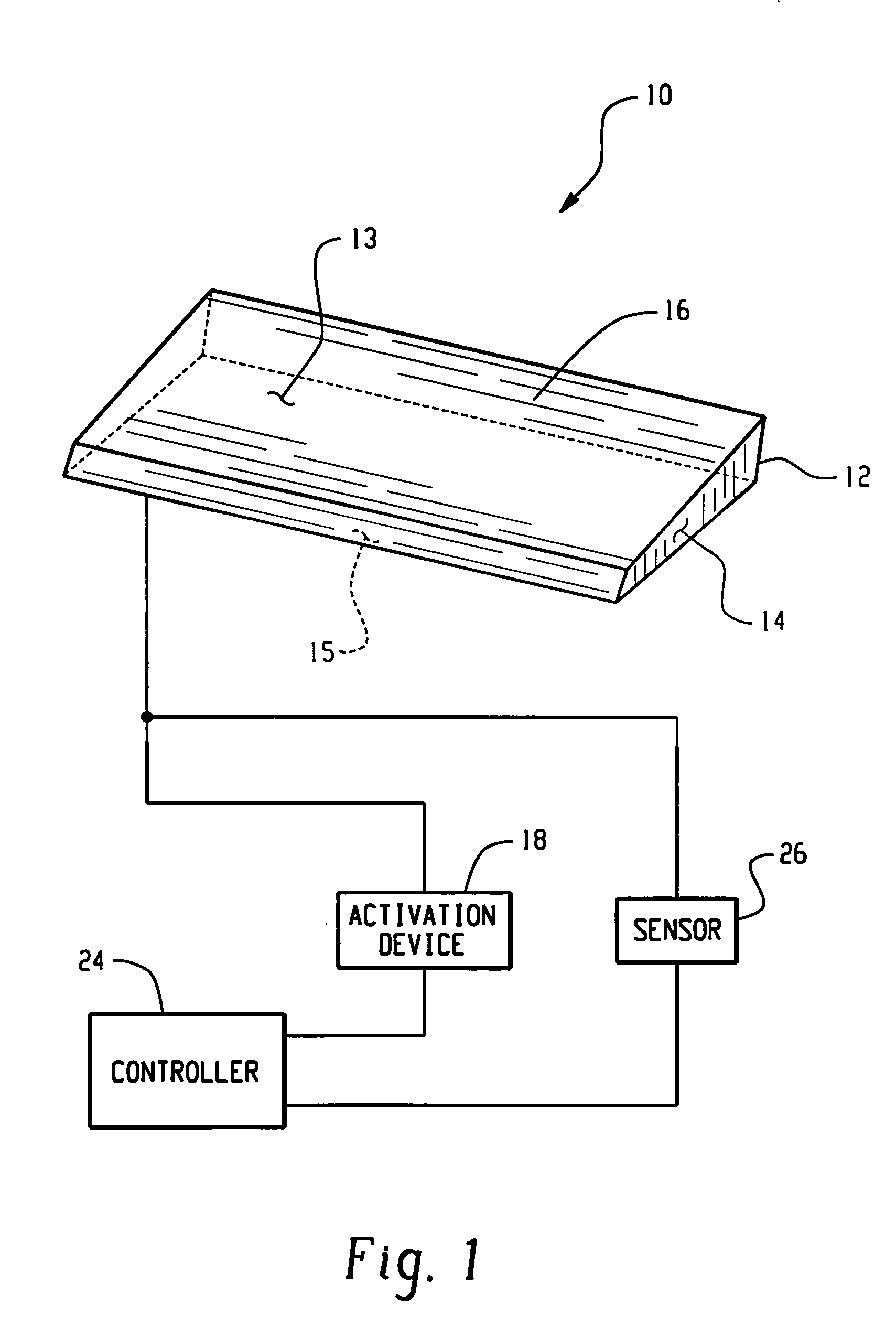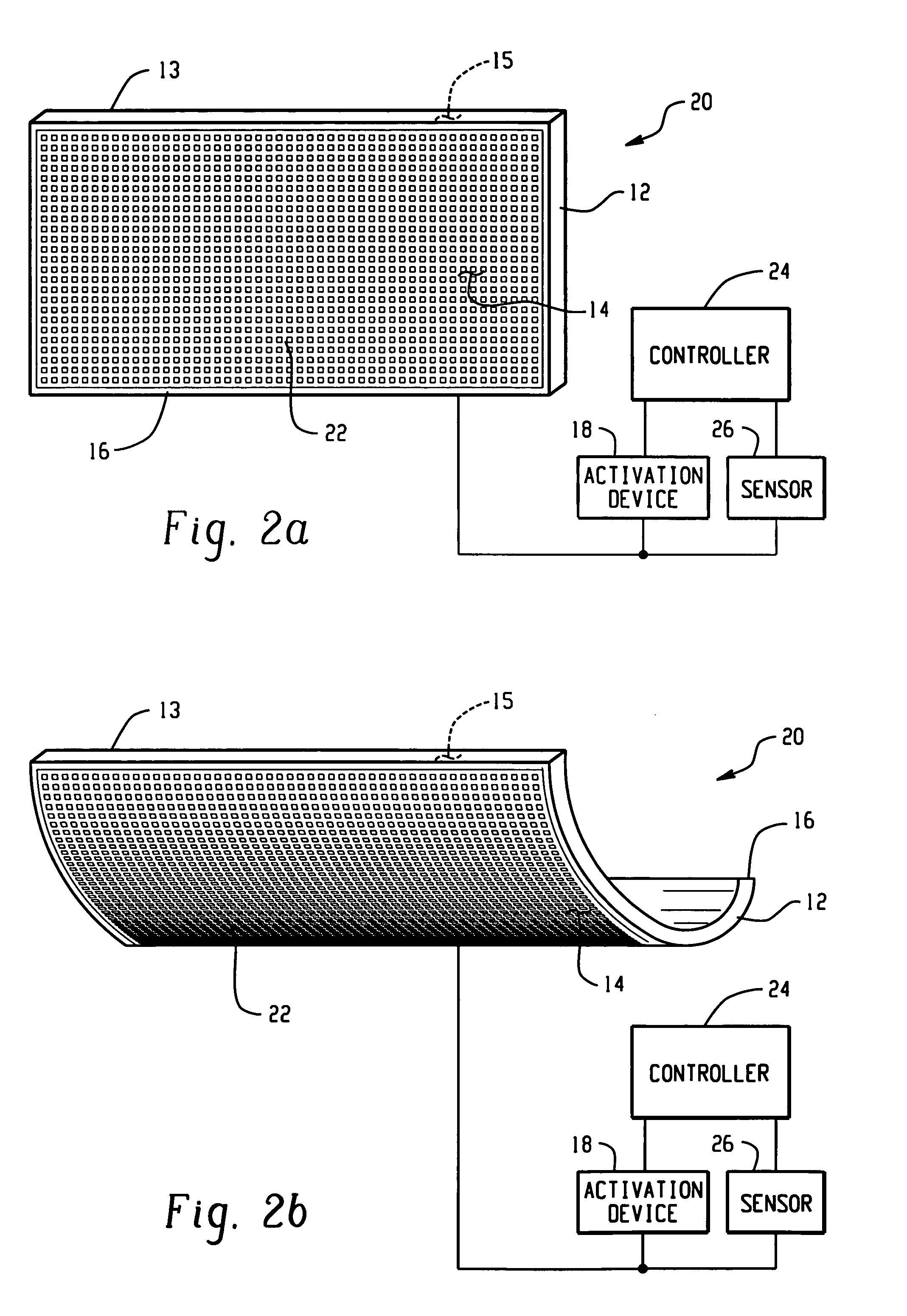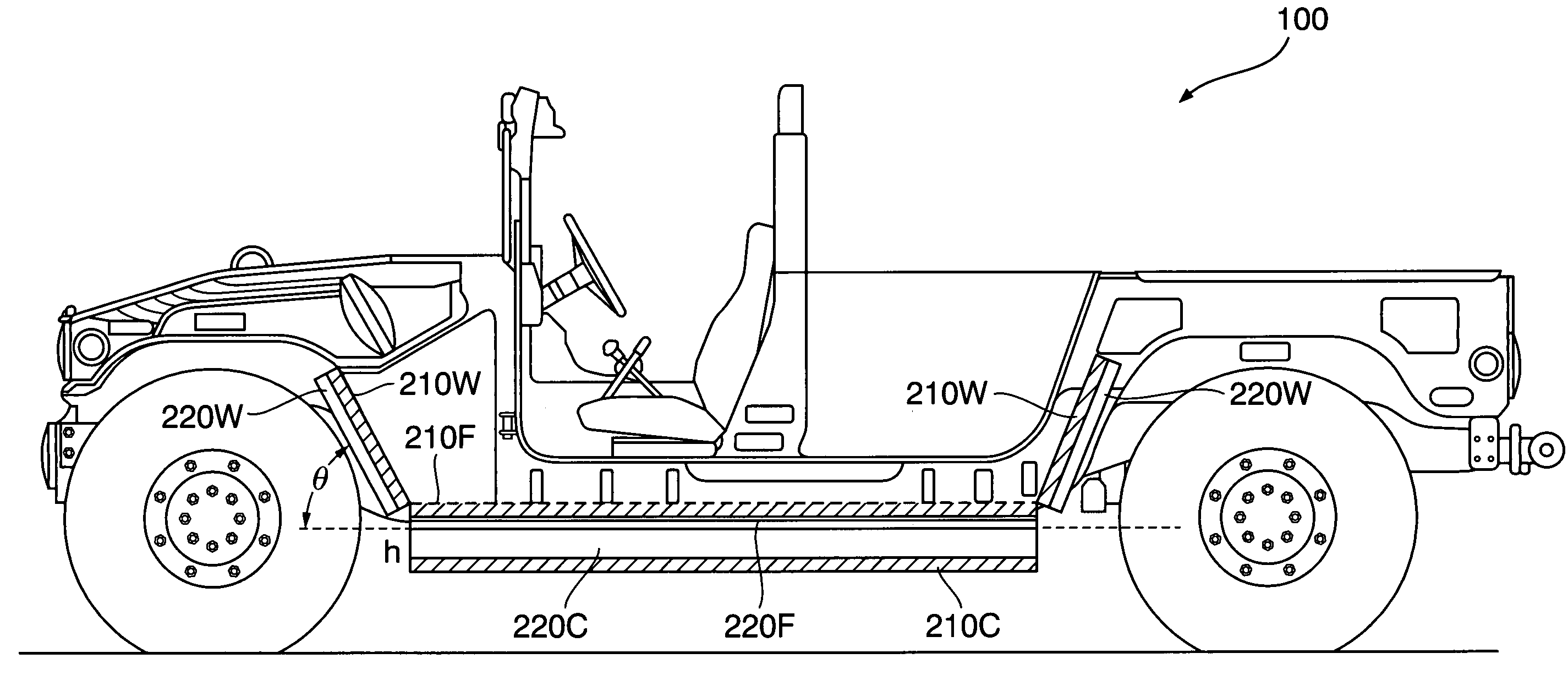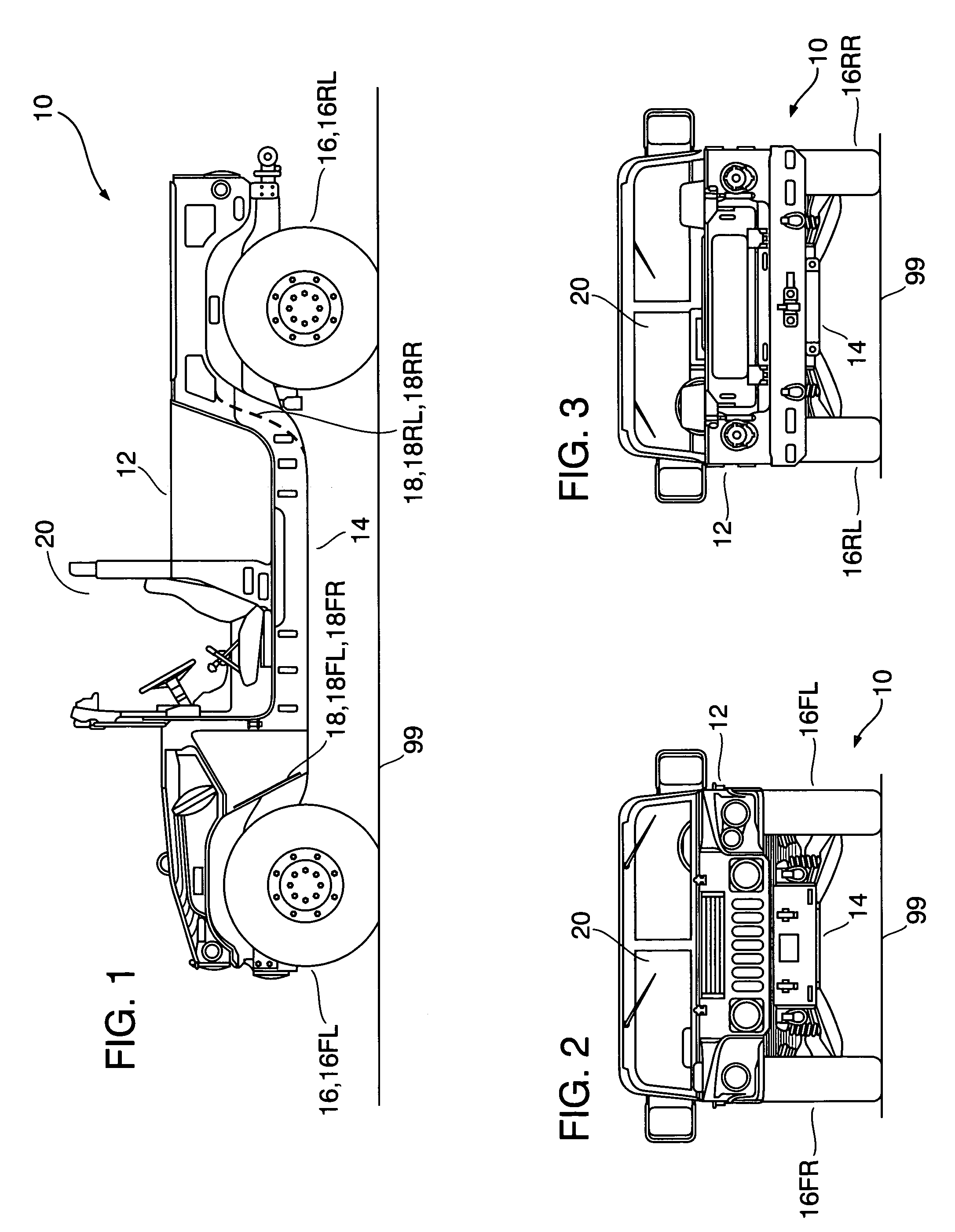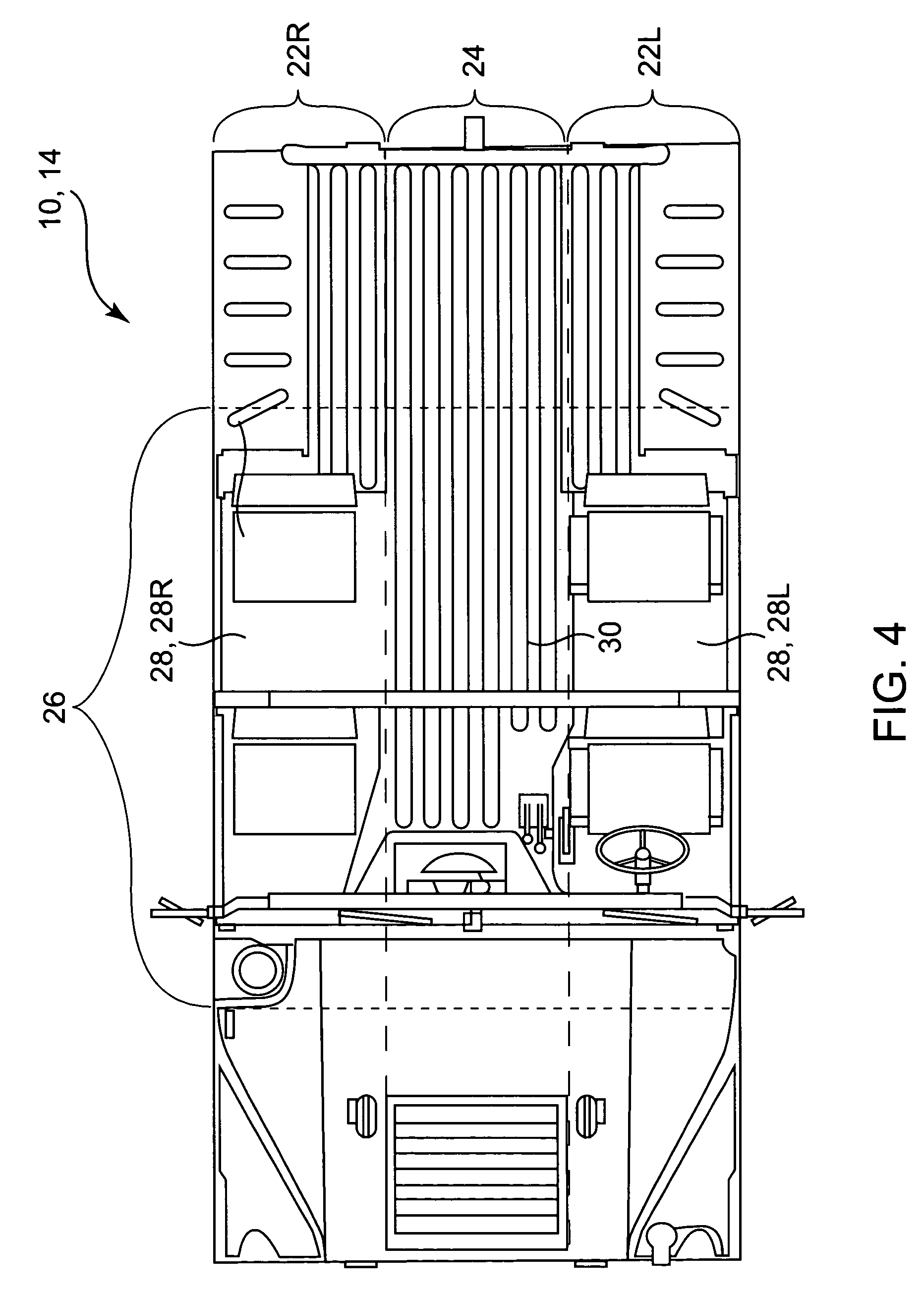Patents
Literature
Hiro is an intelligent assistant for R&D personnel, combined with Patent DNA, to facilitate innovative research.
5678results about "Dashboards" patented technology
Efficacy Topic
Property
Owner
Technical Advancement
Application Domain
Technology Topic
Technology Field Word
Patent Country/Region
Patent Type
Patent Status
Application Year
Inventor
Cellular phone holder with charger mounted to vehicle dashboard
In a vehicle, means of mounting a cell phone on the vehicle dashboard with minimal wiring and external connections, using manufacturer power connections made available on the dashboard. The mounting means is either an after market accessory addition to the vehicle or a option available at the time of purchase to render easy and convenient mounting of the cell phone without loose wires and providing proper positioning of a video camera built into the cell phone. The cell phone is positioned for viewing either through the windshield or backward onto the occupants enabling monitoring accidents between vehicles, the result of an accident on the occupants of the vehicle or for security monitoring of the trespassers within the vehicle. This is accomplished by mounting the camera at the dashboard. Another advantage is to improve the power output of the cell phone by positioning the antenna (part of the hand held cell phone device) near the windshield.
Owner:KIM KI IL
Air drag reducing apparatus
An air drag reducing apparatus for use with a vehicle having a rear end closed by a pair of doors consists of a rectangular shaped panel having a leading edge hingedly connected to the vehicle, the panel extending at about 16 degrees relative to the rearward projection of a side of the vehicle in a drag reducing position. As the door is opened, an element allows the panel to be moved between the door and the side of the vehicle to a position adjacent the side of the vehicle. As the door is moved back from the opened position to a closed position, the element causes the panel to return to its drag reducing position. The rear of a vehicle includes two side panels and two top panels.
Owner:TRANSTEX LLC
Air drag reducing apparatus
An air drag reducing apparatus for use with a vehicle having a rear end closed by a pair of doors consists of a rectangular shaped panel having a leading edge hingedly connected to the vehicle, the panel extending at about 15 degrees relative to the rearward projection of a side of the vehicle. An element positions the panel in a drag reducing position; this element is such that it allows the panel to be moved between the door and the side of the vehicle as the door is opened and moved to a position adjacent the side of the vehicle. As the door is moved back from the opened position to a closed position, the element causes the panel to return to its drag reducing position. The rear of a vehicle may include two side panels with or without two top panels.
Owner:TRANSTEX LLC
Device for reducing vehicle aerodynamic resistance
A device for a vehicle with a pair of swinging rear doors, which converts flat sheets of pliable material hinged to the sides of the vehicle adjacent the rear thereof into effective curved airfoils that reduce the aerodynamic resistance of the vehicle, when the doors are closed by hand, utilizing a plurality of stiffeners disposed generally parallel to the doors and affixed to the sheets and a plurality of collapsible tension bearings struts attached to each stiffener and the adjacent door.
Owner:FREIGHT WING
Structural reinforcement system having modular segmented characteristics
InactiveUS6890021B2Reduce vibrationReduce noiseVehicle seatsPedestrian/occupant safety arrangementMobile vehicleEpoxy
A modular segmented structural reinforcement system for use with closed forms or cavities defined with automotive vehicles having a plurality of modular segments designed to be secured within a defined portion of an automotive vehicle applications. An expandable or bonding material, such as an epoxy-based reinforcing foam or other sound absorption, damping, vibration reduction, or sealing material is disposed on at least a portion of the outer surface of each of the plurality of segments. Once the system is flexible fitted within the closed form or placed within a selected cavity of an automotive vehicle, the material expands and cures during an automobile assembly operation, bonding the reinforcement system to the segments. As a result, the reinforcement system provides enhanced load distribution over the vehicle frame without adding excessive weight and further serves to reduce noise and vibrational characteristics of the automotive vehicle.
Owner:ZEPHYROS INC
Dynamic self-adjusting assembly for sealing, baffling or structural reinforcement
There is disclosed a reinforced structural assembly and a method of using the assembly for sealing, baffling and / or reinforcing components of an automotive vehicle. The assembly generally includes at least a first mass of expandable material. Preferably, the first mass is movably (e.g., rotatably) connected to a second mass of material and / or another member. According to the method, the assembly is placed in a cavity of an automotive vehicle and the at least one mass is activated to expand. Preferably, upon activation, the first mass self adjusts by moving (e.g., rotating) relative to the second mass and / or the other member.
Owner:ZEPHYROS INC
Structural reinforcement
InactiveUS6941719B2Reduced strengthSatisfies requirementVehicle seatsStructural elementsAdhesive materialsBiomedical engineering
A structural reinforcement for a hollow member comprising a rigid reinforcing member having a shape that substantially conforms to the cross section of the hollow member to be reinforced with an expandable adhesive material over at least a portion of the surface of the structural reinforcement having one or more extensions on its external surface which control and direct the direction in which the adhesive material expands to bond the reinforcing member to the internal surface of the hollow member, some of the extensions also provide improved reinforcement.
Owner:ZEPHYROS INC
Integrated energy absorber and air flow management structure
An integrated assembly includes a bumper energy absorber section with crush lobes for abutting a bumper beam, an upper air shutter section with subassembled shutter members movable between closed and open positions, a first actuator mechanism for moving the shutter members between positions, an upper fascia support section with upper leg crush lobe therein above the upper air shutter section, a lower air shutter section with subassembled lower shutter members movable between closed and open positions, a second actuator mechanism for moving the lower shutter members between the positions; and a lower leg energy absorber section attached below the lower air shutter section and configured to abut (or replace) a face of a secondary pedestrian impact bar. The shutter members may be molded to a shutter frame using over molding technology rather than separately, manually assembled.
Owner:SHAPE CORP
Trailer skirt panel
ActiveUS7578541B2Reducing aerodynamic drag on road vehiclesIncrease air flowVehicle seatsWindowsAerodynamic dragEngineering
A skirt panel is provided herein for interconnection to another abutted similar skirt panel for attachment beneath a lower, outer longitudinally-extending edge of a trailer including a rear wheel assembly of a tractor-trailer rig, thereby to provide a continuous fairing extending downwardly from the trailer. The skirt panel includes a monolithic, generally-rectangular composite reinforced thermoplastic structure, having vertical lateral side edges configured and arranged for connection to associated vertical lateral side edges of abutting similar skirt panels. This provides a longitudinally-extending fairing for extending contiguously on each side of the trailer, a front face of the thermoplastic structure being provided with a plurality of longitudinally-extending, vertically-spaced-apart arcuate protrusions. The outer face of the thermoplastic panel preferably also is provided with dimples. The reinforcing comprising a panel secured to an inner face of the skirt panel and is provided with laterally-extending means whereby abutting skirt panels are secured to one another; whereby, when said fairing is secured to a lower portion of said trailer, the fairing extends downwardly from the trailer to from 60% to 80% of the distance to the road, so that a portion of any impinging air is directed laterally around the wheels of the rear wheel bogeys to reduce the aerodynamic drag of the trailer and of the wheel assembly.
Owner:ZF COMPOSITES NORTH AMERICA LTD
Device for reducing vehicle aerodynamic resistance
A device for reducing vehicle aerodynamic resistance for vehicles having a generally rectangular body disposed above rear wheels, comprising a plurality of load bearing struts attached to the bottom of the rectangular body adjacent its sides, a plurality of opposing flat sheets attached to the load bearing struts, and angled flaps attached to the lower edge of the opposing sheets defining an obtuse angle with the opposing flat sheets extending inwardly with respect to the sides of the rectangular body to a predetermined height above the ground, which, stiffen the opposing flat sheets, bend to resist damage when struck by the ground, and guide airflow around the rear wheels of the vehicle to reduce its aerodynamic resistance when moving.
Owner:FREIGHT WING
Aerodynamic drag reduction apparatus for wheeled vehicles in ground effect
InactiveUS6974178B2Reducing the aerodynamic drag of a wheeled vehicleReduce pressureVehicle seatsWindowsAerodynamic dragEngineering
An apparatus for reducing the aerodynamic drag of a wheeled vehicle in a flowstream, the vehicle having a vehicle body and a wheel assembly supporting the vehicle body. The apparatus includes a baffle assembly adapted to be positioned upstream of the wheel assembly for deflecting airflow away from the wheel assembly so as to reduce the incident pressure on the wheel assembly.
Owner:LAWRENCE LIVERMORE NAT SECURITY LLC
Aerodynamic drag reducing system with retrofittable, selectively removable frame
InactiveUS7207620B2The process is convenient and fastLight weightVehicle seatsWindowsAerodynamic dragTractor trailer
The present invention relates to an aerodynamic drag reducing system for land vehicles, in particular semi-tractor trailers. The drag reducing system includes a selectively removable frame and a drag reduction member. The selectively removable frame can adapt to conform to at least one of the width or height of the land vehicle, and can be secured thereto by a securement assembly. In one embodiment, the drag reducing system can be folded and collapsed for compact storage. The drag reducing system can be easily and quickly secured to the back end of a semi-tractor trailer without tools and without requiring that any permanent modifications be made to the trailer. In one embodiment, drag reducing system includes a hinge joint assembly to facilitate installation, removal, and repositioning of drag reducing system.
Owner:COSGROVE WILLIAM E +1
Aerodynamic combination for improved base drag reduction
InactiveUS6959958B2Maximum base drag savingReduce base dragVehicle seatsWindowsBody shapeEngineering
An improved method and device for reducing the base drag of bluff bodies, including large boxy highway vehicles such as semi-trailer trucks, which uses low drag vortex generators in combination with either a trailing panel or shortened boattail plates, to provide greater base drag reduction than other previously known methods. The preferred embodiment reduces the required length of boattail plates by over half, making it compatible with current U.S. regulations for trailer underride bars, and providing easier access for rear cargo doors. The device is easily installed as an add-on device on both new and existing truck bodies. In an alternate configuration, the shape of one or more sets of shortened boattail plates can be built into the rear body shape of vehicles, to maximize the interior volume for a given total vehicle length.
Owner:BASFORD WILLIAM C
Information display and method of displaying information for a vehicle
A vehicle information display (56) for a hybrid electric vehicle is provided. The display (56) includes an engine icon (60), a motor icon (62), a battery icon (64) and a vehicle drive wheels icon (66). To provide information to the vehicle operator regarding the operating state of the vehicle, power flow indicators (68, 70, 72) between the various icons are used to indicate the direction and magnitude of power flow between corresponding components of the vehicle.
Owner:FORD MOTOR CO
Device for reducing vehicle aerodynamic resistance
ActiveUS7008005B1Reducing vehicle aerodynamic resistanceReduce air resistanceVehicle seatsWindowsMechanical engineeringAerodynamic force
A device for reducing vehicle aerodynamic resistance for vehicles having a generally rectangular flat front face comprising a plurality of load bearing struts of a predetermined size attached to the flat front face adjacent the sides and top thereof, a pair of pliable opposing flat sheets having an outside edge portion attached to the flat front face adjacent the sides thereof and an upper edge with a predetermined curve; the opposing flat sheets being bent and attached to the struts to form effective curved airfoil shapes, and a top pliable flat sheet disposed adjacent the top of the flat front face and having predetermined curved side edges, which, when the top sheet is bent and attached to the struts to form an effective curved airfoil shape, mate with the curved upper edges of the opposing sheets to complete the aerodynamic device.
Owner:FREIGHT WING
Reinforced composite vehicle load floor of the cellular core sandwich-type
The invention relates to reinforced composite vehicle load floors of the sandwich-type having a cellular core. In a method for making a load floor of the invention, a stack is formed that is made up of: a load-bearing upper skin made of a reinforced thermoplastics material; an upper skeletal frame structure of reinforcing slats each of which is made of a reinforced thermoplastic composite or pultrusion; a cellular core made of a thermoplastic material; a lower skeletal frame structure of reinforcing slats each of which is also made of a reinforced thermoplastic composite or pultrusion; and a bottom skin made of a reinforced thermoplastic material. Each of the frame structures of reinforcing slats has a surface area that is smaller than the surface area of each of the skins. The frame structures of reinforcing slats are positioned symmetrically about a plane formed by the cellular core against the skins.
Owner:GLOBAL IP HLDG
Utility vehicle with cabin frame
ActiveUS7249798B2Pedestrian/occupant safety arrangementSuperstructure subunitsCircular segmentAutomotive engineering
A utility vehicle having a cabin-frame assembly coupled to the vehicle body so as to cover rows of seats is provided. Typically, the assembly includes a main frame extended in the longitudinal direction of the vehicle substantially arcuately over the rows of seats, and an intermediate frame extended substantially arcuately and laterally across the vehicle body between the seat rows to support the main frame.
Owner:KAWASAKI HEAVY IND LTD
Front vehicle body structure
InactiveUS7393016B2Reliable absorptionAvoid displacementVehicle seatsUnderstructuresVehicle frameEngineering
Front vehicle body structure includes left and right front side frames, a subframe provided on the undersides of the side frames, and left and right mounting brackets for connecting the side frames and subframe. Engine-transmission unit is mounted on the subframe. Respective rear half portions of the side frames extend toward the rear of the vehicle body while gradually approaching the centerline of the vehicle body. Left and right mounting brackets are provided, on the respective rear half portions, to project toward the centerline. The left and right mounting brackets are detachably connected to the subframe. When an impact load greater than a predetermined intensity has been applied, the left and right mounting brackets are detached from the subframe and then squashed by the engine-transmission unit while effectively absorbing the impact.
Owner:HONDA MOTOR CO LTD
Vehicle protection system
ActiveUS20070180983A1Effective and reliableSimple designDefence devicesDefensive equipmentFire controlAirbag deployment
A protection system features a flexible packaged net with perimeter weighting housed in a deployment box releasably attached to a vehicle. One deployment subsystem includes an airbag packaged in the deployment box behind the net. A sensor subsystem detects an incoming threat and a fire control subsystem is responsive to the sensor subsystem and is configured to activate the deployment subsystem to inflate the airbag and deploy the net in the trajectory path of the incoming threat.
Owner:FOSTER-MILLER +1
Fuel-efficient tractor-trailer system
A fuel-efficient tractor-trailer system for improving the fuel mileage of a tractor-trailer combination by improving the air resistance that occurs in the area between the rear of the tractor and the front of the semi-trailer. The fuel-efficient tractor-trailer system provides an improved roof extension, which automatically raises when the tractor is put into reverse gear and an improved wheel mechanism for assisting the side extensions to slide around the semi-trailer ends when the tractor-trailer is turning. The fuel-efficient tractor-trailer system requires only modification to the tractor and not the trailer.
Owner:GENERAL DYNAMICS C4 SYSTEMS
Vehicle front body structure
ActiveUS7144039B2Easy to transformAvoid displacementVehicle seatsFuel cell auxillariesMechanical engineeringEngineering
Owner:HONDA MOTOR CO LTD
Vehicle fairing system
Owner:AEROFFICIENT
Vehicle side fairing system
A vehicle side fairing having a first fairing panel fixedly secured to the underside of a trailer box, and a second fairing panel slidable mounted to plural cylindrical bars mounted on the underside of the trailer box in a fore and aft orientation. The second fairing panel is secured to the wheel set with a mechanical fastener that selectively joins and releases the second fairing panel and the wheel set.
Owner:AEROFFICIENT
Reinforcement system utilizing a hollow carrier
ActiveUS7077460B2Reduce healthReduce cleanlinessVehicle seatsSynthetic resin layered productsBlow moldingShell molding
A system and method for reinforcing at least a portion of a structural member, including at least one hollow carrier, having an exterior shell and an interior portion, which substantially conforms to the dimensions and geometry of the structural member being reinforced; and a lightweight, low density material for filling the interior portion of one or more of the carriers. The material filling one or more of the carriers of the present invention can be a reinforcement material, self-curing material, or a heat activated expandable material. The carrier can be produced by blow molding or rotational molding and has an adhesive material disposed along at least a portion of the exterior shell used to place, adhere, and affix the carrier to a targeted portion of the structural member selected to be structurally reinforced.
Owner:ZEPHYROS INC
Retractable air deflection apparatus for reduction of vehicular air drag
InactiveUS7641262B2Optimize the aerodynamic drag reductionVehicle seatsWindowsAerodynamic dragBack door
An air deflection apparatus for reduction of vehicular air drag comprises at least one air deflection element coupled to a rear portion of the vehicle but not to the rear-facing surface of the vehicle or, in other embodiments, at least one air deflection element coupled to a rear portion of the vehicle but not to any rear door which the vehicle may have. The air deflection elements are displaceable, preferably in unison, between a retracted position and at least one deployed position in which the air deflection elements intersect with the air flowing around the top and sides, and preferably also the bottom, of the vehicle, and in which they divert that airflow in a manner that enhances the aerodynamic characteristics of the vehicle and thereby improves its fuel economy, resulting in a reduction in fuel cost. The air deflection elements may be deployed and retracted manually, or remotely with powered assistance, or under microprocessor control, with the latter allowing for optimal positioning of the air deflection elements based either on pre-stored values, or on values derived, utilizing an optional feedback mechanism, from real-time vehicular speed and fuel consumption data. Vehicles equipped with the apparatus, and methods of reducing vehicular air drag using the apparatus, are also disclosed.
Owner:NUSBAUM HOWARD G
Variable vent system integrated into a vehicle front end grill
A system for variable engine compartment ventilation in a slim and compact unit with components used in non-related industries. The system can have at least one bank of movable louvers rotatably mounted within a louver frame for guiding a flow of air into a vehicle engine compartment; a motor to rotate the louvers with a motor gear formed on an output shaft rotatably connected in parallel to at least one helix cable by a helix cable drive gear and a louver pinion gear integral with each louver engaging the helix cable along its length; and a control unit for operating the assembly of movable louvers in response to an output signal from a vehicle communication bus. The output signal of the vehicle communication bus can be in response to input from an engine coolant temperature sensor or a vehicle speed sensor.
Owner:WEBASTO AG
Trailer wheel fairings
InactiveUS20100066123A1Reduce air resistanceReduce pressureVehicle seatsWindowsAerodynamic dragCowling
A wheel fairing and preferably a set of wheel fairings for reducing aerodynamic drag caused by the left-side and right side wheel sets of a rear wheel assembly supporting a trailer body at its rear end. The fairing body includes a tapered aerodynamic surface with a substantially U-shaped cross-section that tapers from a second end to a first end, and a base surface at the second end with a substantially same dimensional profile as one of the left-side or right-side wheel sets. Fasteners or other mounting devices secure each fairing body to an underside of the trailer body either upstream (as a nose fairing) or downstream (as a tail fairing) of the rear wheel assembly so that the second end is adjacent to an exposed rolling surface of the left-side or right side wheel set.
Owner:LAWRENCE LIVERMORE NAT SECURITY LLC
Airflow control devices based on active materials
An airflow control device comprises a body and an active material in operative communication with the body. The active material, such as shape memory material, is operative to change at least one attribute in response to an activation signal. The active material can change its shape, dimensions and / or stiffness producing a change in at least one feature of the airflow control device such as shape, dimension, location, orientation, and / or stiffness to control vehicle airflow to better suit changes in driving conditions such as weather, ground clearance and speed, while reducing maintenance and the level of failure modes. As such, the device reduces vehicle damage due to inadequate ground clearance, while increasing vehicle stability and fuel economy. An activation device, controller and sensors may be employed to further control the change in at least one feature of the airflow control device such as shape, dimension, location, orientation, and / or stiffness of the device. A method for controlling vehicle airflow selectively introduces an activation signal to initiate a change of at least one feature of the device that can be reversed upon discontinuation of the activation signal.
Owner:GM GLOBAL TECH OPERATIONS LLC
Mine and collision protection for passenger vehicle
Many military land vehicles are not designed to withstand extreme forces concomitant exploding mines. A vehicle's capacity to protect its occupants is inventively enhanced by structurally augmenting the vehicle, in lower structural portions closely related to the vehicle's cabin, with both elastomeric and rigid (non-elastomeric) materials. An elastomeric layer and a rigid layer (typically embodied as a metal or composite sheet or plate) are added to the vehicle in each of seven locations, viz., the four wheel wells (left-front, right-front, left-rear, right-rear), the two floorboards (left and right), and the intervening underside area. At each wheel well and floorboard location, the elastomer is sandwiched between the vehicle's existing rigid structure and the rigid member so as to form a tri-layer material system. At the intervening underside location, an elastomer-coated rigid member is attached with the elastomer face-down. The seven material systems are energy-dissipative and impact-deflective both locally and globally.
Owner:THE UNITED STATES OF AMERICA AS REPRESENTED BY THE SECRETARY OF THE NAVY
Features
- R&D
- Intellectual Property
- Life Sciences
- Materials
- Tech Scout
Why Patsnap Eureka
- Unparalleled Data Quality
- Higher Quality Content
- 60% Fewer Hallucinations
Social media
Patsnap Eureka Blog
Learn More Browse by: Latest US Patents, China's latest patents, Technical Efficacy Thesaurus, Application Domain, Technology Topic, Popular Technical Reports.
© 2025 PatSnap. All rights reserved.Legal|Privacy policy|Modern Slavery Act Transparency Statement|Sitemap|About US| Contact US: help@patsnap.com
